Best History Research Paper Topics

Dive into the world of historical scholarship with our comprehensive guide to the best history research paper topics . Primarily designed for students tasked with writing history research papers, this guide presents a curated list of 100 exceptional topics, divided into 10 distinct categories, each with a unique historical focus. The guide offers clear and practical advice on how to choose the most compelling history research paper topics, and provides 10 handy tips on crafting an outstanding research paper. In addition to academic guidance, the guide introduces the superior writing services of iResearchNet, a reliable option for students needing customized history research papers.

Comprehensive List of Best History Research Paper Topics
The following comprehensive list of the best history research paper topics is crafted to stimulate your curiosity and ignite your passion for historical study. These topics cover a range of historical periods and geographical locations to cater to the diverse interests of history students.
Academic Writing, Editing, Proofreading, And Problem Solving Services
Get 10% off with 24start discount code.
Ancient History Topics
- The Causes and Effects of the Fall of the Roman Empire
- Daily Life in Ancient Egypt
- The Influence of Alexander the Great’s Conquests on the Hellenistic World
- The Role of Women in Spartan Society
- The Construction and Significance of the Great Wall of China
- The Impact of Confucianism on Ancient Chinese Society
- Trade Routes and their Role in the Expansion of Ancient Civilizations
- The Cultural and Political Influence of the Phoenician Civilization
- Comparing Democracy in Ancient Greece to Modern Democracy
- The Religious Practices and Beliefs of the Mayans
Medieval History Topics
- The Role of the Catholic Church in Medieval Europe
- The Impact of the Black Death on Medieval Society
- The Cultural Significance of the Knights Templar
- Gender Roles and Family Structure in Medieval Japan
- The Causes and Consequences of the Hundred Years War
- The Political Structure of the Byzantine Empire
- The Influence of the Carolingian Renaissance on Europe
- The Role of Vikings in European Trade and Exploration
- The Crusades: Causes, Events, and Consequences
- The Architecture and Symbolism of Gothic Cathedrals
Early Modern History Topics
- The Causes and Effects of the Protestant Reformation
- The Role of the Enlightenment in the French Revolution
- The Impact of the Scientific Revolution on European Society
- The Socioeconomic Consequences of the Industrial Revolution
- The Influence of the Ottoman Empire on Southeast Europe
- The Role of Slavery in the Colonial Economies
- The Politics and Culture of the Renaissance in Italy
- European Imperialism in Africa and Asia
- The Cultural and Political Impacts of the Mughal Empire
- The American Revolution: Causes, Events, and Legacy
Modern History Topics
- The Causes and Global Consequences of World War I
- The Great Depression: Causes and Effects
- The Role of Propaganda in World War II
- The Impact of the Cold War on International Relations
- The Civil Rights Movement in the United States
- The Fall of the Berlin Wall and the End of the Cold War
- The Effects of Decolonization in the 20th Century
- The Role of Women in the World Wars
- The Formation and Impact of the European Union
- The Causes and Consequences of the Arab Spring
Asian History Topics
- The Cultural Impact of the Silk Road in Asia
- The Effects of Colonial Rule in India
- The Legacy of the Mongol Empire in Asia
- The Cultural and Political Changes in China’s Cultural Revolution
- The Korean War: Causes, Events, and Consequences
- The Role of Samurai in Feudal Japan
- The Impact of the Opium Wars on China
- The Influence of Buddhism on Asian Cultures
- The Cambodian Genocide under the Khmer Rouge
- The Role of Gandhi in India’s Independence
American History Topics
- The Impact of the New Deal on the American Economy
- The Vietnam War: Causes, Events, and Legacy
- The Influence of the Beat Generation on American Culture
- The Role of Manifest Destiny in Westward Expansion
- The Cuban Missile Crisis and Its Effects on the Cold War
- The Women’s Suffrage Movement in the United States
- The Native American Civil Rights Movement
- The Role of the Transcontinental Railroad in American Expansion
- The Civil War: Causes, Events, and Aftermath
- The Immigration Wave at Ellis Island: Causes and Effects
European History Topics
- The Impacts of the Russian Revolution
- The Influence of Martin Luther’s Theses on Europe
- The British Empire: Rise, Dominance, and Fall
- The Role of Art in the French Revolution
- The Impact of the Spanish Inquisition on Spain and its Colonies
- The Rise and Influence of Fascism in Europe
- The Role of the Catholic Church in the Middle Ages
- The Consequences of the Treaty of Versailles
- The Formation and Impact of NATO
- The Role of the Media in the Fall of the Berlin Wall
African History Topics
- The Effects of Apartheid in South Africa
- The Influence of the Trans-Saharan Trade on West African Societies
- The Role of Nelson Mandela in Ending Apartheid
- The Scramble for Africa and its Effects on the Continent
- The Impact of the Atlantic Slave Trade on West Africa
- The Rwandan Genocide: Causes and Consequences
- The Role of the African Union in Continental Politics
- The Impact of Islam on North Africa
- The Decolonization of Africa in the 20th Century
- The Role of Women in Pre-Colonial African Societies
Military History Topics
- The Influence of Technological Innovations on Warfare
- The Role of the French Foreign Legion in Global Conflicts
- The Impact of the Manhattan Project on World War II and Beyond
- The Role of the Spartans in Ancient Greek Warfare
- The Impact of Drones on Modern Warfare
- The Influence of the English Longbow on Medieval Warfare
- The Role of the Maginot Line in World War II
- The Impact of Naval Power on the British Empire
- The Influence of Nuclear Weapons on International Politics
- The Role of Propaganda in World War I
This expansive list of best history research paper topics offers a comprehensive exploration of the past, crossing different eras, regions, and themes. They form a rich tapestry of human experience and a foundation for understanding our present and future. Choose a topic that piques your interest, ignites your curiosity, and promises a journey of intellectual discovery. Remember that the exploration of history is a journey into the roots of our shared humanity and an exploration of the forces that shape our world.
History and What Range of Best Research Paper Topics it Offers
As a subject of study, history is more than a chronological list of events, dates, and prominent figures. History is the exploration of human experiences, societal changes, political upheavals, cultural transformations, economic shifts, and technological advancements across different periods and regions. This exploration allows us to understand how the past has shaped our present and how it can potentially shape our future. It teaches us to appreciate the complexities and nuances of human nature and society, making history a rich field for research paper topics.
History is an interdisciplinary field, interweaving elements from various areas of study, including politics, sociology, economics, anthropology, geography, and literature. This interdisciplinary nature provides a wide array of best history research paper topics. Moreover, the global scope of history further broadens the pool of topics, as it encompasses every region of the world and every period from the dawn of human civilization to the present day.
Exploring Different Periods
Historical research often focuses on specific periods, each offering unique topics for exploration. For instance, Ancient History provides topics related to ancient civilizations like Rome, Greece, Egypt, China, and India, and key events such as Alexander the Great’s conquests or the fall of the Roman Empire.
The Medieval Period offers topics related to the socio-political structure of societies, the influence of religion, the impact of plagues, and the role of significant historical figures. Researching the Renaissance can focus on cultural, artistic, and scientific revolutions that have shaped the modern world.
The Modern History category contains topics related to significant events and transformations, such as world wars, the Great Depression, the Cold War, decolonization, and various national and international movements.
Geographical Perspectives
Geographical focus is another common approach in historical research. Asian history encompasses topics ranging from the influence of Confucianism in China to the impact of colonial rule in India. European history explores events such as the Enlightenment, the French and Russian revolutions, and the formation of the European Union. American history topics can cover everything from Manifest Destiny to the Civil Rights Movement. African history can delve into the effects of the Atlantic Slave Trade, the apartheid era, and decolonization.
Thematic Approaches
In addition to period- and region-based topics, history offers an extensive range of thematic topics. These themes often intersect with other disciplines, leading to exciting interdisciplinary research opportunities.
Social and cultural history, for instance, covers diverse topics such as the influence of the Harlem Renaissance on African American culture, the counterculture movement of the 1960s, the role of film and television in shaping societies, or the impacts of the Internet on global culture.
Military history provides a wide range of topics related to warfare, strategy, technological developments, and the influence of military conflicts on societies and politics. From the use of the English longbow in medieval warfare to the impact of drones on modern warfare, this field offers a variety of fascinating topics.
Making the Right Choice
The choice of a research paper topic in history should ideally be guided by your interest, the available resources, and the requirements of your assignment. With such a wide range of topics, it can be challenging to make a choice. But remember, a good history research paper topic is not just about the past; it should also engage with the present and potentially shed light on the future. The best research paper topics are those that not only delve deep into the annals of history but also resonate with current issues and debates.
The study of history is a gateway into the vast narrative of human civilization. With an extensive range of periods, regions, and themes to choose from, history offers a rich reservoir of research paper topics. As we delve into the past, we discover the forces that have shaped our world, gain insights into the human experience, and glean lessons for our future. This journey of exploration makes history an incredibly exciting field for research papers.
How to Choose Best History Research Paper Topics
Choosing the best history research paper topic can be the first step towards a rewarding intellectual journey. It’s not just about meeting academic requirements; it’s about uncovering facets of the past that intrigue you and may potentially contribute to the broader understanding of history. Here are twenty in-depth tips that will guide you through the process and help you select the best topic for your history research paper.
- Understand the Assignment: Understanding your assignment’s requirements is the primary and most critical step in selecting a topic. Take time to carefully read the guidelines given by your instructor. Are there any specific historical periods, geographical regions, or themes you are required to focus on? Do the instructions indicate the scope or complexity level of the topic? Comprehending the parameters set by your instructor will significantly narrow down your options.
- Choose a Time Period: One way to approach the topic selection is by focusing on a particular time period that sparks your interest. It could be anything from the Bronze Age, to the Renaissance, to World War II. The more interested you are in the chosen time period, the more engaged you will be in the research process.
- Pick a Region: Similar to choosing a time period, selecting a particular region or country can also help narrow down potential topics. Are you fascinated by the history of East Asia, intrigued by ancient Egypt, or drawn to the socio-political history of Europe? Starting with a geographic focus can provide a strong foundation for your research.
- Identify a Theme: In addition to or instead of a time period or region, you might want to choose a theme that you wish to explore. Themes can range from political history, cultural history, history of science and technology, to gender history, among others. A thematic approach can offer a unique perspective and can even allow you to cross over different time periods or regions.
- Conduct Preliminary Research: Even before you have a firm topic in hand, engage in some preliminary research. This could involve reviewing textbooks, scholarly articles, or reputable online resources related to your chosen period, region, or theme. Preliminary research can give you a general sense of the historical context and inspire potential topics.
- Seek Inspiration from Existing Works: As part of your preliminary research, look at other research papers, theses, or dissertations in your area of interest. This can give you a good idea of what has been done, what gaps exist in the research, and where your research could potentially fit in.
- Scope Your Topic: The scope of your topic should be proportionate to the length and depth of your paper. If your paper is relatively short, a narrow, focused topic would be more suitable. For a longer and more complex paper, a broader topic that explores multiple facets or perspectives would be more appropriate.
- Consider the Relevance: Another aspect to consider when selecting a topic is its relevance. Does the topic have any relation to the course you are undertaking? Does it reflect on current historical or social debates? A topic that connects your historical research to broader academic or social issues can make your paper more impactful and engaging.
- Look for Unique Angles: While not every research paper can revolutionize the field, striving for some degree of originality in your work is always a good practice. Look for unique angles, underexplored areas, or new perspectives on a well-trodden topic. Presenting a fresh approach can make your paper more interesting for both you and your readers.
- Assess the Availability of Sources: Your research paper is only as good as your sources. Before finalizing your topic, make sure there are enough primary and secondary sources available to you. This could be in the form of books, academic articles, documentary films, archives, databases, or digital resources.
- Evaluate the Feasibility: Beyond the availability of sources, consider other practical aspects of your chosen topic. Is it feasible to conduct the research within the given time frame? Is the topic too complex or too simplistic for your current academic level? A realistic evaluation of these factors at an early stage can save you a lot of time and effort down the line.
- Reflect on Your Interests: Above all, select a topic that genuinely piques your curiosity. A research paper is a significant undertaking, and your interest in the topic will sustain you through potential challenges. If you are passionate about the topic, it will reflect in your writing and make your paper more compelling.
- Solicit Feedback: Seek advice from your instructor, classmates, or any other knowledgeable individuals. They may be able to provide valuable feedback, point out potential pitfalls, or suggest different perspectives that can enrich your research.
- Be Flexible: Be prepared to tweak, adjust, or even overhaul your topic as you delve deeper into the research process. New information or insights may emerge that shift your focus or challenge your initial assumptions.
- Bridge the Past and Present: Try to find topics that allow you to connect historical events or phenomena with contemporary issues. This can provide additional depth to your paper and may also appeal to a broader audience.
- Consult Specialized Encyclopedias and Guides: These can provide overviews of various topics and can often suggest areas for research. They also offer bibliographies which can serve as a starting point for your research.
- Draft a Preliminary Thesis Statement: Once you have a potential topic, try drafting a preliminary thesis statement. This can help you focus your ideas and give you a clear direction for your research.
- Ensure Your Topic Meets the Assignment Goals: Check back with your assignment guidelines to make sure your chosen topic meets all the requirements. It’s a good idea to do this before you start your in-depth research.
- Be Ready to Invest Time and Effort: Choose a topic that you are ready to spend time on. Remember, you will be working on this topic for an extended period, so choose something that you find interesting and engaging.
- Enjoy the Process: Finally, remember that the process of researching and writing a history paper can be a source of enjoyment and intellectual satisfaction. Choose a topic that not only meets academic requirements but also gives you a sense of accomplishment and discovery.
Choosing the best history research paper topic is not merely about fulfilling an academic requirement. It’s about setting the stage for a journey into the past, an exploration of humanity’s collective memory. The right topic will not only make this journey enjoyable but also deeply enlightening. By considering these tips, you can select a topic that resonates with you and holds the potential for a meaningful scholarly contribution.
How to Write a Best History Research Paper
Writing a history research paper can be a rewarding experience, providing an opportunity to delve into the past and explore the events, ideas, and personalities that have shaped our world. However, crafting a high-quality paper requires more than just an interest in the subject matter. It involves thorough research, analytical thinking, and clear, persuasive writing. Here are twenty comprehensive tips on how to write a best history research paper.
- Understand the Assignment: Begin by thoroughly understanding the assignment. Ensure you grasp the requirements, the scope of the paper, the format, and the deadline. Clear any doubts with your professor or peers before you start.
- Select a Suitable Topic: As discussed earlier, choosing an appropriate topic is crucial. It should be engaging, manageable, and meet the assignment’s requirements. Consider your interests, the available resources, and the paper’s scope when choosing the topic.
- Conduct In-Depth Research: Once the topic is decided, embark on thorough research. Use a variety of sources, such as books, academic journals, credible online sources, primary sources, and documentaries. Remember to take notes and record the sources for citation purposes.
- Formulate a Thesis Statement: The thesis statement is the central argument or point of your paper. It should be clear, concise, and debatable, providing a roadmap for your entire paper. The thesis statement should guide your research and each main point you make in your paper should support this central idea.
- Create an Outline: An outline helps organize your thoughts and arguments. Typically, it should include an introduction (with the thesis statement), body paragraphs (with topic sentences), and a conclusion. Each point in your outline should be a reflection of your thesis statement.
- Start with a Strong Introduction: The introduction should be engaging, provide some background on the topic, and include the thesis statement. It sets the tone for the rest of your paper, so make it compelling and informative.
- Develop Body Paragraphs: Each body paragraph should focus on one main idea that supports your thesis. Begin with a topic sentence, provide evidence or arguments, and then conclude the paragraph by linking it back to your thesis. Be clear and concise in your arguments.
- Use Evidence Effectively: Support your arguments with evidence from your research. This could include quotations, statistics, or primary source materials. Remember to interpret the evidence and explain its relevance to your argument.
- Maintain a Logical Flow: The ideas in your paper should flow logically from one point to the next. Use transitional words and phrases to maintain continuity and help guide your reader through your paper.
- Write a Compelling Conclusion: Your conclusion should sum up your main points, restate the thesis in light of the evidence provided, and possibly offer areas for further research or a concluding insight. It should leave the reader with something to think about.
- Cite Your Sources: Always cite your sources properly. This not only gives credit where it’s due but also strengthens your argument by indicating the breadth of your research. Ensure you follow the required citation style (APA, MLA, Chicago, etc.).
- Revise for Clarity and Coherence: After finishing your initial draft, revise your work. Check for clarity, coherence, and consistency of argument. Ensure each paragraph has a clear focus, and that the paragraphs flow smoothly from one idea to the next.
- Proofread: Proofread your paper for grammar, punctuation, and spelling errors. Such errors can distract from the content and undermine your credibility as a writer. Reading your paper aloud or having someone else read it can help catch errors you might have missed.
- Seek Feedback: Before finalizing your paper, consider seeking feedback from your professor, peers, or a writing center tutor. They can provide valuable perspectives and suggestions for improvement that you might not have considered.
- Write in a Formal Academic Style: Your paper should be written in a formal academic style. Avoid slang, colloquialisms, and overly complex language. Be clear, concise, and precise in your expression.
- Avoid Plagiarism: Plagiarism is a serious academic offense. Ensure that all ideas and words that are not your own are properly cited. When in doubt, it’s better to over-cite than to under-cite.
- Stay Objective: A good history paper is objective and does not include personal opinions or biases. It relies on facts and evidence, and presents balanced arguments. Stick to the evidence and avoid emotional language.
- Be Original: Strive for originality in your argument and interpretation. While your topic might not be entirely new, your perspective on it can be. Don’t be afraid to challenge established interpretations if you have evidence to support your argument.
- Use Primary Sources Wisely: Primary sources are invaluable in historical research. However, remember that they should be used to support your argument, not to construct it. Your analysis and interpretation of the sources are what matters.
- Enjoy the Process: Finally, remember to enjoy the process. Writing a research paper is not just an academic exercise, but a journey into the past. It’s a chance to learn, explore, and contribute to our understanding of history.
In conclusion, writing a best history research paper requires careful planning, thorough research, clear writing, and detailed revision. However, the process can be highly rewarding, leading to new insights and a deeper understanding of history. These tips provide a comprehensive guide to help you craft a top-notch history research paper. Remember, history is a continually evolving dialogue, and your paper is your chance to join the conversation.
Custom Writing Services
When it comes to academic writing, particularly in the realm of history, the challenges are manifold. Selecting a suitable topic, conducting thorough research, forming persuasive arguments, and structuring your thoughts in a coherent and scholarly manner can often be a daunting task. This is where iResearchNet comes to your aid. As a premier academic writing service, iResearchNet provides students with the opportunity to order a custom history research paper on any topic. The goal is to alleviate your academic stress while ensuring that you meet your educational goals.
Key features of iResearchNet’s services include:
- Expert Degree-Holding Writers: Our team consists of professionals who are not just well-versed in various historical topics, but also have extensive experience in academic writing.
- Custom Written Works: Every paper we deliver is created from scratch, tailored to your specific requirements and instructions, ensuring originality and uniqueness.
- In-Depth Research: Our writers are committed to conducting meticulous and comprehensive research to gather relevant information and provide insightful perspectives for your paper.
- Custom Formatting: Whether your paper requires APA, MLA, Chicago/Turabian, or Harvard style, our team is proficient in all these citation formats.
- Top Quality: Quality is not negotiable for us. We strive to provide superior writing services that align with the highest academic standards.
- Customized Solutions: Every student is unique, and so are our solutions. We customize our approach based on your individual needs and the demands of your project.
- Flexible Pricing: We understand the financial constraints students may face, and therefore, we offer a variety of pricing plans to suit different budgets.
- Short Deadlines: We accept orders with deadlines as short as 3 hours, always delivering on time without compromising the quality of work.
- Timely Delivery: We understand the importance of meeting deadlines in academia and ensure timely delivery of all assignments.
- 24/7 Support: Our customer service team is available round the clock to assist you with any queries or issues you may have.
- Absolute Privacy: We maintain strict confidentiality and privacy policies to protect your personal information.
- Easy Order Tracking: With our seamless order tracking system, you can easily monitor the progress of your paper.
- Money Back Guarantee: We offer a money-back guarantee if our work does not meet the agreed-upon standards, giving you peace of mind when using our services.
In conclusion, iResearchNet offers a comprehensive suite of academic writing services designed to support students in their academic journey. From expert writers and custom written works to in-depth research and timely delivery, iResearchNet is equipped to handle any history research paper with excellence and dedication. We believe in delivering high-quality, original, and impactful research papers that can elevate your academic experience and success. So why wait? Avail of iResearchNet’s services today and experience the relief and satisfaction of handing in a top-quality history research paper.
You’re One Step Away From Your Perfect History Research Paper!
Students often find themselves at a crossroads when it comes to writing a history research paper. With so many topics to explore and limited time to do so, this can seem like an insurmountable challenge. But it doesn’t have to be. iResearchNet is here to transform this challenge into a remarkable academic journey.
Imagine handing in a meticulously researched and perfectly structured history research paper, crafted by an expert writer with a deep understanding of your topic. Picture the relief as you submit a top-quality assignment, knowing that you’ve fulfilled all the requirements to the highest standard. And visualize the sense of achievement when you receive the grade you’ve been striving for.
This is more than a possibility – it’s a reality with iResearchNet. Our expert writing services provide a path to academic success that’s both straightforward and stress-free. You can say goodbye to the anxiety of looming deadlines and the stress of achieving the perfect balance in your paper.
Why waste precious time and energy struggling with complex historical data, grappling with the perfect argument, or wrestling with formatting guidelines? Instead, invest in your future with iResearchNet, where we turn your academic challenges into milestones of success.
So, are you ready to excel in your history research paper and make a lasting impression on your professors? Click on the order button, provide your paper details, and let our expert writers do the rest. Success in your history class is just a click away with iResearchNet!
ORDER HIGH QUALITY CUSTOM PAPER

+1 (603) 932 7897

40 Interesting Historical Research Topics
- Last modified 2024-03-28
- Published on 2021-03-17

History is typically a required course in high school, under the umbrella of social science. History is definitely not everyone’s cup of tea; however, understanding American, European, and World History will give you an opportunity to escape your little bubble of life and gain broader perspectives about historical events and how they influence current and future events. History repeats itself, is often said. Learning about history will not only give you knowledge of the past but also predictions for the future.
History may sound boring at first, but historical events were influenced by numerous factors, ranging from politics, technological advancement, and social circumstances. Especially, when you dive deeper into history with historical research, you will develop critical analysis and technical analysis skills by uncovering events and analyz ing how they have impacted the future through convincing arguments.
So now, you’re very interested in doing historical research, but you don’t know where to start. Every research paper starts with an interesting topic. So, ask yourself, what topic is of the most interest to you and most unique and interesting to readers? Maybe you are interested in learning more about European History during the Renaissance period, or the decolonization of Asia under the event of the Second World War . Depending on the topic, you will be able to integrate and discuss multiple perspectives that contribute to the events or incidents. Examples include: the economy, education, politics, social life, etc. While brainstorming a topic, you should also look for reliable resources. Reliable resources can come from your school’s library, scholarly and peer-reviewed articles, etc. For more details about steps in the research process, we’ve written in detail 8 critical steps while doing research you should check out.
Before going into the list, we recommend that you should have a clear direction of what historical aspect you should focus on. There are 5 main aspects when it comes to historical events:
- Religion/Philosophy: belief, creator, place of worship, ideas
- Politics: government, laws, leaders, crimes, war, military, democracy
- Economics: currency, jobs, bank, trade, stocks, gold, production
- Society: communication, personality, age, nationality, gender, religion
- Culture: traditions, clothing, appearance, festivals, food, language, sports, education, architecture
You can write any one of those preceding aspects, or a combination of two or three aspects in relation to each historical event. We’ve compiled and categorized topics to guide you in your historical research paper writing process. Using the topics, you can dive deeper into exploring which topics you’re most interested in writing about, and should be most relevant to your history career in high school and college. Now, let’s get started!
1. World History
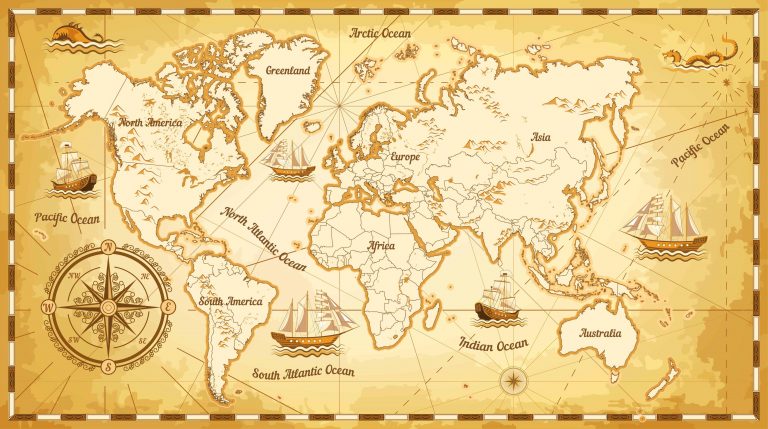
World History is a broad and diverse research topic that covers a wide period of time: from civilization to social movement. Therefore, there are multiple topics students can choose from. Remember, world history discusses the development in the world in response to interchanges among significant countries in the world.
- World Wars I and II, the links between them, and how they could have been prevented
- American Revolution – Revolutionary War from 1775 to 1783
- Trade in the Roman World designed by The Romans created one of the most impressive road networks of the ancient world.
- The rise and fall of empires, in relation to conflicts, protests, and riots against corporate globalization, and the threat of worldwide terrorism against the West.
- Cradle of civilization: Ancient Discoveries of China, Egypt, Mesoamerica, or India, or any other civilization that le d to a high level of craft specialization and artistic production from each civilization, creating opportunities for trade
- Architecture through the ages: the changes in architecture through various traditions, regions, and dates, growing from human’s basic needs of shelter and protection.
- Women’s rights movement around the world. To see the overall timeline of women’s rights movements, you can explore women’s activism from generations past and present on the UN Women’s website .
- Math and Science discoveries throughout ancient history that contribute to how we apply math and science today
- Ancient conquests and their influence on the modern world map formation
- Nuclear warfare, a military conflict or political strategy which deploys nuclear weaponry.
2. United States History

For students studying in the US, United States History has always been fascinating, given its Declaration of Independence in 1776. American History ranges from prehistory, European colonization, the American Revolution, the Federal period, the Gilded Age, the Great Depression, and the Cold War. Below are some examples for U.S. historical Research paper:
- Attack on Pearl Harbor, the military strike by Imperial Japanese Navy Air Service upon the United States against the naval base at Pearl Harbor in Honolulu, Hawaii.
- The Vietnam War: Social consequences and treatment of veterans returning from the war
- Immigration in the late 1800s: the “melting pot” and “salad bowl” metaphors
- Gold Rush and its development of the California state
- Civil War and the participation of women and African America ns
- JFK Presidency, Policy and Assassination
- My Lai Massacre, incident of American violence committed against unarmed civilians during the Vietnam War
- Sept 11, 2001 attacks and their impact on American security policies, foreign policy, and views on Islam through media and movies
- Civil Rights Movement of the 1960s, its tactics, movements, and outcomes
- Yellow journalism and its impact on the Spanish-American War
3. European History

The history of Europe began with the first appearance of anatomically modern humans in Europe. European History is considered the best-documented history compared to that of other regions in the world of history. Through conducting European studies, you will be able to understand its people, culture, and the way they saw the world.
- The Nude in the Middle Ages and the Renaissance: religious or erotic?
- Italian unification
- The relationship between Turkey and the European Union, and its impact on the position that Turkey has today
- Black Death, cause, symptoms and impact
- Religious crisis in the 16th century: the birth of Protestantism
- The Agricultural Revolution and the development of market economies
- The spread of Christianity: the political aspects
- European imperialism, in relation to the economic and political power overseas
- The Industrial Revolution and societal consequences
- The influence of Locke and French philosophies on the rise of liberal political thought in Europe in the 18th, 19th, and 20th centuries
4. Asian History
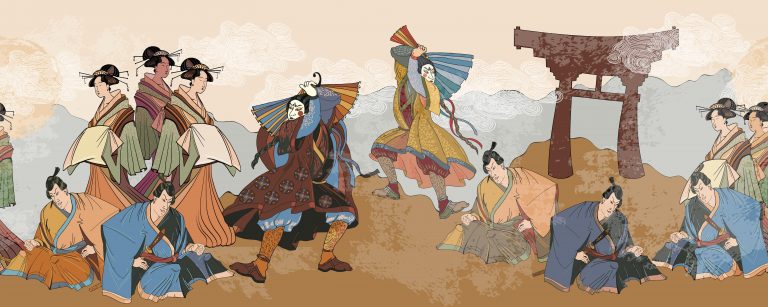
Asian History remains unknown to many people in the Western world . However, in the discussion of world history, the civilizations of Asia display a preeminence prior to the age of Western civilization.
- Western imperialism in Asia and Asia n transformation in the areas of religion, economy, and society
- The Story of Viet n am: From Prehistory to the Present
- Open Door policy and its impact on the economies in the US and China
- Ancient Korean & Chinese Relations
- The Forgotten History of South Korean Massacres in Vietnam
- Invasions of the Korean Peninsula and its struggle for unification
- Yasuke and its defense on Japan’s Greatest Warlord
- British Malaya: British involvement in Malay Politics
- The Great Game: a political and diplomatic confrontation between the British Empire and the Russian Empire over Afghanistan and neighboring territories in Central and South Asia.
- The Indus Valley Civilization, one of the world’s earliest civilizations
History is a topic of great breadth and depth. Historians today are fascinated by the new findings of history through the examination of archaeology and anthropology. The above are the few examples we hope will inspire you to take the next step to conduct historical research. If you are passionate about history and would like to conduct a research project in preparation for history or other liberal arts majors in college or a history career in the future, we are here to help! We recently launched a new Historical Research project, along with the long-standing American, European, and World History courses.
Aralia’s History tutors are inspired teachers and professors who are committed to student success. They are recognized in their field or are currently teaching at top high schools and colleges/universities in the US.
5. Take History classes with Aralia
Through Historical Research and Writing, students will learn about choosing a topic, composing research questions, effective research methods, drafting, composing, and revising. These skills will be taught with an emphasis on historical research, allowing students to engage in analysis of primary and secondary sources, discover interesting insights in history, and partake in the active pursuit of understanding the importance of the historical study.
In AP United States History (APUSH), students will review key content concepts and course objectives found in the APUSH course description through writing long essay questions (LEQ), document-based question essays (DBQs), and short answer questions (SAQs). Furthermore, students will practice using historical thinking skills tested on the exam by answering stimuli-based multiple-choice questions and through their written responses.
In this course, we will cover a period from the height of Ancient Greece to the middle of the sixteenth century, as we study the emergence of the first civilizations around modern day Europe and the trajectory of their development into Western society. We will examine the contributions of Greece and Rome and how they expanded their empires; how ideas are conceived, put into practice, and have social consequences; how and why their empires collapsed; how people and societies existed during the Middle Ages; how numerous cultures developed values and coexisted/clashed with others; and how a broken Europe, after several starts, reinvigorated itself with the Renaissance, and split again in the Reformation.
This course will allow students to discover important moments in World History while developing academic, writing, and communication skills. By studying, reading, and writing about World History, students will gain a better understanding of how the modern world came to be and how past events dictate current ones.
Explore the rise and fall of empires, the clash, and encounter of cultures, plagues, religious fervor, and political intrigue and war. This course aims to discover the complex interactions between Native Americans, Europeans, and Africans in different regions of North America across more than 500 years of history.
- Academic Tips

Interested in learning more?
Aralia Education is an innovative online education platform for ambitious middle and high school students worldwide. Aralia’s instructors propel students forward by helping them build a strong foundation in traditional academic courses. They also actively engage and guide students in exploring personal interests beyond their school curriculum. With this holistic approach, Aralia ensures its students are well-prepared for college and equipped for success in their future careers.
- College Accelerator Program
- Comprehensive Introduction to High School
- Academic Empowerment Program
- Test Preparation Bootcamp
- Private Lessons
- Student Awards
- Competitions
Give us a call: +1 (603) 932 7897
Email us: [email protected]
Add us on WhatsApp:

Research Paper Writing Guides
History Research Paper Topics
Last updated on: Mar 27, 2024
230 Interesting and Unique History Research Paper Topics
By: Donna C.
18 min read
Reviewed By: Chris H.
Published on: Mar 26, 2024

Picking a history research topic is hard. There are many options from different times and places. Where do you start?
But don't worry! We've explored history to offer a wide range of topics. From ancient times to modern changes, there's something to interest you and spark your imagination.
Read this blog and from a list of 230 great history research paper ideas, choose the one that matches your interest best!
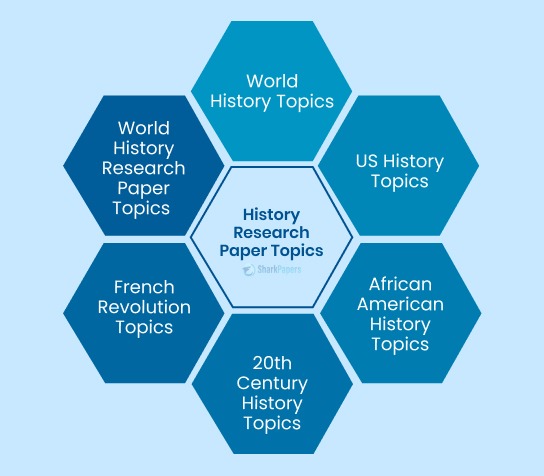
On this Page
History Research Paper Topics for Students
First, we will list some topics ideal for students who need help with their research paper . Then, we will move on to a broader list of ideas.
History Research Topics for College Students
- Impact of the Silk Road on Global Trade
- The Role of Women in Ancient Civilizations
- The Influence of Ancient Egyptian Religion on Daily Life
- The Legacy of Alexander the Great's Conquests
- Cultural Exchange in the Byzantine Empire
- The Effects of the Black Death on Medieval Europe
- The Rise and Fall of the Aztec Empire
- Exploring Viking Exploration and Settlement
- The Contributions of Islamic Scholars to Science and Mathematics
- The Significance of the Magna Carta in Western Legal Systems
History Research Paper Topics for University Students
- The Development of Papermaking in Ancient China and its Spread to the West
- Analyzing the Ecological Impact of British Colonialism in India
- Re-Analyzing the Fall of the Roman Empire Using Digital Tools
- Environmental Consequences of the Industrial Revolution
- How Japanese Society Commemorates Its Past Through War Memorials
- Analyzing the Impact of The Potato Blight on Irish Immigration to the United States
- Decolonization Movements in Africa: Case Studies and Legacies
- Tracing the Origins of The Black Lives Matter Movement
- Opium Wars and Their Impact on Sino-Western Relations and Chinese Society
- Explore Cultural Exchange between Japan and the West during the Meiji Restoration
World History Research Paper Topics
- The Influence of Islamic Mathematics on Renaissance Europe
- The Mongol Empire's Impact on Eurasian Trade Routes and Cultural Exchange
- Indigenous Resistance Movements against Colonialism in the Americas
- The Evolution of Maritime Navigation Techniques in Ancient Polynesia
- The Role of Sufism in Shaping Cultural and Political Landscapes in the Middle East
- The Intersection of Religion and State in the Gupta Empire of Ancient India
- The Socioeconomic Impact of the Spice Trade on Southeast Asian Civilizations
- The Forgotten Kingdoms of Sub-Saharan Africa: Trade, Diplomacy, and Cultural Exchange
- Exploring Gender and Power Dynamics in Pre-Columbian Mesoamerica
- The Rise and Fall of the Mali Empire: Economics, Governance, and Culture.
World History Research Paper Topics Before 1500
- Exploring the Lives and Legacies of Prominent Female Rulers Before 1500
- Debunking Myths and Exploring the True Story of Viking Exploration and Settlements
- Utilizing Archaeological Evidence to Understand Pre-literate Societies
- The Fall of the Han Dynasty: Internal Strife and External Threats
- Greek Philosophy's Influence on the Development of Western Thought
- The Aztec Empire: Assessing Achievements and Consequences of Imperial Expansion
- Feudalism in Medieval Europe: Essential Social Order or Restrictive Power Structure?
- Crusades: Holy War or Political Machination? Examining Motives and Consequences
- The Kushite Kingdom in Ancient Nubia: Exploring Factors Behind Its Rise and Fall.
- African Kingdoms: Evaluating Pre-European Intervention Prosperity and Stability
World History Research Paper Topics Before 1877
- Enlightenment Ideas and Their Influence on the American Revolution
- Impact of the Haitian Revolution on Global Anti-Slavery Movements
- Industrial Revolution Social and Economic Changes in Britain
- The French Revolution Causes, Events, and Consequences
- Manifest Destiny and Westward Expansion in 19th Century America
- The Opium Wars Imperialism and Trade in East Asia
- The Reign of Terror Political Violence in the French Revolution
- The Atlantic Slave Trade Economic, Social, and Political Implications
- The Mexican-American War Origins and Outcomes
- The Crimean War: European Powers and Imperial Rivalry
Research Topics on Modern History
- Silk Road: Was it a Platform for Global Cultural Fusion or an Avenue for Economic Exploitation?
- Roman Empire Decline: Challenging Traditional Theories and Revisiting Historical Realities
- Confucianism: Controversial Influence on Chinese Society and Governance
- Early Islam Expansion: Religious Zealotry versus Strategic Conquest
- Greek Philosophy: Foundation or Hindrance to Western Intellectual Development?
- Maya Civilization: Assessing Achievements and Investigating the Causes of Collapse
- Mongol Empire: Conquests for Dominance or Cultural Unification?
United States History Research Paper Topics Before 1500
- Pre-Columbian Native American Societies, Cultures and Trade Networks
- Impact of Climate Change on Early Native American Civilizations
- The Role of Agriculture in the Development of Mesoamerican Civilizations
- European Exploration and Native American Encounters in the New World
- Aztec Empire Rise, Organization, and Collapse
- Cahokia: The Rise and Fall of an Ancient North American City
- The Influence of Native American Languages on Modern American English
- Mississippian Culture: Social Structure and Religious Practices
- Ancestral Puebloan Architecture, Agriculture, and Social Organization
- The Legacy of Indigenous Peoples in Early American History
US History Research Paper Topics Before 1877
- The Founding Fathers' Debate on Federalism and States' Rights
- Women's Suffrage Movement Origins and Achievements
- The Missouri Compromise Slavery and the Westward Expansion
- The Dred Scott Decision Legal and Political Ramifications
- The Compromise of 1850 Prelude to the Civil War
- The Impact of Native American Removal Policies
- Abolitionist Movement Strategies and Key Figures
- Industrialization and Urbanization in 19th Century America
- The Mexican-American War Causes, Course, and Consequences
- Reconstruction Era Successes, Failures, and Legacies
US History Research Paper Topics After 1877
- The Gilded Age Industrialization and Its Discontents
- Women's Rights Movement Suffrage to Second Wave Feminism
- Progressive Era Reforms Social, Political, and Economic Changes
- The Spanish-American War Imperialism and American Expansion
- World War I America's Entry and Impact on Society
- The Roaring Twenties Culture, Politics, and Prohibition
- The Great Depression: Causes, Consequences, and Government Response
- World War II Mobilization, Home Front, and Global Impact
- Civil Rights Movement From Segregation to Voting Rights
- The Vietnam War Causes, Controversies, and Legacies
History Research Paper Topics on US Civil War
- Causes of the Civil War Economic, Political, and Social Factors
- Emancipation Proclamation Impact on Slavery and Union
- Battle of Gettysburg Turning Point in the Civil War
- Role of Women in the Civil War Nurses, Spies, and Fighters
- Reconstruction Era Challenges, Policies, and Legacy
- African American Soldiers in the Civil War Contributions and Challenges
- Sherman's March to the Sea Strategy and Impact on Southern Economy
- Abraham Lincoln's Leadership During the Civil War Challenges and Strategies
- Confederate States of America Formation, Government, and Ideology
- Effects of the Civil War on American Society and Politics
History Research Topics on the Cold War
- Understanding the Ideological and Political Rivalries that Sparked the Cold War
- Analyzing Global Conflicts and Superpower Involvement in Cold War Proxy Wars
- Exploring the Nuclear Arms Race and Deterrence Strategies in the Cold War Era
- Examine Espionage, Intelligence Operations, Spies and Covert Actions in Cold War
- Examine the Impact of Space Race and Technological Competition on Cold War Dynamics
- Investigating Cold War Influences on Popular Culture: Films, Literature, and Music
- Tracing Cold War Diplomacy and Summit Meetings: Negotiations, and Strategic Agreements
- Factors Leading to the End of the Cold War and Superpower Tensions
- Assessing Human Rights and Dissent inSoviet Bloc: Challenges to Authoritarian Rule
- Analyzing Nuclear Proliferation and Arms Control Efforts during the Cold War
African American History Research Paper Topics
- The Harlem Renaissance Cultural Flourishing and Identity
- Civil Rights Movement Strategies, Leaders, and Impact
- Slavery's Legacy Economic, Social, and Political Ramifications
- Reconstruction Era Freedmen's Rights and White Resistance
- Black Power Movement Ideologies, Organizations, and Achievements
- Jim Crow Laws Segregation and Resistance in the South
- The Great Migration Impact on African American Communities
- Black Panther Party Goals, Actions, and Controversies
- Tuskegee Airmen Contributions to World War II and Civil Rights
- Hip Hop Culture Origins, Evolution, and Sociopolitical Influence
20th Century Historical Research Project Topics
- World War I Causes, Course, and Consequences
- The Roaring Twenties Social Change and Cultural Shifts
- The Great Depression: Economic Crisis and Social Impact
- World War II Global Conflict and Allied Victory
- The Cold War Ideological Struggle and Proxy Conflicts
- Civil Rights Movement Struggles, Leaders, and Legal Victories
- Decolonization Movements Africa, Asia, and Latin America
- The Space Race Exploration, Technology, and National Prestige
- The Vietnam War Controversies, Protests, and Aftermath
- Globalization Economic Integration and Cultural Exchange
French Revolution Research Topics
- Causes of the French Revolution Economic, Social, and Political Factors
- The Reign of Terror Robespierre, Revolutionary Justice, and Mass Executions
- Role of Women in the French Revolution Activism, Rights, and Challenges
- Impact of the French Revolution on European Monarchies and Society
- The Rise of Napoleon Bonaparte Military Genius and Political Ambitions
- The Estates-General Representation, Grievances, and Revolutionary Assemblies
- The Storming of the Bastille Symbolism and Outbreak of Revolution
- Revolutionary Ideals and Reality Liberty, Equality, and Fraternity
- The Thermidorian Reaction Overthrow of Robespierre and the Jacobins
- Legacy of the French Revolution Enlightenment Values and Modern Politics
Industrial Revolution Research Topics
- Urbanization in the Industrial Revolution Growth and Challenges
- Industrial Revolution Impact on Labor Conditions and Movements
- Social Changes Family and Gender Roles in Industrialization
- Economic Shifts Capitalism, Markets, and Wealth
- Environmental Impact Pollution and Resource Depletion
- Factory System Efficiency and Standardization
- Industrial Revolution and Global Trade Imperialism and Markets
- Industrial Revolution and Child Labor Exploitation and Reform Efforts
- Impact of Railways on Industrialization and Transportation Networks
- Role of Women in Industrial Workforce Challenges and Contributions
Women’s History Research Paper Topics
- Women's Rights in Developing Countries Challenges and Progress
- Women in Sports Breaking Stereotypes and Achieving Equality
- Women's Suffrage Movement Beyond the United States Global Perspectives
- Women in World War II Roles, Challenges, and Contributions
- Feminist Literature Analysis and Impact on Society
- Women's Education Access, Barriers, and Empowerment
- Gender Wage Gap Causes, Trends, and Policy Implications
- Women's Health Issues Advocacy, Research, and Treatment
- LGBTQ+ Women's Rights Intersectionality and Activism
- Women in STEM Fields Progress, Challenges, and Representation
History Research Topics for Professionals and Experts
- The Role of Intelligence Agencies in Shaping History
- The Influence of Cultural Exchange on Innovation and Creativity
- Humanitarian Interventions in Mass Atrocities
- Colonial Legacies in International Law
- Gender Dynamics in Historical Contexts
- The Evolution of Humanitarian Aid and Development Assistance
- Intelligence Gathering Techniques Throughout History
- Environmental History of Disasters
- Resistance Movements and Guerrilla Warfare
- The Historical Development of Revolutionary Ideologies and Uptoian Visions
Interesting History Research Paper Topics
- The Black Death Impact, Responses, and Legacy
- The Renaissance Cultural Rebirth and Intellectual Revolution
- The Age of Exploration Voyages, Discoveries, and Consequences
- The Salem Witch Trials Causes, Trials, and Aftermath
- The Opium Wars Imperialism and Trade in 19th Century China
- The Cuban Missile Crisis Cold War Tensions and Nuclear Threat
- The Berlin Wall Construction, Fall, and Significance
- The Space Race Competition and Collaboration in the Cold War Era
- The Rwandan Genocide Causes, Dynamics, and Global Response
- The Fall of the Roman Empire Decline, Collapse, and Aftermath
Historical Research Topics in Education
- The Evolution of Education Systems From Ancient Civilizations to Modern Times
- Impact of Industrialization on Education Mass Education and Workforce Training
- Progressive Education Movement Philosophies, Practices, and Influences
- Women's Education Struggles for Access and Educational Reform
- Segregation in Schools Legal Battles and Civil Rights Movement
- The Role of Religion in Education From Early Monastic Schools to Public Education
- Educational Reforms in Post-Colonial Countries Challenges and Innovations
- Technology in Education From Chalkboards to Smartboards
- Multicultural Education Addressing Diversity and Inclusion in Schools
- Charter Schools and School Choice Debates and Impacts on Education Systems
European History Research Paper Topics
- Influence of Norse mythology on Viking society and exploration
- Role of Black Death in transforming European society and economy
- Witch hunts of early modern Europe socio-economic factors and religious beliefs
- Cultural exchange between Islamic Spain and Christian Europe during the Reconquista
- Impact of the Thirty Years' War on European politics, religion, and society
- Legacy of Charlemagne unity, administration, and cultural renaissance
- Enlightenment and its effects on European monarchy and governance
- Evolution of Gothic architecture from Notre-Dame to Westminster Abbey
- Women's participation in the French Revolution activism, rights, and challenges
- Baltic Crusades religious conflict and colonization in medieval Europe
Ancient History Research Paper Topics
- Military Tactics and Strategies of Alexander the Great
- The Collapse of the Minoan Civilization Causes and Consequences
- Legal Systems and Justice in Ancient Rome Evolution and Influence
- Trade and Cultural Exchange in the Indus Valley Civilization
- The Impact of Confucianism on Governance in Ancient China
- Greek Democracy Origins, Characteristics, and Limitations
- The Contributions of Ancient Mesopotamia to Mathematics and Astronomy
- The Role of Mythology in Shaping Ancient Greek and Roman Societies
- The Cultural Significance of Stonehenge Construction, Purpose, and Rituals
- The Legacy of Hammurabi's Code Legal Principles and Social Justice in Babylon
Popular History Research Paper Ideas
- Religious and Political Dynamics Under Justinian I in the Byzantine Empire.
- Music as a Form of Resistance in the African Diaspora.
- Scientific Advancements and Cultural Exchange in the Golden Age of Islam.
- The Korean War as a Cold War Proxy Conflict.
- Influence of John Locke on the American Revolution.
- New Deal Policies and the Transformation of American Society during the Great Depression.
- Indigenous Resistance and Cultural Survival in the Spanish Conquest of the Americas.
- Communal Violence and the Legacy of Partition in India.
- Second-Wave Feminism and the Fight for Reproductive Rights.
- Pax Mongolica and the Silk Road Trade Network in the Mongol Empire.
Top Trending History Research Paper Topics
- The Role of Religion in the American Civil Rights Movement
- Revolutionary Movements in Latin America
- The Influence of African Kingdoms on Global Trade
- The Evolution of Democracy in Ancient Greece
- The Impact of the Industrial Revolution on Urbanization
- Decolonization Movements in Africa and Asia
- The Cultural Exchange Between the Mongol Empire and Europe
- The Role of Propaganda in Totalitarian Regimes
- The Legacy of Colonialism in Africa
Now, that you have an extensive list of great history research ideas, you should know how to pick the best idea that fits your needs and interests. Read the next section to find out how you should select your history topic.
How to Choose the Perfect History Research Project Topic?
Here are some simple steps to help you pick the perfect research paper topic :
- Identify Your Interests: Start by considering what aspects of history interest you the most. Whether it's ancient civilizations, wars, social movements, or cultural exchanges, choose a topic that genuinely fascinates you.
- Consider Relevance: Think about the relevance of the topic to your academic goals and the assignment requirements. Ensure that your chosen topic aligns well with the objectives of your research project and provides opportunities for meaningful exploration.
- Evaluate Available Resources: Check the availability of resources such as books, articles, primary sources, and databases related to your chosen topic. Make sure there is enough material available to support your research and analysis.
- Narrow Down the Scope: History is vast, so narrow down your focus to a specific time period, geographical region, event, or theme. A well-defined topic allows for in-depth analysis and prevents your paper from becoming too broad or unfocused.
- Consider Controversies and Debates: Explore topics that spark debates or controversies within the field of history. Controversial topics often lead to engaging discussions and allow you to explore different perspectives and interpretations.
- Seek Feedback: Discuss your potential topics with classmates, professors, or mentors. Their feedback can help you refine your ideas and choose a topic that resonates well with your audience and academic interests.
In wrapping up, it's important to recognize the significance of history in understanding our past and shaping our future. These research paper topics open doors to explore the rich tapestry of human civilization. If you find yourself needing assistance with your research papers, remember SharkPapers.com is here to help. Our paper writing service online ensures that you navigate historical exploration with ease. Let us help you with your research paper needs at the most affordable rates!

Marketing, Literature
Donna writes on a broad range of topics, but she is mostly passionate about social issues, current events, and human-interest stories. She has received high praise for her writing from both colleagues and readers alike. Donna is known in her field for creating content that is not only professional but also captivating.
Was This Blog Helpful?
Keep reading.
- Learning How to Write a Research Paper: Step-by-Step Guide
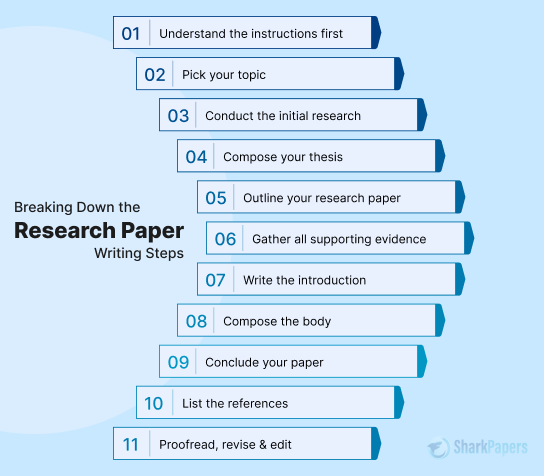
- Best 300+ Ideas For Research Paper Topics in 2024
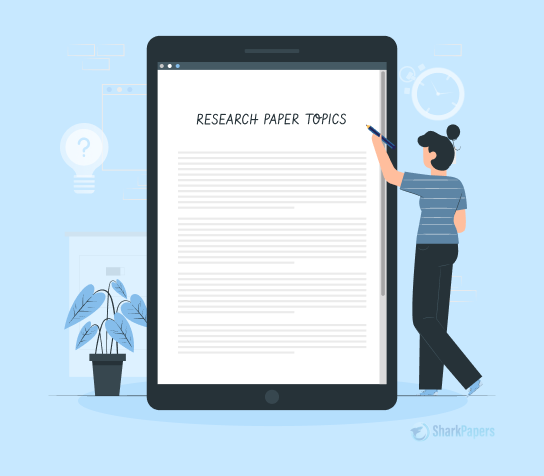
- A Complete Guide to Help You Write a Research Proposal
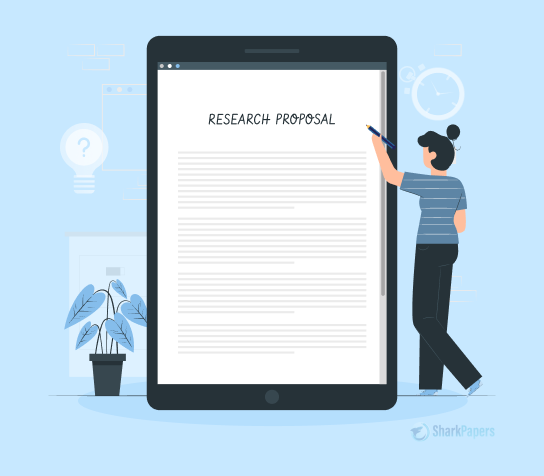
- The Definitive Guide on How to Start a Research Paper
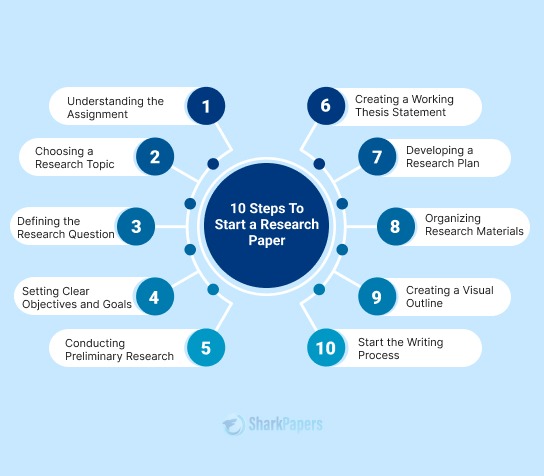
- How To Write An Introduction For A Research Paper - A Complete Guide
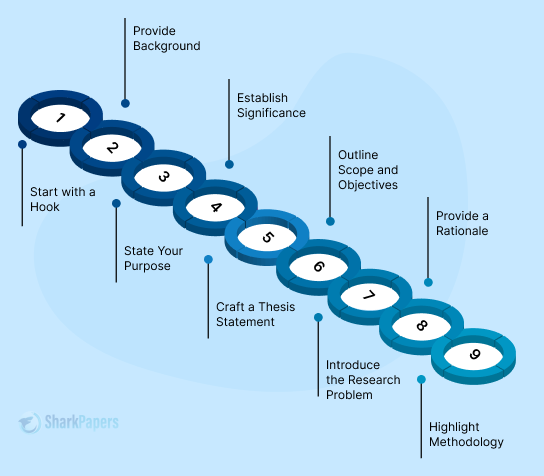
- Learn How To Write An Abstract For A Research Paper with Examples and Tips

- How to Write a Literature Review for a Research Paper | A Complete Guide
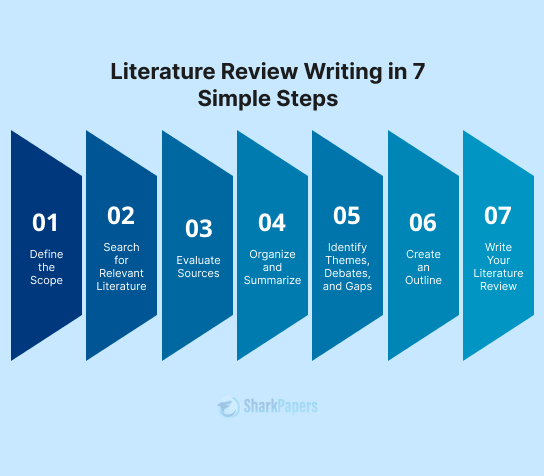
- How To Write The Methods Section of A Research Paper
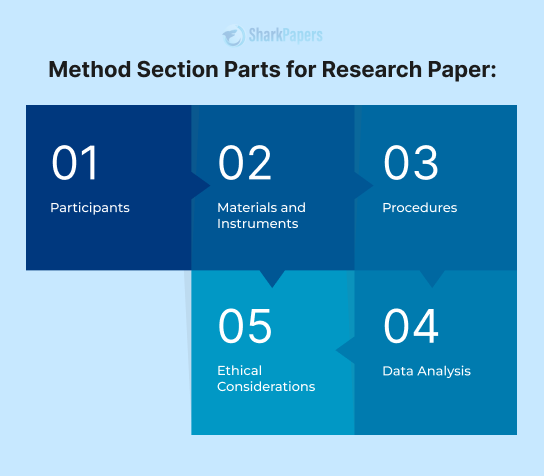
- How to Write a Research Paper Thesis: A Detailed Guide
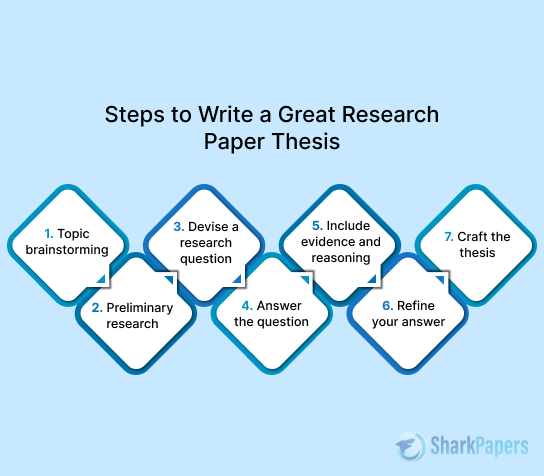
- How to Write a Research Paper Title That Stands Out

- A Detailed Guide on How To Write a Conclusion for a Research Paper
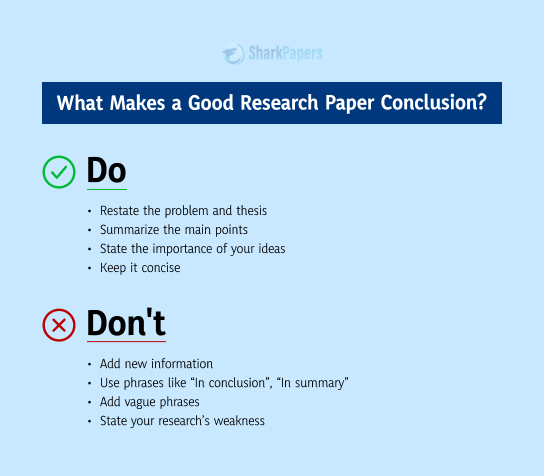
- How To Write The Results Section of A Research Paper | Steps & Tips
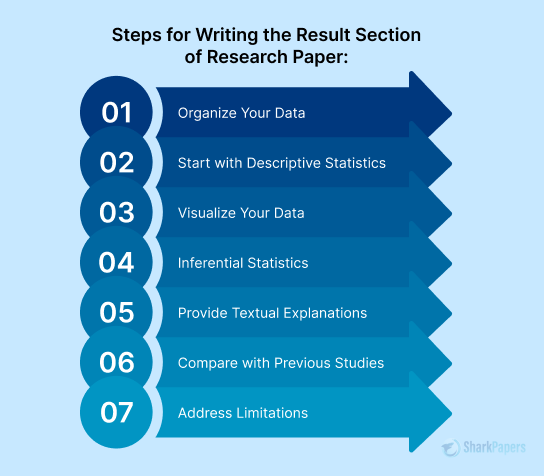
- How to Problem Statement for a Research Paper: An Easy Guide
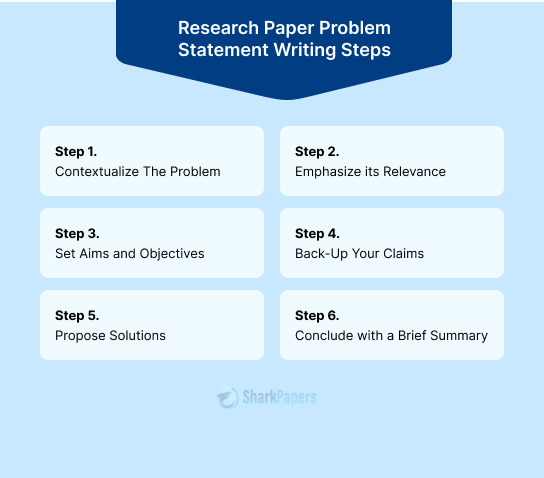
- How to Find Credible Sources for a Research Paper
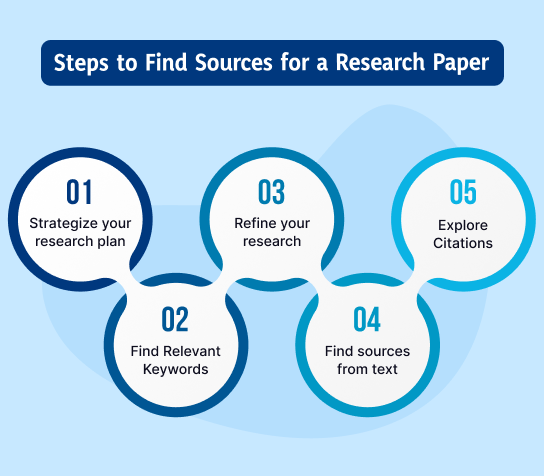
- A Detailed Guide: How to Write a Discussion for a Research Paper
)
- How To Write A Hypothesis In A Research Paper - A Simple Guide
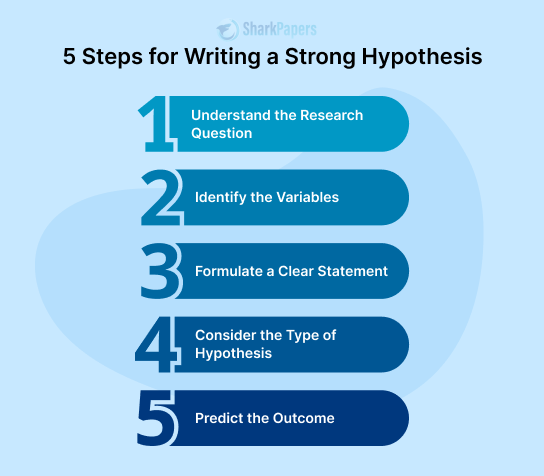
- Learn How To Cite A Research Paper in Different Formats: The Basics
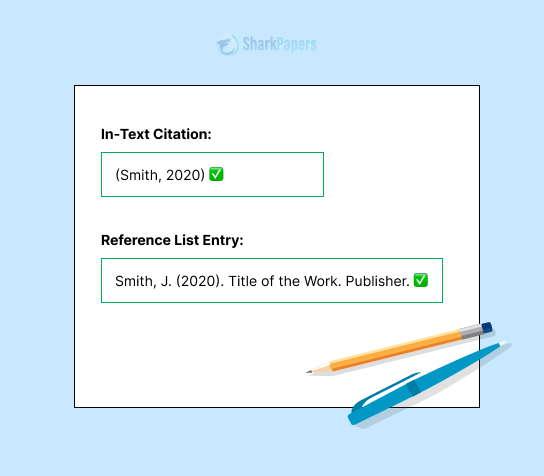
- The Ultimate List of Ethical Research Paper Topics in 2024

- 150+ Controversial Research Paper Topics to Get You Started
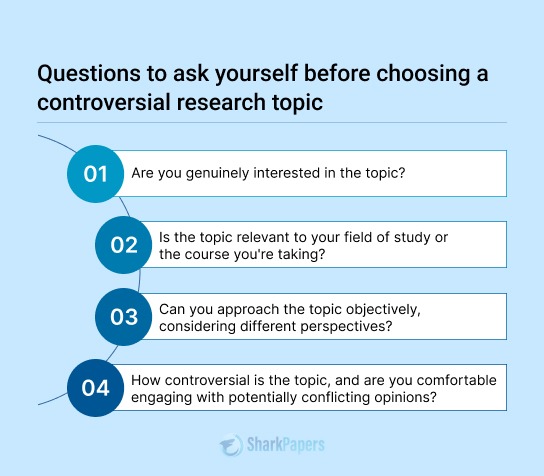
- How to Edit Research Papers With Precision: A Detailed Guide
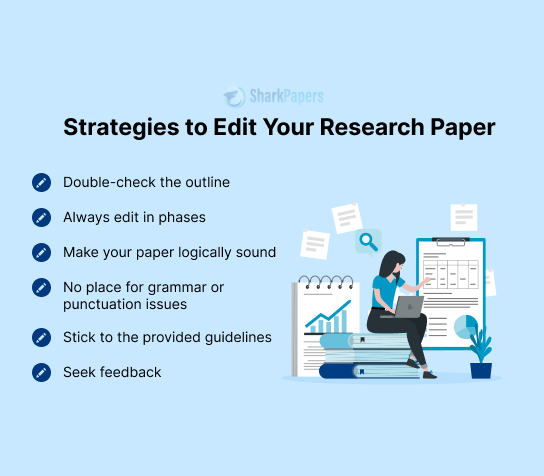
- A Comprehensive List of Argumentative Research Paper Topics
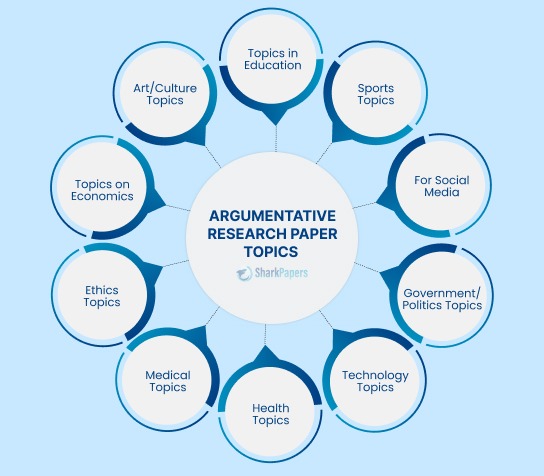
- A Detailed List of Amazing Art Research Paper Topics
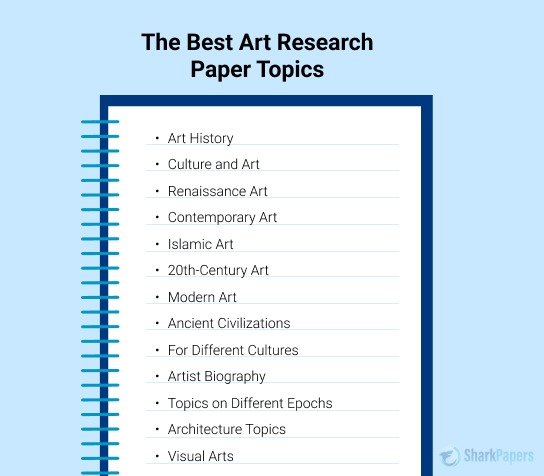
- Diverse Biology Research Paper Topics for Students: A Comprehensive List

- 190 Best Business Research Paper Topics
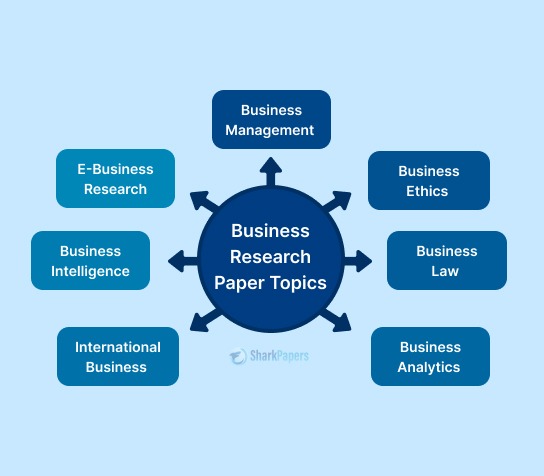
- 200+ Engaging and Novel Literature Research Paper Topics
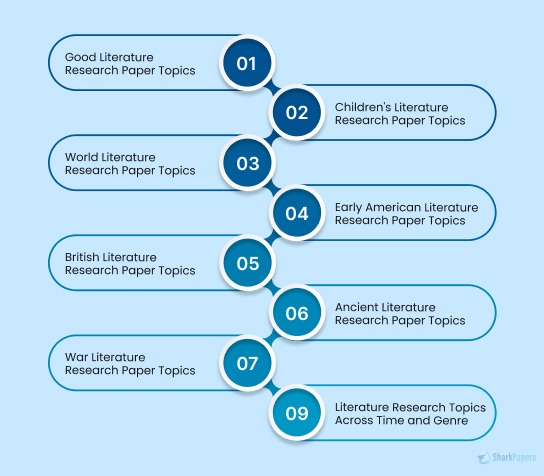
- A Guide on How to Write a Social Science Research
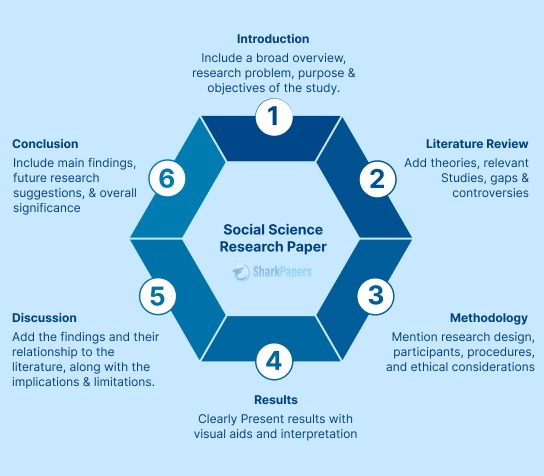
- Sociology Research Papers: Format, Outline, and Topics
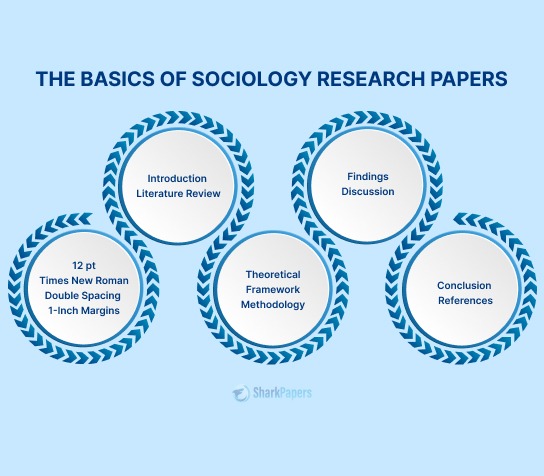
- Understanding the Basics of Biology Research Papers

- How to Write a Psychology Research Paper: Guide with Easy Steps
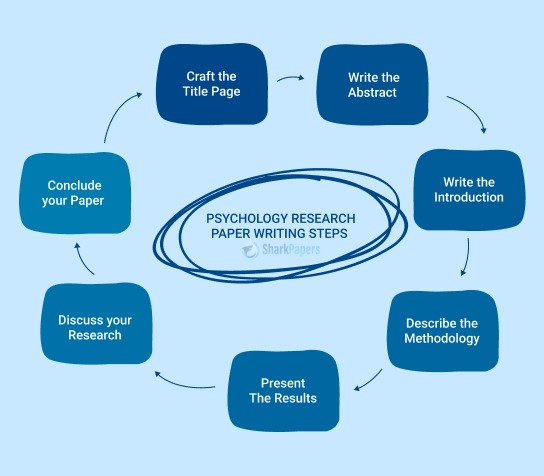
- Exploring the Different Types of Research Papers: A Guide
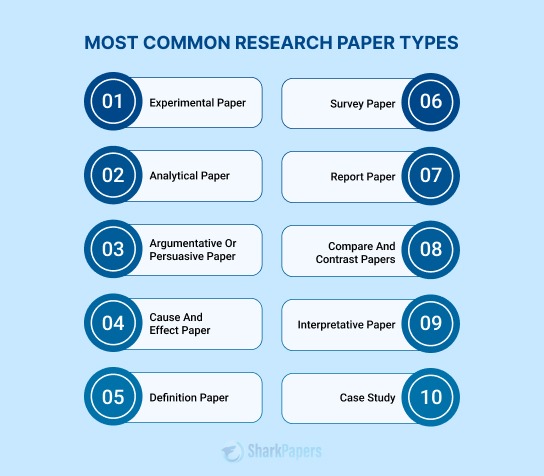
People Also Read
- how to avoid plagiarism
- how to write an autobiography
- lab report format
Burdened With Assignments?

Advertisement
© 2024 - All rights reserved
2000+ SATISFIED STUDENTS
95% Satisfaction RATE
30 Days Money Back GUARANTEE
95% Success RATE
Privacy Policy | Terms & Conditions | Contact Us
© 2021 SharkPapers.com(Powered By sharkpapers.com). All rights reserved.
© 2022 Sharkpapers.com. All rights reserved.
LOGIN TO YOUR ACCOUNT
SIGN UP TO YOUR ACCOUNT
- Your phone no.
- Confirm Password
- I have read Privacy Policy and agree to the Terms and Conditions .
FORGOT PASSWORD
- SEND PASSWORD
220+ Captivating History Project Topics For Students In 2023

History projects are a fascinating gateway to the past, allowing students to delve into the annals of time, discover intriguing stories, and gain a deeper understanding of our world’s evolution. But what exactly are history projects? These are comprehensive assignments that engage students in researching, analyzing, and presenting historical events, figures, or themes.
In today’s world, the importance of history projects in a student’s life cannot be overstated. They foster critical thinking, research skills, and a sense of connection to the past, making them valuable learning tools. However, the key to a successful history project lies in understanding the essential elements it should encompass.
In this blog, we will explore the world of history project topics, providing a list of over 220 captivating ideas for students in 2023. We’ll also share tips for selecting the best topics and highlight common mistakes to avoid. Stay tuned with us to uncover the exciting realm of history project topics.
What Are History Projects?
Table of Contents
History projects are educational assignments where students explore and investigate events, people, or themes from the past. These projects typically require students to conduct research, gather information, and present their findings in various formats.
In a history project, students might choose a specific historical topic that interests them, such as a famous historical figure, an important event, or a particular time period. They then gather information from sources like books, articles, and websites, and sometimes even conduct interviews or surveys. Once they have collected their data, they organize it and create a presentation, report, or other creative work to share their discoveries with their classmates and teachers. This process helps students gain a deeper understanding of history and strengthens their research, critical thinking, and communication skills.
Importance Of History Projects In Student’s Life
Here are some importance of history projects in student’s life:
1. Clear Topic and Question
A good history project should have a clear and focused topic or question. This helps students stay on track and ensures the project’s purpose is evident.
2. Research and Sources
Thorough research is crucial. Students should use a variety of reliable sources, like books, articles, and interviews, to gather information and support their project.
3. Organization and Structure
A well-organized project is essential. Students should structure their work with a clear introduction, body, and conclusion to make it easy for others to follow.
4. Visuals and Creativity
Visual elements and creativity enhance a history project. Using images, charts, and creative presentation methods can make the project more engaging and informative.
5. Proper Citations
To maintain academic integrity, students should include proper citations for all sources used. This shows respect for others’ work and helps avoid plagiarism issues.
Elements Must Be Present In A Good History Project
Here are some elements that must be present in a good history project:
In this section we provide 220+ captivating history project topics for students in 2023:
Ancient Civilizations
- The Rise & Fall of the Roman Empire.
- Ancient Greece: Democracy and Philosophy.
- The Pyramids of Giza: Engineering Marvels of Ancient Egypt.
- Mesopotamia: Cradle of Civilization.
- The Indus Valley Civilization: Uncovering an Enigmatic Society.
- Mayan Civilization: Astronomy and Mathematics.
- Inca Empire: Engineering and Road Systems.
- Ancient China: The Great Wall and the Silk Road.
- The Olmec Civilization: Mesoamerica’s First Great Culture.
- Carthage and Rome: Punic Wars and Mediterranean Dominance.
- Ancient India: Maurya and Gupta Empires.
- The Hittites: Masters of Iron and Diplomacy.
- The Persian Empire: Darius and Xerxes.
- The Hellenistic Era: Alexander the Great’s Legacy.
- The Sumerians: Early Urbanization and Writing Systems.
- The Causes of World War I.
- The Treaty of Versailles: Seeds of World War II.
- The Battle of Stalingrad: Turning Point in World War II.
- The Holocaust: Nazi Atrocities and Genocide.
- D-Day and the Normandy Invasion.
- The race to build the first nuclear weapon is known as the Manhattan Project.
- The Nuremberg Trials: Accountability for War Crimes.
- The Pacific Theater in World War II: Island Hopping and the Atomic Bomb.
- The Cold War: The United States and the Soviet Union.
- The Cuban Missile Crisis: Brinkmanship and Diplomacy.
- The Armenian Genocide: A Forgotten Tragedy.
- The African Front in World War I and II.
- The Home Front: Civilian Experiences During World War II.
- The Treaty of Tordesillas: Impact on Colonial Expansion.
- The Russian Revolution: Bolsheviks and the Fall of the Tsar.
Civil Rights Movements
- The United States Civil Right Movement: Rosa Parks and Martin Luther King Jr.
- Apartheid in South Africa: Nelson Mandela’s Struggle.
- Women’s Suffrage: The Fight for Women’s Voting Rights.
- The LGBTQ+ Rights Movement: Stonewall Riots and Beyond.
- Indigenous Rights Movements: Native American and Aboriginal Struggles.
- Cesar Chavez and the Farm Workers’ Movement.
- The Anti-Apartheid Movement Worldwide.
- Disability Rights Advocacy: Americans with Disabilities Act.
- The Black Lives Matter Movement.
- LGBTQ+ Rights in Modern Europe.
- Environmental Justice: The Intersection of Civil Rights and Ecology.
- Disability Rights: International Perspectives.
- The Arab Spring: Protests and Uprisings in the Middle East.
- Human Rights in the 20th Century: Key Milestones.
- The 1960s and 1970s Women’s Liberation Movement.
Industrial Revolution
- The Impact of the Steam Engine on Industry.
- Child Labor in the Industrial Revolution.
- Urbanization and the Industrial Revolution.
- The Cotton Gin: Revolutionizing Agriculture.
- Innovations in Transportation: Trains and Steamships.
- The Factory System: Labor Conditions and Organizing.
- Technological Advancements in Textile Manufacturing.
- Urban Planning and the Industrial City.
- The Luddites: Workers’ Resistance to Machinery.
- Economic Impact of the Industrial Revolution.
- The Role of Women in the Industrial Workforce.
- The Spread of Industrialization to Europe and Beyond.
- Industrial Revolution in Japan: Meiji Restoration.
- Iron and Steel Industry: Building the Modern World.
- Environmental Consequences of Industrialization.
Medieval History
- The Crusades: Holy Wars and Their Impact.
- Feudalism in Medieval Europe: Lords, Vassals, and Serfs.
- The Black Death: Plague and Its Consequences.
- The Round Table Legends and King Arthur.
- The Viking Age: Raiders and Explorers.
- Charlemagne: Carolingian Empire and the Holy Roman Empire.
- Byzantine Empire: The Eastern Roman Legacy.
- Medieval Castles: Fortifications and Siege Warfare.
- The Hundred Years’ War: England and France.
- Medieval Chivalry and Knights.
- Islamic Golden Age: Science, Medicine, and Philosophy.
- The Inquisition: Heresy and Religious Persecution.
- Joan of Arc: The Maid of Orleans.
- Medieval Monasticism: Monks and Monasteries.
- Gothic Architecture: Cathedrals and Church Building.
Ancient Egypt
- Pharaohs of Egypt: Power and Religion.
- Hieroglyphics and the Rosetta Stone.
- Tutankhamun’s Tomb: Discovery and Treasures.
- Ancient Egyptian Medicine and Healing Practices.
- The Nile River: Lifeblood of Ancient Egypt.
- Ancient Egyptian Art and Architecture.
- The Great Sphinx: Symbolism and Mystery.
- Akhenaten and the Amarna Period.
- Cleopatra: The Last Pharaoh of Egypt.
- Nubia: The Land of Ancient Kush.
- Ancient Egyptian Mummies and Burial Practices.
- Ancient Egyptian Mathematics and Geometry.
- The Book of the Dead: A Guide to the Afterlife.
- Ancient Egyptian Trade and Commerce.
- The Pyramid of Khufu (Great Pyramid): Construction and Purpose.
American Revolution
- The Boston Tea Party: Prelude to Revolution.
- The Declaration of Independence: Birth of a Nation.
- George Washington: Leadership in the Revolutionary War.
- The Battles of Lexington and Concord.
- The Loyalists: British Sympathizers in America.
- Women in the American Revolution.
- The Revolution’s Impact on Native Americans.
- The Continental Congress: Shaping the United States.
- African Americans in the Revolutionary Era.
- The Enlightenment and its Influence on American Revolution.
- The Siege of Yorktown: Final Battle of Independence.
- The Articles of Confederation: Early Government Challenges.
- The Marquis de Lafayette: A French Hero of the Revolution.
- The Constitutional Convention: Crafting the U.S. Constitution.
Colonial History
- Jamestown: The First Permanent English Settlement.
- The Pilgrims and Plymouth Colony.
- The Mayflower Compact: Early American Governance.
- Roanoke Colony: The Lost Colony Mystery.
- New Amsterdam and Dutch Colonialism.
- The Salem Witch Trials: Hysteria and Accusations.
- The Spanish Colonization of the Americas.
- French and Indian War: Impact on North America.
- The Proprietors of Carolina: Origins of Southern Colonies.
- The New England Colonies: Puritans and Religious Freedom.
- Slavery in the Colonial Era.
- The Navigation Acts and Colonial Trade.
- The Albany Plan of Union: A Step Toward Independence.
- Indentured Servitude: Labor in the Colonies.
- The Triangular Trade: Commerce and the Slave Trade.
Women in History
- Susan B. Anthony: Pioneering Women’s Suffrage Activist.
- Hatshepsut: Ancient Egypt’s Female Pharaoh.
- Marie Curie: Breakthroughs in Science and Gender Barriers.
- Sojourner Truth: Advocate for Abolition and Women’s Rights.
- Queen Victoria: The Longest-Reigning British Monarch.
- Rosa Parks and Ella Baker were two women involved in the Civil Rights Movement.
- Hypatia of Alexandria: Scholar and Mathematician.
- Margaret Thatcher: The Iron Lady of British Politics.
- Women in World War II: Rosie the Riveter and Beyond.
- Malala Yousafzai: Advocating for Girls’ Education.
- Harriet Tubman: Leading the Underground Railroad.
- Queen Isabella I of Castile: Patron of Columbus and Spanish Expansion.
- The Brontë Sisters: Literary Contributions in the 19th Century.
- Hatsune Miku: The Virtual Pop Star and Technological Impact.
- Empress Matilda: A Heir’s Quest for the English Throne.
Environmental History
- The Dust Bowl: Environmental Disaster in the Great Plains.
- Silent Spring: Rachel Carson and the Environmental Movement.
- The Green Revolution: Agricultural Innovation and Challenges.
- Deforestation and its Global Impact.
- The Kyoto Protocol: International Climate Agreements.
- The Clean Water Act: Protecting Water Resources.
- Extinction Events in Earth’s History.
- National Parks System: Preserving Natural Wonders.
- The Love Canal Disaster: Environmental Contamination.
- Ecofeminism: Women’s Rights and Environmentalism.
- Ocean Pollution and Marine Conservation.
- Earth Day: Origins and Environmental Activism.
- Chernobyl Disaster: Nuclear Energy and Environmental Catastrophe.
- The Cuyahoga River Fire: Sparking Environmental Regulation.
- Solar Power Revolution: Sustainable Energy Solutions.
History of Science and Technology
- The Copernican Revolution: Heliocentrism and its Impact.
- The Gutenberg Printing Press: Spreading Knowledge.
- The Space Race: Cold War Competition and Exploration.
- The Internet: Birth and Evolution of the World Wide Web.
- The Steam Locomotive: Transforming Transportation.
- The Theory of Evolution: Charles Darwin and Natural Selection.
- The Manhattan Project: Science and the Atomic Bomb.
- The Wright Brothers: Pioneers of Powered Flight.
- The Human Genome Project: Decoding Life’s Blueprint.
- The Smartphone Revolution: Changing Modern Society.
- The Electron Microscope: Revealing the Microscopic World.
- The History of Medicine: Advancements in Health Care.
- The Transistor: The Foundation of Modern Electronics.
- The Green Revolution: Agricultural Innovation and Food Security.
- The History of Cryptography: From Caesar Ciphers to Cybersecurity.
Native American History
- The Trail of Tears: Forced Removal of Native American Tribes.
- Native American Tribes of the Great Plains: Nomadic Cultures.
- The Iroquois Confederacy: Political Structure and Diplomacy.
- Wounded Knee Massacre: The End of the Indian Wars.
- The Navajo Code Talkers: Native American Contributions in World War II.
- The Pueblo Revolt: Indigenous Resistance in Spanish America.
- Cahokia Mounds: Ancient Native American City in North America.
- Totem Poles of the Pacific Northwest: Cultural Symbols.
- The Apache Wars: Conflicts in the Southwest.
- The Ghost Dance Movement: Spiritual Renewal and Resistance.
- Native American Treaties and Broken Promises.
- The Mound Builders: Pre-Columbian Indigenous Civilizations.
- Native American Art and Pottery.
- The Cherokee Nation: Removal and Rebuilding.
- Native American Languages: Preservation and Revival Efforts.
Cultural and Artistic Movements
- The Harlem Renaissance: African American Cultural Revival.
- Surrealism: Artistic Exploration of the Unconscious.
- The Beat Generation: Literary Rebellion and Counterculture.
- Renaissance Art: Masters like Leonardo da Vinci and Michelangelo.
- The Bauhaus School: Influences on Modern Design and Architecture.
- Impressionism: Capturing Light and Atmosphere in Art.
- Romanticism in Music: Beethoven and the Expressive Symphony.
- Abstract Expressionism: Artistic Freedom and Expression.
- Dadaism: Anti-Art and the Avant-Garde.
- Baroque Music: Bach, Handel, and the Ornate Style.
- Pop Art: Consumer Culture and Mass Media.
- Chinese Cultural Revolution: Art, Politics, and Propaganda.
- Art Nouveau: Nature and Ornamental Design.
- Neo-Classicism: Reviving Ancient Styles in Art and Architecture.
- Expressionist Cinema: Silent Film and German Expressionism.
Modern Political History
- The Cold War: Ideological Conflict and Superpower Rivalry.
- Decolonization in Africa: Nationalism and Independence Movements.
- The European Union: Integration and Cooperation.
- Germany was once again united with the fall of the Berlin Wall.
- The Arab-Israeli Conflict: A History of Tensions.
- The Vietnam War: Controversies and Consequences.
- The Korean War: Division and Stalemate.
- The Cuban Revolution: Fidel Castro and Communism in the Americas.
- Apartheid in South Africa: Racial Segregation and Resistance.
- The Rwandan Genocide: Ethnic Conflict and International Response.
- The Islamic Republic’s ascent during the Iranian Revolution.
- The Falklands War: Sovereignty Dispute in the South Atlantic.
- The European Refugee Crisis: Migration and Global Impact.
- The Arab Spring: Protests and Political Change in the Middle East.
The Renaissance Era
- Leonardo da Vinci: Renaissance Man and Polymath.
- Michelangelo: Sculptor of the Renaissance.
- The Medici Family: Patrons of the Arts and Politics.
- Humanism and Renaissance Literature: Petrarch and Boccaccio.
- The Invention of the Printing Press: Gutenberg’s Impact on Knowledge.
- The Italian Wars: Conflicts of the Renaissance.
- The Sistine Chapel Ceiling: Michelangelo’s Masterpiece.
- Renaissance Architecture: The Beauty of Florence and Venice.
- Copernicus and the Heliocentric Model: Revolutionizing Astronomy.
- Raphael and His Artistic Legacy.
- The Reformation: Martin Luther and the Challenge to the Catholic Church.
- The Age of Exploration: Vasco da Gama and Columbus.
- The Scientific Revolution: Galileo, Kepler, and Newton.
- The Enlightenment: Rationalism and Philosophical Change.
- The Baroque Period: Transition from the Renaissance to the Modern Era.
- Podcast Topic Ideas
- MBA HR Project Topics
Tips For Choosing The Best History Project Topics
Here are some tips for choosing the best history project topics:
Tip 1: Personal Interest
Select a history project topic that genuinely interests you. When you are passionate about the subject, it makes the research and presentation more enjoyable and compelling.
Tip 2: Relevance
Ensure your topic is relevant to the course or historical period you’re studying. A well-matched topic will align with your curriculum and help you gain a deeper understanding of the subject matter.
Tip 3: Availability of Resources
Check if there are enough resources available for your chosen topic. Adequate books, articles, and online sources will make your research process smoother.
Tip 4: Scope and Manageability
Pick a topic that is manageable within your project’s timeframe. A topic that is too broad may result in a superficial presentation, while one that is too narrow might lack sufficient information for a comprehensive project.
Tip 5: Unique Perspective
Consider approaching your topic from a unique angle or perspective. This can make your project stand out and offer a fresh insight into a well-studied historical subject.
Common Mistakes That Must Be Avoid In History Project
In history projects, several common mistakes can hinder the overall quality and impact of your work. These mistakes should be avoided to ensure that your project is informative, well-researched, and effectively presented. Here are some common pitfalls to steer clear of:
- Lack of Clear Structure: If your project isn’t structured with a distinct introduction, body, and conclusion, it might be challenging for readers to follow your story.
- Inadequate Research: Relying on a limited number of sources or not thoroughly investigating the topic can lead to incomplete or inaccurate information.
- Plagiarism: Failing to properly attribute sources and ideas can result in plagiarism , a serious academic offense.
- Overcomplicated Language: Using overly complex language or terminology can make your project less accessible and harder to understand.
- Lack of Visuals: Neglecting to include relevant images, charts, or visuals can make your project less engaging and informative.
- Ignoring Citations: Failing to provide proper citations for your sources can lead to a loss of credibility and academic integrity.
- Procrastination: Waiting until the last minute to work on your project can result in rushed, subpar work that doesn’t reflect your true capabilities.
In conclusion, history projects are a valuable educational tool that enhances learning, critical thinking, research, and communication skills for students. To create a successful history project, it’s important to have a clear topic, comprehensive research, effective organization, and creativity with visuals. Proper citations are essential, and avoiding common mistakes like plagiarism and procrastination is crucial. We’ve also provided an extensive list of captivating history project topics to spark students’ interest. By following these guidelines and embracing the opportunities history projects offer, students can develop a deeper connection to the past, fostering a lifelong appreciation for the complexities and richness of history.
Related Posts

Step by Step Guide on The Best Way to Finance Car

The Best Way on How to Get Fund For Business to Grow it Efficiently
Explore your training options in 10 minutes Get Started
- Graduate Stories
- Partner Spotlights
- Bootcamp Prep
- Bootcamp Admissions
- University Bootcamps
- Coding Tools
- Software Engineering
- Web Development
- Data Science
- Tech Guides
- Tech Resources
- Career Advice
- Online Learning
- Internships
- Apprenticeships
- Tech Salaries
- Associate Degree
- Bachelor's Degree
- Master's Degree
- University Admissions
- Best Schools
- Certifications
- Bootcamp Financing
- Higher Ed Financing
- Scholarships
- Financial Aid
- Best Coding Bootcamps
- Best Online Bootcamps
- Best Web Design Bootcamps
- Best Data Science Bootcamps
- Best Technology Sales Bootcamps
- Best Data Analytics Bootcamps
- Best Cybersecurity Bootcamps
- Best Digital Marketing Bootcamps
- Los Angeles
- San Francisco
- Browse All Locations
- Digital Marketing
- Machine Learning
- See All Subjects
- Bootcamps 101
- Full-Stack Development
- Career Changes
- View all Career Discussions
- Mobile App Development
- Cybersecurity
- Product Management
- UX/UI Design
- What is a Coding Bootcamp?
- Are Coding Bootcamps Worth It?
- How to Choose a Coding Bootcamp
- Best Online Coding Bootcamps and Courses
- Best Free Bootcamps and Coding Training
- Coding Bootcamp vs. Community College
- Coding Bootcamp vs. Self-Learning
- Bootcamps vs. Certifications: Compared
- What Is a Coding Bootcamp Job Guarantee?
- How to Pay for Coding Bootcamp
- Ultimate Guide to Coding Bootcamp Loans
- Best Coding Bootcamp Scholarships and Grants
- Education Stipends for Coding Bootcamps
- Get Your Coding Bootcamp Sponsored by Your Employer
- GI Bill and Coding Bootcamps
- Tech Intevriews
- Our Enterprise Solution
- Connect With Us
- Publication
- Reskill America
- Partner With Us
- Resource Center
- Bachelor’s Degree
- Master’s Degree
The Top 10 Most Interesting History Research Topics
Choosing history research topics is one of the hardest and most time-consuming things to do, especially if there is no guidance. You have to employ the right research skills to find authentic sources and ensure that your history research questions are precise and clear.
So to make your work easier, we have curated history research paper topics for college students and high schoolers, as well as examples of history research questions you can use for your assignment.
Find your bootcamp match
What makes a strong history research topic.
Clarity makes a strong history research topic. History is a broad subject, so your topic should be well-defined and your language should be simple enough for the reader to understand the basic outline of your history research project. In other words, there should be no ambiguity. An ambiguous topic will be much harder to write than a clear one.
Tips for Choosing a History Research Topic
- Understand the requirements. Pay attention to your academic level and make sure that you are clear on what is expected of you. Keep referring to your assignment as you go along to ensure that you do not deviate from it.
- Choose a topic that interests you. If your history topic is boring, doing the research and writing the paper will become tedious work. It is important that you select a topic that appeals to you and that you will enjoy writing about. Even if you choose a controversial topic, it’s worth pursuing as long as it will motivate you to keep writing.
- Be objective. Movies such as Pearl Harbor have romanticized history as their subject, so make sure you select a topic based on facts and not merely your opinion. This will help in removing bias from your research questions as well.
- Begin your search for research sources early. Ensure that there are adequate primary and secondary sources for your research assignment. You can also consult other alternative sources for your research. Remember to also make use of your high school or college librarian. They will guide you toward reliable sources.
- Consult others when necessary. Whenever your assignment requirements are unclear to you, consult your professor. You can also brainstorm with fellow students to get more ideas on what topic you should select, or visit your university’s writing center to get a refresher on how to write strong topic sentences.
What’s the Difference Between a Research Topic and a Research Question?
A research topic refers to a broad idea that you may have chosen for your history research paper. For example, “modern history” is a general topic from which you can get various, more specific topics, such as “the role of globalization in industrialization.”
A research question takes a broad topic and narrows it down to a more specific subject. Your question will help in selecting the right sources. A research question answers the what, why, and how of the research topic. For example, what role has industrialization played in globalization?
How to Create Strong History Research Questions
A strong history research question should be empirically sound. This means that it should be narrow enough to do an in-depth analysis. However, it should not be so narrow that it can be answered with a simple yes or no. A simple search on Google should not answer your research question.
According to Kristin Poling from the Department of History at Harvard, formulating a research question requires preliminary research. You need to see whether there are authentic sources available to answer your question, and you need to understand where the gaps in the literature are. Strong questions lead to strong thesis statements.
Top 10 History Research Paper Topics
1. religion in ancient greece.
Any list of history topics about ancient Greek religion is bound to contain some gems. By digging into cultural patterns, you can explore how religion affected the social, political, religious, military, and economic development of Greece. You could even venture outside the boundaries of Greece and investigate how Christian symbols were influenced by the ancient Greeks.
2. Causes of the American Revolution
The American Revolution, also known as the United States War of Independence, is an important American historical event that occurred between 1775 and 1783. Researching the American revolutionaries behind the Boston Tea Party is a great way to understand how monumental social conflicts bring about the rise and fall of nations.
3. American Neutrality in World War Ⅰ
Also known as the First War or the Great War, World War Ⅰ was the first major global war of the 20th Century, and it lasted between 1914 and 1918. If you choose this topic, you will be able to analyze why America first made the foreign policy decision to avoid taking part in the war, as well as why it changed its mind later on.
4. Effects of the Allies’ Occupation of Germany
The Allied occupation of Germany began in 1945 after Germany was defeated in the Second World War. It refers to the joint occupation of Germany by the US, Great Britain, Soviet Union, and France. If you select this history research topic for your assignment, you will be able to delve deeper into the effects of the occupation on both Germany and the rest of the world.
5. Ronald Reagan and the End of the Cold War
The Cold War was a 20th Century battle of supremacy between the United States and the Soviet Union involving nuclear weapons. By discussing the role Ronald Reagan played in ending the Cold War, you could gain insight into the diplomatic history between these two powers or interpret how Reagan’s actions affected the course of American society.
6. Political, Economic, and Social Causes of the French Revolution
The French Revolution, which occurred between 1789 and 1799, significantly shifted the social and political ideals of all 18th Century European countries. This riveting European history research topic provides a means to explore the dangers of classism and its effects on civilian life.
7. The Legacy of Alexander the Great
You cannot learn about historical figures in ancient times without coming across Alexander the Great, the king of ancient Macedonia. Selecting this ancient history topic for your assignment will be a fascinating dive into how this key figure in history influenced Greek and Asian culture as he expanded his empire.
8. Rise of the Catholic Church as a Political Institution in the Middle Ages
The Middle Ages is a historical era between the fall of the Roman Empire in 476 CE and the beginning of the Renaissance period in the 14th century. Selecting this topic will help you understand the factors that influenced the rise of the Catholic Church as a powerful political institution in medieval Europe.
9. Impact of the Industrial Revolution on Working-Class Families
The Industrial Revolution was an era between the late 18th century and the middle of the 19th century when great strides were made in engineering, production, and manufacturing. It affected the economic and social lives of the working class and shifted gender roles. Studying industrialization effects would lend itself well to university students with access to rare books.
10. The Role of Martin Luther King Jr in the Civil Rights Movement
The Civil Rights Movement is one of the best Black history research paper topics for college students. One of the most impactful social movements, this movement was a response to the social injustice toward African Americans that continued after the abolition of slavery. Martin Luther King Jr was a key figure whose importance to American history cannot be overstated.
Other Examples of History Research Topics & Questions
History research topics.
- American Folk Art History
- Religious Symbolism in the Renaissance Era
- Impact of the Westward Expansion on Native Americans
- Amelia Earhart’s Impact on Women in Aviation
- The Rise and Fall of the Dutch Republic
History Research Questions
- In what ways have Alois Riegl’s theories shaped modern art today?
- How did the Renaissance shift the worldview of European thinkers?
- How did the Berlin Conference influence British Colonialism in Africa?
- How have women in tech history shaped the role of American women in STEM in the 21st Century?
- In what ways did the 17th century’s political and military shifts in Spain affect British rule?
Choosing the Right History Research Topic
Whether you are a high school or a college student, there are many history topics from which you can select your research project. Selecting history topics for history is highly dependent on the type of paper you have chosen to write. Argumentative research paper topics will yield different results than a comparative study or a descriptive study.
Whether you choose to select a historical figure, the military clashes between the American settlers and Native Americans, or the role of women in industrialization, make sure that you narrow down your topic and choose something that answers a specific question about an interesting issue, period, or event.
History Research Topics FAQ
Historiography is the study of recorded historical events and their interpretations. In other words, historiographies help us understand how experienced writers have shaped what, how, and why a specific history subject was recorded and interpreted a certain way.
You start a research paper by beginning with a historical overview from which you can narrow down your topics and the history research questions that you want to address. From there, you will be able to carefully choose your primary and secondary sources. According to Purdue OWL, evaluating sources is an excellent place to begin a research assignment.
You can find many research sources from online university libraries as well as websites devoted to history. The Internet is full of curated libraries such as the American Historical Association, which has resources for historical researchers to help you join the ranks of the most expert writers in the field.
Yes, you can pursue an online degree in history. Many major universities offer online history degrees as an alternative to in-person degrees. You can look up the university of your choice and check the requirements for enrollment.
About us: Career Karma is a platform designed to help job seekers find, research, and connect with job training programs to advance their careers. Learn about the CK publication .
What's Next?
Get matched with top bootcamps
Ask a question to our community, take our careers quiz.

Leave a Reply Cancel reply
Your email address will not be published. Required fields are marked *

- How It Works
- PhD thesis writing
- Master thesis writing
- Bachelor thesis writing
- Dissertation writing service
- Dissertation abstract writing
- Thesis proposal writing
- Thesis editing service
- Thesis proofreading service
- Thesis formatting service
- Coursework writing service
- Research paper writing service
- Architecture thesis writing
- Computer science thesis writing
- Engineering thesis writing
- History thesis writing
- MBA thesis writing
- Nursing dissertation writing
- Psychology dissertation writing
- Sociology thesis writing
- Statistics dissertation writing
- Buy dissertation online
- Write my dissertation
- Cheap thesis
- Cheap dissertation
- Custom dissertation
- Dissertation help
- Pay for thesis
- Pay for dissertation
- Senior thesis
- Write my thesis
60+ History Research Paper Topics From Our Top Writers
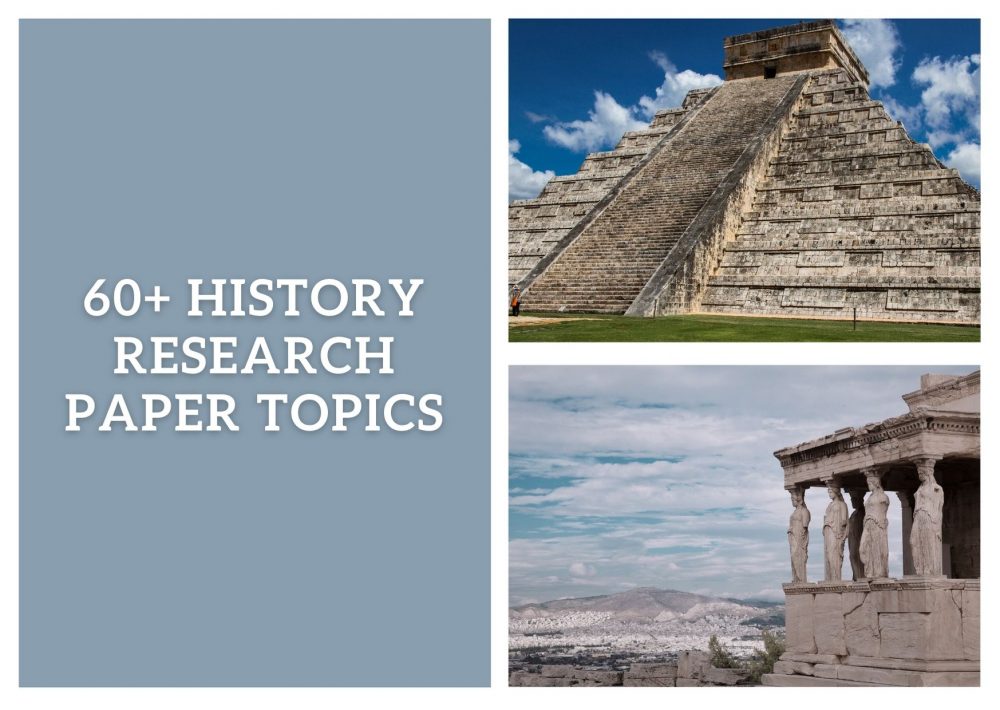
Finding that fascinating topic for history research paper can be a pain in some students’ necks. In this article, we reveal our only suggestions of ideas for good history research topics.
Whether you need United States history research paper topics, Europe and across the world, we have you covered. We have selected relevant topics with a clear statement to jumpstart your writing process. Check out our ultimate list of American history research paper topics for college students:
US History Research Paper Topics
- What was the history and culture of Native Americans before the invasion by Europeans?
- How did 9/11 change the US foreign policy?
- Why did Japan target Pearl Harbor and how significant was it to the US?
- Why did American Revolution leaders fail to achieve equality for everyone?
- What traditions define Independence Day in the US?
- What events led to the abolishment of slavery?
- Who were the initial inhabitants of the US, and how was it found?
- Did the US have to use two atomic bombs on Japan?
World History Research Paper Topics
- What happened in Germany after the fall of Hitler and the Nazis?
- Communism and why it is considered it is considered a lousy system historically.
- Explain why nationalism is a primary source of identity everywhere else but has failed among the Arab States
- In what ways did the assassination of John F. Kennedy change the course of US politics?
- Who was Abu Hamid al-Ghazali, and what were the impacts of his ideas on the Islam world?
- What was the primary intention of the US dropping atomic bombs on Japan? Was it to end the war or to prevent the Soviet Union from amassing influence in Asia?
- Why is the fall of Constantinople in 1453 perceived as the saddest moment in the history of humankind?
European History Research Paper Topics
- Why Eastern Europe has always trailed Western Europe in terms of development
- Which other country used women in World War Two other than Russia?
- What was Hitler’s reasoning for attacking the Soviets during WWII?
- What European nation has the most influential culture in history?
- What are some of the events that shifted France and England’s relationship from enemies to allies?
- Point out some of the differences between feudalism in Eastern Europe and Western Europe
- How were European countries affected by the Industrial Revolution?
- Define the factors the led to the mass degradation of French women in the aftermath of WWII
Ancient History Research Paper Topics
- Explain how philosophy became so popular in Ancient Greece
- What are some of the similarities between Ancient Greece and Ancient Rome?
- Alexander the Great; who was he, and why is he considered one of the most outstanding leaders in history?
- In what way was ancient Egypt unique from Ancient Rome and Greece?
- Point out the difference and similarities between Ancient Greece and Ancient Rome
- What is the origin of democracy in Ancient Greece, and how did it come to be in general?
- What is the story of Theagenes of Thasos, the strongest fighter in Ancient Rome?
Modern World History Research Topics
- What was the status of women in the USSR through the 20th century?
- Why didn’t any western countries intervene in Communist China in the mid-20th century?
- What was the necessity of using an atomic bomb on Hiroshima and Nagasaki?
- What are some of the reasons behind US policies towards immigrants in the 21st century?
- What is the price of industrialization to the American nation?
- What are some of the most prominent inventors and industrialists in the modern-day world?
- How did industrialization influence social movements in the USA?
- Explain American foreign policy from the start of the 21st century
History Topics To Write About Africa
- How Idi Amin did change the world’s attitude to Uganda
- In what ways is the Democratic Republic of Congo different from its neighboring countries?
- Why did it take until the 19th century for European powers to start colonizing Sub-Saharan Africa?
- How were oil and petroleum discovered in Ethiopia?
- Explain why North Africa went from the wealthiest regions during times of the Roman Empire to a regional backwater
- Historically speaking, what are the wealthiest countries in Africa, and what contributed to the wealth in those counties?
- What are some of the post-colonial drawbacks that Africa has had to deal with in recent times?
- What was the African continent’s state in the 1600s? Was it similar to Asia and Europe?
- What religions were practiced in Africa before being influenced by Europe and Asia?
- What were some of the most potent African empires between the 6th and the 8th century?
- What were the consequences of German Warfare in Africa in 1884?
Middle East Historical Research Paper Topics
- The Sumerians; what made the first great civilization of humankind?
- What are some of the less known facts about the Byzantine Empire?
- Explain how the Ottoman Empire spread to the Middle East
- Which countries in the Middle East have been powerful economically throughout history?
- In what ways were the Byzantine and Roman cultures adapted to and incorporated in the Middle East?
- What are the main events that altered the Middle East in modern history?
African American History
- What were some of the impacts of Martin Luther King’s speech on the African American community?
- What was the position of black Americans during the industrial age?
- What were the struggles of the African American population after the Civil War?
- What are some of the beliefs and traditions of African American culture?
- In what way did the African American women help during WWII?
- What did the 14th amendment have to offer the black community?
- What are some of the legends and cultural traits in black history?
Music History Research Paper Topics
- What is the history of the film industry and classical composers?
- How Classical German composers influenced further music development
- How classical melody has been impacted by technology
- Discuss the origins of classical composing
- Analyzing Beethoven’s Fifth Symphony
- A study of early music history and the evolution of musical instruments
History papers carry a lot of weight, allowing college students to learn the culture, traditions, and past of other nations. With our vast range of ideas, you should have a smooth time selecting an ideal topic.
Remember, you can always find research paper writing help online. Online writing services provide cheap, yet quality research papers that are carefully crafted by expert writers. What are you waiting for when help is only a few clicks away?
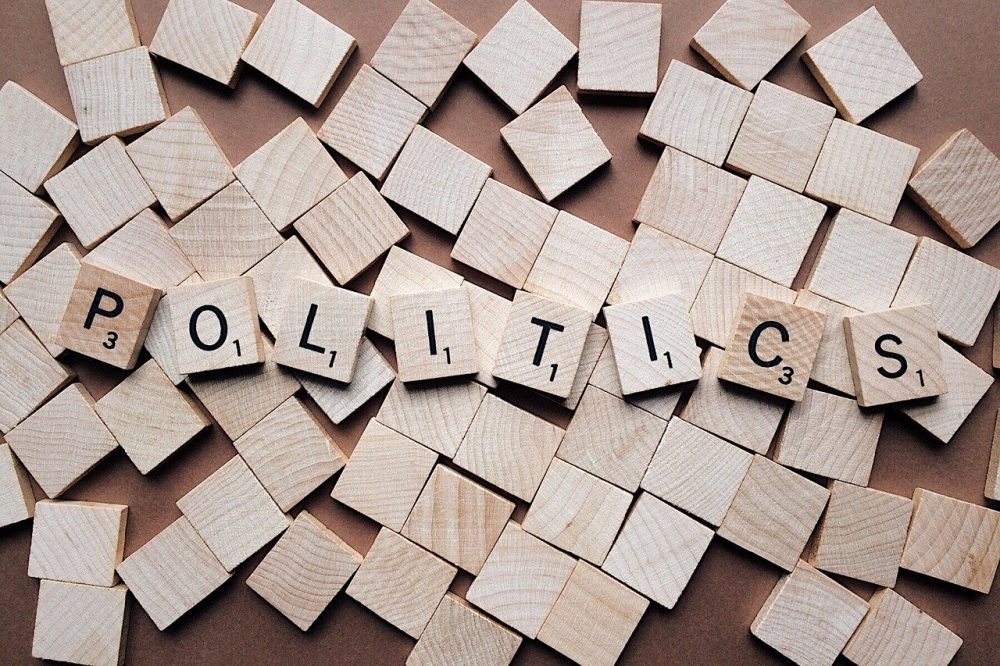
Leave a Reply Cancel reply
Your email address will not be published. Required fields are marked *
Comment * Error message
Name * Error message
Email * Error message
Save my name, email, and website in this browser for the next time I comment.
As Putin continues killing civilians, bombing kindergartens, and threatening WWIII, Ukraine fights for the world's peaceful future.
Ukraine Live Updates

101+ Interesting History Project Ideas For Students
Finding a good history project idea can be tricky, but with some help, students of all ages can pick a fascinating, doable, and educational topic. From biographies of influential people to historical events or places, there are many exciting ways to learn about the past.
This blog post will explore potential history project ideas from different periods, locations, and views. Whether you want to understand your family’s history better, focus on a topic that connects to current events, or satisfy your curiosity about the past, you will find inspiration.
With the right history project idea, you can gain valuable research skills while diving into a subject you’re passionate about. From Native American culture to the Civil Rights Movement and more, read on for historical project suggestions that will teach and engage you.
Are you struggling with History Assignment Help ? Do you need assistance in getting the best and A+ Quality human-generated solutions? Hire our tutors to get unique assignment solutions before the assignment deadline.
What Are History Projects?
Table of Contents
History projects are assignments, often given in school, where students research and present information about a particular topic or period from history. They typically require students to investigate using libraries, museums, interviews, online sources, and other methods to find useful facts and materials.
Students then synthesize what they learned into a project that demonstrates their knowledge. Common types of history projects include research papers, exhibits, documentaries, posters, presentations, websites, and more.
The format allows students to understand history through hands-on learning and exploration. Here are some key reasons history projects are essential:
- Develop research and critical thinking skills
- Gain perspective on how past events shape the present
- Make history come alive through creativity and engagement
- Learn to evaluate and analyze historical sources
- Practice presentation and communication abilities
- Promote an appreciation for the study of history
Here are 103 history project ideas for students, categorized to help you find a topic that suits your interests.
Ancient Civilizations
- The Rise & Fall of the Roman Empire
- Life in Ancient Egypt: Pharaohs, Pyramids, and Daily Life
- Contributions of Ancient Greece to Modern Civilization
- Mesopotamia: The Cradle of Civilization
- Indus Valley Civilization: Mystery of the Lost Civilization
- Ancient Chinese Dynasties: Han, Qin, and Tang
Medieval Times
- Knights and Chivalry: Code of Honor in Medieval Europe
- The Black Death: Impact on Europe in the 14th Century
- Feudalism: Structure of Medieval Society
- Crusades: Holy Wars and Their Consequences
- Vikings: Raiders of the North Sea
Renaissance and Enlightenment
- Renaissance Art and its Influences
- The Scientific Revolution: Changing the Paradigm
- Enlightenment Thinkers: Ideas That Shaped Modern Society
- The Age of Exploration: Discoveries and Consequences
- The Printing Press: Revolutionizing Communication
Also Read:- STEM Project Ideas For Middle School
Colonial America
- 17. Jamestown vs. Plymouth: Contrasting Early American Colonies
- Salem Witch Trials: Hysteria in Colonial Massachusetts
- Founding Fathers: Architects of the United States
- The Triangle Trade: Economic Forces in Colonial America
- Indigenous Peoples and European Contact
American Revolution
- Causes and Effects of the American Revolution
- Revolutionary War Battles: Turning Points and Strategies
- Declaration of Independence: Crafting a Nation’s Identity
- The Role of Women in the Revolutionary Era
- African Americans in the Revolutionary War
19th Century
- Industrial Revolution: Impact on Society and Economy
- Manifest Destiny: Expansion Westward in the United States
- Abolitionist Movement: Struggle for the End of Slavery
- Immigration Waves: Contributions of Immigrants in the 1800s
- California Gold Rush: Boomtowns and Prospecting
Civil War and Reconstruction
- Causes of the Civil War: Sectionalism and Tensions
- Battle of Gettysburg: Explore the Turning Point in the Civil War
- Emancipation Proclamation: Lincoln’s Bold Move
- Reconstruction Era: Rebuilding the United States
- Freedmen’s Bureau: Aid to Former Slaves
- World War I: Causes, Events, and Consequences
- Trench Warfare: Life on the Front Lines
- Treaty of Versailles: Impact on the Interwar Period
- Rise of Adolf Hitler: Factors Leading to World War II
- Holocaust: Remembering the Atrocities
Cold War Era
- The Cuban Missile Crisis: Tensions between the U.S. and Soviet Union
- Space Race: Race for Supremacy in Space Exploration
- McCarthyism: Anti-Communist Hysteria in the United States
- Vietnam War: Causes, Events, and Legacy
- Civil Rights Movement: Struggle for Equality
Post-Cold War
- 47. Fall of the Berlin Wall: Symbol of the End of the Cold War
- Apartheid in South Africa: Nelson Mandela’s Fight for Equality
- The collapse of the Soviet Union: End of the Superpower Era
- Gulf War: Operation Desert Storm
- Rwandan Genocide: Tragedy and International Response
Also Read:- Statistics Project Ideas
Recent History
- 9/11 Attacks: Impact on Global Politics
- War on Terror: U.S. Military Interventions in the Middle East
- Arab Spring: Protests and Political Change in the Middle East
- Brexit: The United Kingdom’s Decision to Leave the EU
- COVID-19 Pandemic: Global Responses and Lessons Learned
Historical Figures
- Alexander the Great: Explore Conqueror of the Ancient World
- Joan of Arc: Explore Heroine of the Hundred Years’ War
- Martin Luther King Jr.: Explore Leader of the Civil Rights Movement
- Winston Churchill: Explore Prime Minister during World War II
- Cleopatra: Queen of Ancient Egypt
Women in History
- Suffragette Movement: Struggle for Women’s Right to Vote
- Eleanor Roosevelt: Explore First Lady and Human Rights Advocate
- Marie Curie: Pioneering Scientist in Radiology
- Rosa Parks: Explore Catalyst for the Civil Rights Movement
- Malala Yousafzai: Advocate for Girls’ Education
Cultural History
- Harlem Renaissance: Cultural and Artistic Flourishing
- Beat Generation: Literary and Cultural Rebellion
- Woodstock Festival: Music and Counterculture in the 1960s
- Mayan Civilization: Art, Architecture, and Culture
- Japanese Tea Ceremony: Tradition and Ritual
Economic History
- Great Depression: Causes and Effects on Global Economies
- 1929 Stock Market Crash: Precursor to the Great Depression
- Keynesian Economics vs. Supply-side Economics
- Gold Rushes: Economic Booms and Busts
- Silicon Valley: Technological Innovation Hub
Social Movements
- LGBTQ+ Rights Movement: Struggles and Achievements
- Environmentalism: Origins and Impact on Policy
- Anti-Apartheid Protests: Global Solidarity
- Occupy Movement: Protests Against Economic Inequality
- #MeToo Movement: Addressing Sexual Harassment and Assault
Military History
- Sun Tzu and the Art of War: Ancient Military Strategy
- Battle of Thermopylae: Spartan Stand Against the Persians
- D-Day Invasion: Allied Assault on Normandy
- Code Talkers: Navajo Language in World War II
- Military Technology Advancements: From Swords to Drones
Historical Artifacts
- Rosetta Stone: Decoding Ancient Egyptian Hieroglyphs
- The Dead Sea Scrolls: Unearthing Ancient Texts
- The Shroud of Turin: Controversy Surrounding the Relic
- The Rosetta Disk: A Modern-Day Rosetta Stone
- The Declaration of Independence: Preserving a National Treasure
Also Read:- Social Studies Fair Project Ideas
Historical Places
- Machu Picchu: Inca Civilization’s Hidden Citadel
- The Acropolis: Symbol of Ancient Greek Civilization
- The Great Wall of China: Construction and Purpose
- The Louvre: Home to Priceless Art and Artifacts
- Auschwitz Concentration Camp: Remembering the Holocaust
Historical Events
- The Great Fire of London: Investigate Destruction and Rebuilding
- The Boston Tea Party: Investigate Prelude to the American Revolution
- The Cuban Revolution: Investigate Fidel Castro and the Rise of Communism
- The Moon Landing: Apollo 11’s Historic Achievement
- The Treaty of Westphalia: Shaping Modern Diplomacy
Historical Science and Medicine
- Hippocrates and the Hippocratic Oath: Foundations of Medicine
- Darwin’s Theory of Evolution: Impact on Biology and Society
These History Project Ideas cover a wide range of historical topics, allowing students to delve into different periods, regions, and themes within history. Students can select projects based on their interests and explore various aspects of human history.
How Do You Plan A History Project?
Here are some tips for planning a successful history project:
- Choose a history topic that interests you and fits the scope of the assignment. Consider a critical event, period, location, historical figure, or cultural phenomenon you want to explore further.
- Research general background information on your topic to help refine and focus your project idea. Determine what’s most important to convey or what questions you want to answer.
- Determine the type of project – will it be a research paper, documentary, website, exhibit, reenactment, or something else? Choose a format that aligns with your topic and allows you to convey what you learned creatively.
- Create a work timeline accounting for research, creating a rough draft, gathering materials, fact-checking, and finalizing the project. Leave time for revisions and editing.
- Locate primary and secondary sources to conduct your research. Use libraries, academic databases, museums, interviews, archives, credible online sources, etc. Evaluate each source for accuracy and credibility.
- Take careful notes and document all sources used, tracking which information comes from each source. This will be important for citations/bibliography later.
- Outline your project and draft a structure before beginning. Use your research to shape the narrative or argument you’ll present.
- Stick to your timeline as you move through the drafting and production process. Review the project requirements and rubric to ensure you meet all expectations.
- Double-check your facts, polish the final product, and practice presenting/explaining your work if required. Revise as needed to create an informative, engaging history project!
How Do You Write A History Project?
Here are some tips for writing a successful history project:
- Craft an introduction that presents your topic and establishes its significance in history. State your central thesis, argument, or purpose for your analysis.
- Provide background context so your reader understands your topic’s setting and circumstances. Give relevant details about time, place, politics, culture, etc.
- Present your research and findings in a logical structure with clear organization. Use sections and headings to divide details and make connections.
- Blend narrative explanation and evidence from sources. Paraphrase, summarize, and directly quote relevant research information to support your points.
- Analyze and interpret your findings to make arguments, draw conclusions, and explain historical significance. Move beyond just restating facts.
- Consider different perspectives and causes when analyzing historical events and figures. Provide context for their motivations and obstacles.
- Use transitions to connect ideas and paragraphs so your writing flows smoothly.
- Define key terms, events, and concepts so readers understand their meaning and historical significance.
- Summarize your main points, emphasize your central argument, and explain why your topic matters.
- Correctly note all sources within the text and in a bibliography using the required citation style.
- Revise your writing to check for clarity, organization, grammar, and spelling before finalizing. Make sure your writing is clear, concise, and compelling.
Final Remarks
In summary, working on a history project gives students an excellent chance to explore the exciting stories of the past. They can build essential skills while exploring different topics that they find exciting. Students can get creative by picking a topic they like, whether it’s for a research paper, a documentary, or a presentation. Being organized, doing careful research, and sticking to deadlines are super important for doing well.
As students learn about ancient civilizations, essential events, incredible people from history, and significant social changes, they understand history better and get better at thinking critically, doing research, and talking to others. History projects make the past feel alive and help us appreciate how history significantly impacts how things are now and what might happen in the future.
Similar Articles

Top 19 Tips & Tricks On How To Improve Grades?
Do you want to improve your grades? If yes, then don’t worry! In this blog, I have provided 19 tips…

How To Do Homework Fast – 11 Tips To Do Homework Fast
Homework is one of the most important parts that have to be done by students. It has been around for…
Leave a Comment Cancel Reply
Your email address will not be published. Required fields are marked *
This site uses Akismet to reduce spam. Learn how your comment data is processed .
Home — Blog — Topic Ideas — 40 Significant Topics in History for Great Research
40 Significant Topics in History for Great Research
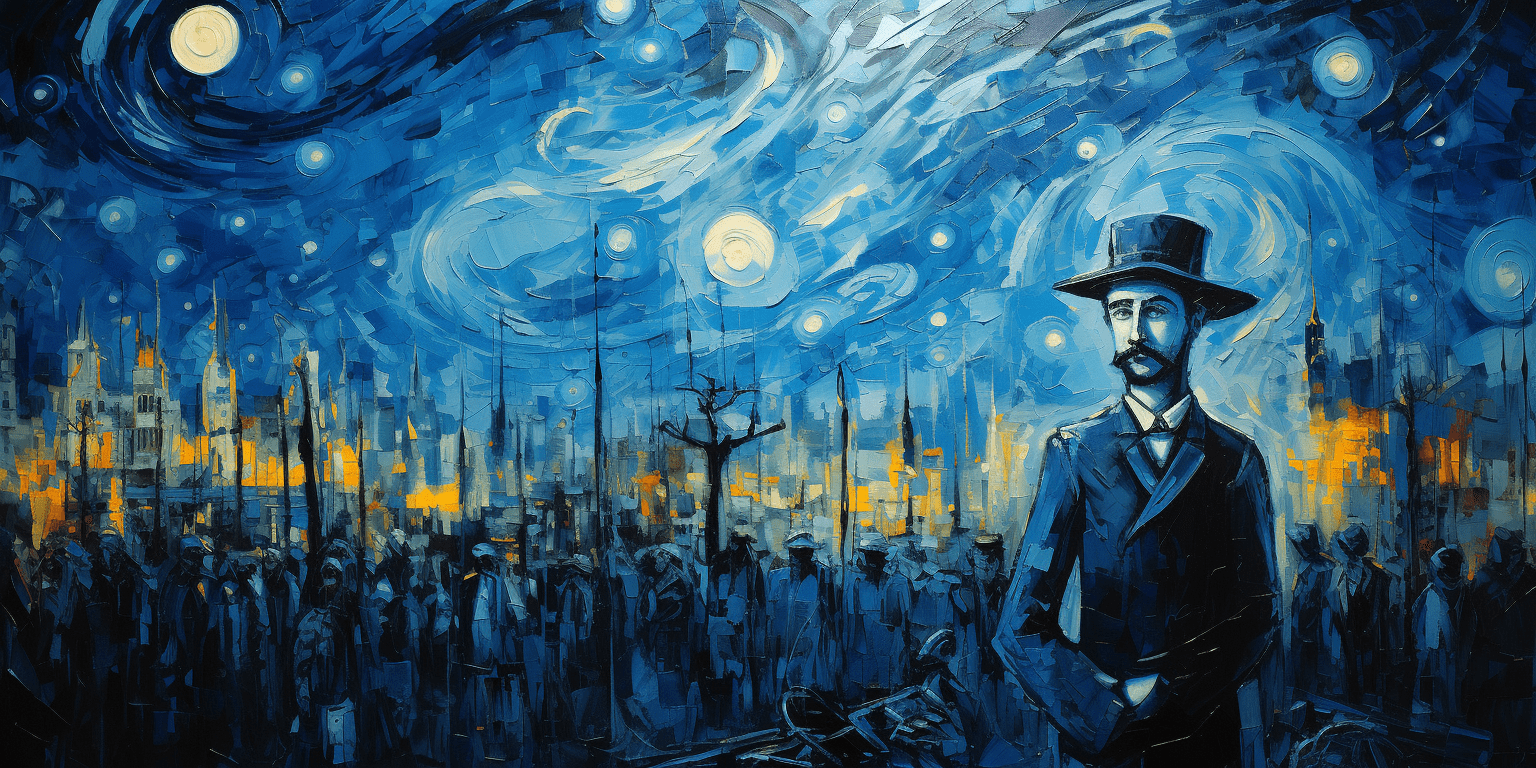
History is one of the most enchanting and influential science areas that plays a critical role in promoting intellectual growth and development. Not everyone tastes it, but the study is necessary. Mankind has a tendency to face the same cyclical problems. Having understood the details, people learn and evolve more effective ways to solve problems. This is our pride, shame and secrets in one "cocktail" of events.
Studying historical discipline expands awareness of the political area, educational processes and technological progress. After in-depth investigation topics in history , you develop critical and technical thinking through the events analysis and their impact on the future. Therefore, we create the systematized essay writing structure. Mentally savvy people fascinate with knowledge, don't they?
History offers many exciting topics to write an essay about. From the rise of African culture to the 2021 military coups in Guinea. The enchanting history research paper topics are built on a clear structure divided into sections. The work difficulty on a historical essay or research project may lie in the lack of exciting topics in history and the feeling that all ones have already been written. The work should bring enjoyment, so we provide cool historical events to write about .
Variety History Topics
Writing historical works seems a daunting task due to the inability to evaluate things from one's own experience. Also, not having thorough events knowledge does not give a chance to fully understand.
Information systematization always leads to qualitative results. Before researching the history topics list, we suggest understanding the working mechanism. To choose the proper topic, it is worth determining the historical aspect to rely on. There are 5 major sections on topics:
Politics : the state structure, rulers, wars , government forms, legislation.
Religion and philosophy : religion, rituals, cult actions, reality concepts.
Economics : forms, production, banking system, finance, employment.
Culture : values, traditions, language aspect, architecture style, education.
Society : personality, nationality, religious affiliation, social groups, creativity.
Top 11 Global History Project Ideas
Epochs of crises and revolutions have led mankind to technological progress. The World way has changed repeatedly, from colonization to industrialization, from kingdoms to states, from subjects to citizens. The countries that have industrialization benefits are now at the forefront. Their influence is growing, and the force balance in the world is shifting periodically.
- The relationship between USA and USSR
- The Great Depression
- The French Revolution
- The Age of Discovery (XV-XVII centuries)
- Migration Period (IV-VII centuries)
- Colonial collapse and the Cold War
- Racial segregation in the United States
- Wars of the Roses
- The Civil War
- Civil rights movement
- Strength of the Civil Rights Movement
Most Significant World History Topics
Is it easy to choose the most breathtaking historical event? The answer is the same for everyone - not easy. Rely on the key areas in the history (listed above) and get a simplified selection. Then pick a period (e.g., epochs, centuries, years) and the range of topics narrows. Next, choose a country, state or continent. Such specifics help to quickly select a goal for a written essay and give productive results.
We offer you to consider topics in history by sections: USA, Europe and Asia.
🗽 United States History
America's history has gone through many growth and decline periods. It began with colonization, the nation formation through wars , survived slavery, racial inequality and industrialism. The USA path is rich in events, so we select the significant American history topics.
1. Great Migration of African Americans in the XX century African Americans began to actively move from southern rural areas to north cities with a frequency from 1916 to 1970. They were inferior to the white population under Jim Crow laws and had no political rights. Describe the political terms use d for bypassing the official anti-slavery law. Specify how they managed slavery escape and find social and economic opportunities.
2. Salem witch trials The end of the 1600s was commemorated by a mass "witch" hunt, about 20 girls were hanged. The rest were imprisoned in the Salem Village community. Answer the questions : How did the Salem witch trials end? What is the witch trials' legacy?
3. Pearl Harbor Pearl Harbor is an American-Asian event, but it is appropriate to attribute it to American history. In 1941, the United State s broke off relations with Japan and began to cooperate financially with China. At that time, Japan and China were at war. The Japanese attacked Pearl Harbor, hoping to conquer Southeast Asia.
4. How did the September 11 attacks affect Americans?
5. Louisiana Purchase.
6. What was the real Gold Rush? The Gold Rush became a mass craze. The most valuable item in those days was not gold! It sounds like a joke, but it's true - it was more profitable to sell shovels than to dig for gold. Explain its occurrence reasons and abrupt ending. Describe unusual facts not found in ordinary scientific works, essays or abstracts. Answer the questions: What did the Gold Rush helped create? How did it affect the United States' development?
7. Prohibition in the USA. Is this a fiasco or an instructive act?
8. The Ku Klux Klan: A shameful US chapter.
9. The Industrial Revolution. How has this affected global production processes? There was a financial and banking system transformation and the rapid modernization growth made it the capitalism's "second echelon". The rise has been organic with real market changeable needs. Describe the industrialization process and its global impact.
10. The Era of Good Feelings in the XIX century
🏰 European history
Europe experienced serious upheavals. European development has survived the Roman Empire`s fall, the great eras in art and the decline after the World Wars. There are a lot of topics to consider, and we offer 10 important history ideas.
1. Middle Ages. The religion cult and a total mindset change. The Roman Empire's collapse served as a new milestone in the evolution and put the idea into the population's minds about a single Christian state. The Middle Ages how the church world development kept religion at the helm for a long time.
2. The Evolution of Civil Society: From Ancient Greece to Modern Times.
3. "Springtime of Nations" (1848-1849). Its reflection in European culture and art.
4. Otto von Bismarck's personality role in the German unification process. History called him the Iron Chancellor. Under his leadership, Germany was unified. Describe how he managed to rally the country and turn it into a strong industrial power.
5. Anglo-German antagonism at the turn of the XIX-XX centuries and its causes.
6. Diplomacy during World War I and post-war peace plans for settlement.
7. Anti-Hitler Coalition on the World War II Fronts: from enmity to military alliance. A states and peoples coalition fought against aggressive Germany, Italy and Japan bloc and their satellites. Thoroughly analyze their actions and strategy to eliminate the Third Reich leader.
8. Italy in the bipolar world era and in the early XXI century.
9. The Fascist Italy Path.
10. The Maastricht Treaty signing and the EU organization. The treaty has united countries for over 30 years. Attempts to unite in a single union originated in the post-war period. Winston Churchill suggested the European countries stop conflicting and create an alliance similar to the United States .
🌅 Asian topics in history
The Asia region is the largest World part and there is much space for its historical reflection and discussion. Paper topics for work are limited by the information source's abundance and size, which cannot be read in the full version. Therefore, we provide the most entertaining topics in Asian history.
1. Mongol conquests and Central Asia. Yasa and Islam: compromise contradictions.
2. Hiroshima and Nagasaki: exceptional atomic bombs use and their consequences. The atomic bombings' role in Japan's surrender and the bombings' ethical justification is still hotly debated. Describe in detail America's motives and the consequences for Japan.
3. Meiji Restoration and Japanese modernization.
4. Main Cultural Achievements of Korea in the Three Kingdoms Period. The states were formed in the struggle against the Chinese conquerors. The Han Dynasty's fall freed the three Korean states from the need to confront an external threat. The three kingdoms' culture was common. Indicate the global religious changes and achievements for future generations.
5. Japanese statehood Formation (VII-VIII centuries): Asuka periods.
6. Religious ideas comparison between the Sumerians and Babylonians.
7. The Islam Emergence: Background and Influence. Islam arose in the early VII century in Mecca, where paganism dominated. This period is characterized by the gradual patriarchal tribal system destruction and the class society emergence. Talk about the transition sequence to Islam and about heritage.
8. Crusades Aftermath.
9. Japanese Spirit Rise in the Edo Period.
10. Yihetuan Movement in China. A specially organized grouping in 1898-1901 opposed foreign interference in China. The authorities went over to the rebels' side. But the Empress went over to the Alliance side, who suppressed the uprising. Describe how China became even more dependent on foreign countries.
To Sum it Up
History is a deep science that requires detailed analysis. The role of history paper research divides your knowledge into before and after . We have provided you with diverse topics for different eras and countries. We hope you find this list helpful.
If you want to get a quality essay, our authors help you sort out the topic and write it for you.
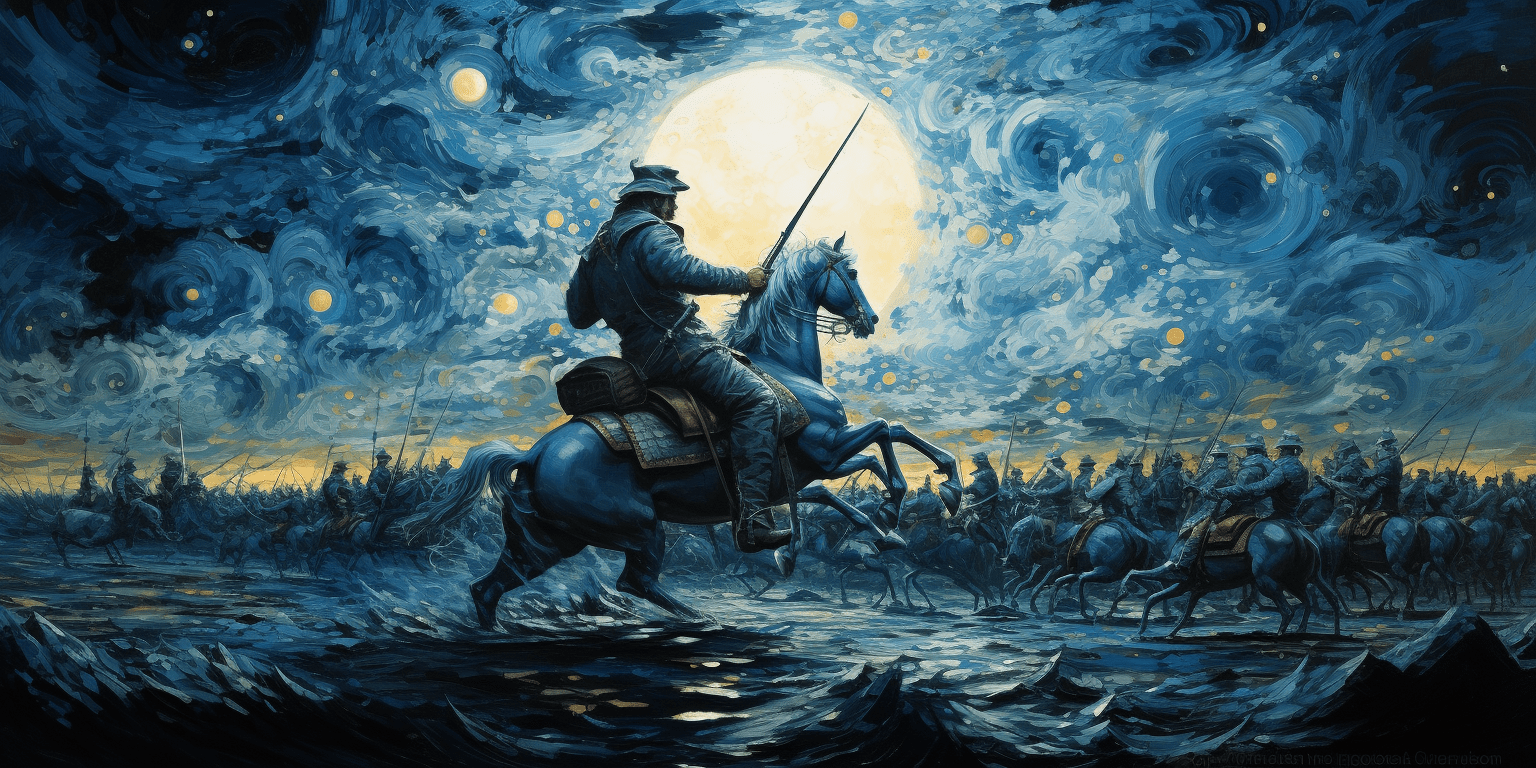
We use cookies to personalyze your web-site experience. By continuing we’ll assume you board with our cookie policy .
- Privacy Policy
Buy Me a Coffee

Home » 300+ American History Research Paper Topics
300+ American History Research Paper Topics

American history is a vast and complex subject that encompasses a wide range of events, movements, and individuals who have shaped the country’s past and present. From the struggles for independence and civil rights to the exploration and settlement of the continent, American history provides an abundance of topics for research papers . Whether you’re interested in politics, social issues, cultural trends, or military history, there are numerous topics to choose from that will help you delve deeper into the fascinating story of the United States. In this arcticle, we will explore some of the most compelling and thought-provoking American history topics that you can choose to explore in your own research .
American History Research Paper Topics
American History Research Paper Topics are as follows:
- The Salem witch trials: religious hysteria and persecution.
- The California Gold Rush: immigration and economic boom.
- The Harlem Renaissance: cultural movements and African American creativity.
- The Stonewall riots: LGBTQ+ rights and activism.
- The Underground Railroad: abolitionist movement and escape from slavery.
- The New York City Draft Riots: racial tensions and class conflict during the Civil War.
- The Battle of Little Bighorn: Native American resistance and US expansionism.
- The Scopes Monkey Trial: evolution and religion in the public school system.
- The assassination of Abraham Lincoln: political upheaval and the aftermath.
- The Bracero Program: labor migration and Mexican American relations.
- The Japanese American internment: civil liberties and government policies during WWII.
- The Black Panthers: civil rights and revolutionary politics.
- The Montgomery bus boycott: racial segregation and nonviolent protest.
- The War of 1812: US-British relations and national identity.
- The Gulf of Tonkin Resolution: US involvement in Vietnam and presidential power.
- The Trail of Tears: forced relocation of Native Americans and government policy.
- The Louisiana Purchase: westward expansion and territorial acquisition.
- The Emancipation Proclamation: Abraham Lincoln and the end of slavery.
- The Boston Tea Party: colonial resistance and the American Revolution.
- The Haymarket Riot: labor movements and the struggle for workers’ rights.
- The Sacco and Vanzetti trial: political prejudice and the justice system.
- The Nixon administration and Watergate: political corruption and media coverage.
- The Battle of Gettysburg: turning point in the Civil War and military strategy.
- The United States’ entry into WWI: neutrality and international relations.
- The assassination of JFK: conspiracy theories and the impact on American politics.
- The Montgomery GI Bill: post-WWII veterans’ benefits and education.
- The 1968 Democratic National Convention: anti-war protests and police brutality.
- The Space Shuttle Challenger disaster: NASA and government accountability.
- The Wounded Knee Massacre: Native American activism and government response.
- The Oklahoma City bombing: domestic terrorism and extremism.
- The Pentagon Papers: government secrecy and media freedom.
- The American eugenics movement: racial science and government policy.
- The Zoot Suit Riots: racial tensions and discrimination in WWII-era Los Angeles.
- The Tet Offensive: turning point in the Vietnam War and media coverage.
- The 1920s: flappers, jazz music, and cultural transformation.
- The Seneca Falls Convention: women’s suffrage and gender equality.
- The assassination of Martin Luther King Jr.: civil rights and the struggle for racial justice.
- The Tea Party movement: conservative populism and political polarization.
- The space race and the moon landing: US-Soviet competition and national pride.
- The Gulf War: US military action in the Middle East and international relations.
- The Hurricane Katrina disaster: government response and racial inequality.
- The Rodney King verdict and LA riots: police brutality and racial justice.
- The Iran-Contra scandal: government corruption and foreign policy.
- The civil rights movement and the Freedom Riders: nonviolent protest and desegregation.
- The Flint water crisis: environmental racism and government negligence.
- The Occupy Wall Street movement: economic inequality and social justice.
- The AIDS epidemic: public health crisis and societal attitudes.
- The American Revolution: causes and consequences.
- The impact of slavery on the development of the United States.
- The Reconstruction Era: successes and failures.
- The Civil War: social, political, and economic impacts.
- The women’s suffrage movement: progress and setbacks.
- The rise of industrialization and its impact on society.
- The Progressive Era: reforms and political changes.
- The New Deal: success or failure?
- The impact of the Great Depression on American society.
- The Second World War: America’s involvement and impact.
- The Cold War: the US and Soviet Union’s global influence.
- The civil rights movement: leaders and strategies.
- The Vietnam War: political, social, and cultural impacts.
- The Watergate scandal: corruption and the presidency.
- The Reagan Revolution: conservatism and change.
- The Gulf War: America’s role in international conflict.
- The 9/11 terrorist attacks: effects on domestic and foreign policy.
- The Obama presidency: achievements and controversies.
- The rise of Silicon Valley: technology and innovation.
- The labor movement: unionization and workers’ rights.
- The Trail of Tears: the forced relocation of Native Americans.
- The Mormon migration: religious freedom and settlement.
- The gold rush: economic and social impacts.
- The women’s liberation movement: progress and setbacks.
- The rise of the suburbs: lifestyle changes and the American Dream.
- The Harlem Renaissance: cultural and artistic movements.
- The Dust Bowl: environmental disasters and migration.
- The Ku Klux Klan: racism and terror in America.
- The rise of the Christian Right: religion and politics.
- The Cuban Missile Crisis: America and the Soviet Union on the brink of war.
- The Manhattan Project: the development of nuclear weapons.
- The Bay of Pigs invasion: US foreign policy in Latin America.
- The Space Race: America’s competition with the Soviet Union.
- The Black Power movement: self-determination and political activism.
- The Stonewall riots: the birth of the modern LGBTQ+ rights movement.
- The War on Drugs: the impact on minority communities.
- The rise of hip hop: cultural expression and social commentary.
- The Iraq War: America’s intervention in the Middle East.
- The Tea Party movement: populism and conservative politics.
- The Dakota Access Pipeline protests: Indigenous rights and environmentalism.
- The #MeToo movement: sexual harassment and assault in the workplace.
- The 2020 presidential election: controversies and historical significance.
- The COVID-19 pandemic: social, economic, and political impacts.
- The climate crisis: America’s role in mitigating global warming.
- The opioid epidemic: public health crisis and government response.
- The gig economy: labor rights and the changing nature of work.
- The immigration debate: policies and social attitudes towards immigrants.
- The Black Lives Matter movement: racial justice and police reform.
- The Battle of Antietam: bloodiest day in American history and its impact on the Civil War.
- The Salem Witch Trials: causes and consequences of the infamous witch hunt.
- The Tuskegee Syphilis Experiment: examining the unethical medical study conducted on African American men.
- The Stonewall Riots: analyzing the LGBTQ+ rights movement and the impact of the Stonewall uprising.
- The Bay of Pigs Invasion: evaluating the failed US attempt to overthrow Fidel Castro’s regime in Cuba.
- The Battle of Little Bighorn: examining the conflict between the US Army and Native American tribes.
- The Red Scare: analyzing the fear of communism in the US during the Cold War.
- The Manhattan Project: evaluating the development of the atomic bomb during World War II.
- The Seneca Falls Convention: examining the first women’s rights convention and its impact on American society.
- The My Lai Massacre: analyzing the massacre of Vietnamese civilians by US soldiers during the Vietnam War.
- The Treaty of Versailles: evaluating the impact of the treaty that ended World War I.
- The Dust Bowl Migration: examining the migration of farmers from the Great Plains to California during the Great Depression.
- The Black Lives Matter Movement: analyzing the movement for racial justice and police reform in the US.
- The Oregon Trail: examining the westward expansion of the US and the impact of the Oregon Trail.
- The 1968 Democratic National Convention: evaluating the protests and violence that occurred during the convention.
- The Indian Removal Act: examining the forced relocation of Native American tribes in the 1830s.
- The Great Society: evaluating the social and economic reforms of President Lyndon B. Johnson.
- The Wounded Knee Massacre: analyzing the US Army’s killing of Native American men, women, and children in 1890.
- The Ku Klux Klan: examining the rise and fall of the white supremacist group.
- The Gadsden Purchase: evaluating the US acquisition of land from Mexico in 1853.
- The Second Great Awakening: analyzing the religious revival of the early 19th century and its impact on American society.
- The Haymarket Riot: examining the labor unrest and violence that occurred during the 1886 Chicago labor rally.
- The Dust Bowl Art: analyzing the art and literature inspired by the Great Plains drought.
- The Roe v. Wade Decision: evaluating the impact of the landmark Supreme Court decision on abortion rights.
- The Salem Customs House: examining the significance of the customs house in Nathaniel Hawthorne’s novel “The Scarlet Letter.”
- The Homestead Strike: analyzing the violent labor dispute that occurred at the Carnegie Steel Company in 1892.
- The War of 1812: evaluating the US conflict with Great Britain and its impact on American society.
- The Sacco and Vanzetti Trial: examining the controversial trial of two Italian immigrants in the 1920s.
- The Scopes Monkey Trial: evaluating the trial that pitted science against religion in the 1920s.
- The Hay-Bunau-Varilla Treaty: examining the US treaty with Panama that led to the construction of the Panama Canal.
- The Bonus Army: analyzing the World War I veterans who marched on Washington, D.C. to demand government benefits.
- The O.J. Simpson Trial: evaluating the impact of the high-profile murder trial on American culture.
- The Iran-Contra Affair: examining the political scandal that involved the US selling weapons to Iran and using the profits to fund anti-communist rebels in Nicaragua.
- The Buffalo Soldiers: analyzing the history of the African American soldiers who served in the western frontier.
- The American Civil War: examining the factors that led to the conflict.
- The New Deal: evaluating the impact of Franklin D. Roosevelt’s economic policies.
- The Space Race: the competition between the US and Soviet Union to explore space.
- The Vietnam War: analyzing the US involvement in the conflict.
- The American Revolution: evaluating the role of key figures like George Washington and Thomas Jefferson.
- The Civil Rights Movement: examining the fight for racial equality in the US.
- The Gold Rush: exploring the impact of the California Gold Rush on American society.
- The Watergate Scandal: the political scandal that brought down President Nixon.
- The Great Migration: analyzing the movement of African Americans from the South to Northern cities.
- The Harlem Renaissance: examining the cultural and artistic movement of the 1920s.
- The Trail of Tears: evaluating the forced removal of Native American tribes from their lands.
- The Cold War: analyzing the political and economic tensions between the US and Soviet Union.
- The Industrial Revolution: examining the changes brought about by industrialization in the US.
- The Boston Tea Party: evaluating the impact of the colonial protest against British taxation.
- The Underground Railroad: analyzing the network that helped slaves escape to freedom.
- The Women’s Suffrage Movement: examining the fight for women’s right to vote.
- The Dust Bowl: evaluating the environmental and economic impact of the Great Plains drought.
- The Emancipation Proclamation: analyzing Lincoln’s decision to free slaves in Confederate states.
- The Transatlantic Slave Trade: examining the forced migration of Africans to the US.
- The Louisiana Purchase: analyzing the impact of the US acquisition of Louisiana from France.
- The Spanish Flu Pandemic: examining the global pandemic that killed millions.
- The Attack on Pearl Harbor: evaluating the impact of the Japanese attack on the US.
- The Montgomery Bus Boycott: analyzing the nonviolent protest against segregated public transportation.
- The Panama Canal: examining the construction of the canal and its impact on international trade.
- The Salem Maritime Trade: analyzing the economic and social impact of maritime trade in the colonial period.
- The Cuban Revolution: examining the overthrow of Batista and the rise of Fidel Castro.
- The Iraq War: analyzing the US invasion of Iraq in 2003.
- The New York City Draft Riots: evaluating the racial and class tensions that led to the riots.
- The Black Panther Party: examining the political and social impact of the Black Panther movement.
- The American West: analyzing the expansion and settlement of the American West.
- The Berlin Wall: examining the construction and fall of the Berlin Wall.
- The 19th Amendment: evaluating the impact of women’s right to vote on American society.
- The United States and the United Nations: analyzing the US involvement in the UN.
- The Jim Crow Laws: examining the laws that enforced racial segregation in the US.
- The Bracero Program: analyzing the US-Mexico labor agreement during World War II.
- The Korean War: evaluating the US involvement in the conflict.
- The Alamo: examining the battle that became a symbol of Texas independence.
- The Assassination of JFK: analyzing the impact of the assassination on American politics and society.
- The Great Chicago Fire: evaluating the impact of the fire that destroyed much of Chicago in 1871.
- The Americanization Movement: examining the movement that sought to assimilate immigrants into American culture.
- The Spanish American War: US imperialism and expansion in the late 19th century.
- The Red Scare: political repression and the fear of communism in the 20th century.
- The National Parks system: conservation and environmentalism in the US.
- The Women’s Liberation Movement: feminism and gender equality in the 1960s and 1970s.
- The Brown v. Board of Education decision: landmark ruling on desegregation in public schools.
- The Gulf of Mexico oil spill: environmental disaster and corporate responsibility.
- The American Revolution: causes, major events, and legacy.
- The Great Depression: economic crisis and government response in the 1930s.
- The Civil Rights Act of 1964: legislative landmark in the struggle for racial justice.
- The Dust Bowl: ecological disaster and its impact on American agriculture.
- The Waco Siege: government overreach and religious extremism.
- The Triangle Shirtwaist Factory fire: workplace safety and labor reform.
- The Black Lives Matter movement: police brutality and racial justice in the 21st century.
- The Homestead Strike: labor dispute and the fight for workers’ rights.
- The Panama Canal: engineering marvel and US influence in Central America.
- The Marshall Plan: US aid to Europe after World War II and the Cold War.
- The Cuban Missile Crisis: nuclear brinksmanship and US-Soviet relations.
- The Montgomery Improvement Association: nonviolent resistance and the bus boycott.
- The Roe v. Wade decision: reproductive rights and the women’s movement.
- The My Lai Massacre: war crimes and US military conduct in Vietnam.
- The Salem-Keizer school desegregation case: busing and the limits of integration.
- The Flint sit-down strike: labor unrest and unionization in the auto industry.
- The transcontinental railroad: westward expansion and economic growth.
- The Iranian Hostage Crisis: US foreign policy and Middle East tensions.
- The Hay-Bunau-Varilla Treaty: US control of the Panama Canal and sovereignty issues.
- The Black Sox Scandal: corruption and gambling in Major League Baseball.
- The Freedom Summer: civil rights activism and voter registration in the South.
- The Salem maritime trade: piracy and international commerce in the colonial period.
- The Stono Rebellion: slave rebellion and resistance in South Carolina.
- The Alaska Purchase: US acquisition of Alaska and its impact on Native Alaskans.
- The United States and the League of Nations: US foreign policy and internationalism.
- The Chicago Seven trial: political dissent and government repression during the Vietnam War.
- The Reagan Revolution: conservative politics and the changing face of American politics.
- The American Indian Movement: Native American rights and activism.
- The Battle of Bull Run: first major battle of the Civil War and its impact.
- The Wounded Knee Occupation: Native American sovereignty and government response.
- The Whiskey Rebellion: taxation and the limits of federal authority in the early US.
- The Iran-Iraq War: US involvement and Middle East politics.
- The United States and the Cold War: US-Soviet relations and the arms race.
- The Ku Klux Klan: white supremacy and domestic terrorism in American history.
- The Battle of Midway: turning point in World War II and military strategy.
- The Montgomery Bus Boycott: analyzing the civil rights movement and its impact on segregation in the South.
- The Cuban Missile Crisis: evaluating the US and Soviet Union’s tense standoff in 1962.
- The Trail of Tears: examining the forced removal of Native American tribes from their lands in the 1830s.
- The Space Race: analyzing the competition between the US and Soviet Union to explore space.
- The Emancipation Proclamation: evaluating the impact of President Lincoln’s proclamation on slavery during the Civil War.
- The Black Panthers: examining the rise and fall of the Black Panther Party in the 1960s and 1970s.
- The Harlem Renaissance: analyzing the cultural movement that celebrated African American art, literature, and music in the 1920s and 1930s.
- The Korean War: evaluating the US and UN’s conflict with North Korea and China in the 1950s.
- The Boston Tea Party: examining the protest that sparked the American Revolution.
- The National Parks System: analyzing the history and impact of the National Parks System in the US.
- The New Deal: evaluating President Franklin D. Roosevelt’s economic reforms during the Great Depression.
- The Black Codes: examining the laws passed in Southern states after the Civil War to restrict the rights of African Americans.
- The Watergate Scandal: analyzing the political scandal that led to the resignation of President Nixon.
- The War on Drugs: evaluating the US government’s policies and actions to combat drug use and trafficking.
- The McCarthy Hearings: examining the anti-communist hearings led by Senator Joseph McCarthy in the 1950s.
- The 1906 San Francisco Earthquake: analyzing the disaster and its impact on the city and American society.
- The Triangle Shirtwaist Factory Fire: examining the tragedy that led to significant labor reforms in the early 20th century.
- The Rodney King Riots: analyzing the 1992 riots in Los Angeles following the acquittal of police officers in the beating of Rodney King.
- The Transcontinental Railroad: evaluating the construction of the railroad and its impact on American transportation and commerce.
- The New York Draft Riots: examining the violent protests against the Civil War draft in New York City in 1863.
- The Tulsa Race Massacre: analyzing the 1921 race massacre in Tulsa, Oklahoma and its aftermath.
- The 1918 Influenza Pandemic: examining the deadly global pandemic and its impact on American society.
- The Battle of Gettysburg: evaluating the pivotal Civil War battle and its impact on the war and American history.
- The Mexican-American War: analyzing the US conflict with Mexico and its impact on American expansion.
- The American Indian Movement: examining the Native American organization and its activism for Indigenous rights.
- The War in Iraq: evaluating the US-led war in Iraq and its impact on US foreign policy.
- The Civil Rights Act of 1964: analyzing the landmark legislation that prohibited discrimination based on race, color, religion, sex, or national origin.
- The Jim Crow Laws: examining the laws that enforced racial segregation in the South after the Civil War.
- The Women’s Suffrage Movement: evaluating the fight for women’s right to vote in the US.
- The Anti-Vietnam War Movement: analyzing the protests and activism against the US involvement in the Vietnam War.
- The Donner Party: examining the ill-fated wagon train journey and its impact on westward expansion.
- The Great Migration: analyzing the mass movement of African Americans from the South to the North and West in the early 20th century.
- The Red Scare: examining the anti-communist hysteria in the US during the Cold War era.
- The Alamo: evaluating the 1836 battle in Texas and its significance in American history.
- The Cuban Revolution: analyzing the revolution led by Fidel Castro and its impact on US-Cuban relations.
- The Dust Bowl: examining the environmental disaster that devastated the Great Plains in the 1930s.
- The assassination of Martin Luther King Jr.: analyzing the impact of the civil rights leader’s death on American society.
- The California Gold Rush: evaluating the rush of people to California in search of gold in 1849.
- The Salem Witch Trials: examining the 1692 witch hunt and its impact on American society.
- The Reconstruction Era: analyzing the period of US history following the Civil War that aimed to rebuild the South and integrate newly freed slaves into society.
- The Space Shuttle Challenger Disaster: evaluating the tragic 1986 event that claimed the lives of seven astronauts.
- The Great Society: examining President Lyndon B. Johnson’s domestic policies in the 1960s and their impact on American society.
- The Bataan Death March: analyzing the brutal forced march of American and Filipino prisoners of war by the Japanese in World War II.
- The Detroit Race Riot: examining the violent 1967 riots in Detroit and their impact on American race relations.
- The Wounded Knee Massacre: analyzing the 1890 massacre of Sioux Indians by US troops and its impact on Native American relations with the US government.
- The Spanish-American War: evaluating the US conflict with Spain in 1898 and its impact on American imperialism.
- The Cold War: examining the geopolitical tensions between the US and Soviet Union from 1945-1991.
- The Underground Railroad: evaluating the network of secret routes and safe houses used to help enslaved people escape to freedom in the 19th century.
- The Tuskegee Airmen: examining the all-Black fighter squadron that served in World War II and their impact on American history.
- The Boston Massacre: analyzing the 1770 event in which British soldiers killed five colonists and its impact on American revolutionary sentiment.
- The 1968 Democratic National Convention: examining the protests and clashes between police and anti-war demonstrators during the convention.
- The Roe v. Wade Supreme Court decision: evaluating the landmark decision legalizing abortion in the US in 1973.
- The Louisiana Territory: analyzing the US acquisition of the Louisiana Territory from France in 1803.
- The Stock Market Crash of 1929: examining the causes and impact of the crash that led to the Great Depression.
- The Lusitania sinking: analyzing the 1915 sinking of a British passenger ship by a German submarine and its impact on American entry into World War I.
- The Second Great Awakening: evaluating the religious revival movement in the US in the early 19th century and its impact on American society.
- The Black Panthers: analyzing the impact of the Black Panther Party on the civil rights movement and American society in the 1960s.
- The Mexican-American War: examining the US conflict with Mexico in the 1840s and its impact on US expansionism.
- The Triangle Shirtwaist Factory Fire: analyzing the 1911 tragedy and its impact on workplace safety regulations.
- The Transcontinental Railroad: evaluating the building of the railroad in the late 19th century and its impact on American transportation and economy.
- The Stono Rebellion: examining the 1739 slave uprising in South Carolina and its impact on American slavery laws.
- The Battle of Gettysburg: analyzing the 1863 battle and its significance in the Civil War.
- The Black Sox Scandal: evaluating the 1919 scandal in which members of the Chicago White Sox baseball team were accused of throwing the World Series.
- The Oregon Trail: examining the westward expansion of American settlers to the Pacific Northwest in the 19th century.
- The Civil Rights Act of 1964: analyzing the landmark legislation outlawing discrimination based on race, color, religion, sex, or national origin.
- The Indian Removal Act: evaluating the 1830 law that authorized the forced removal of Native American tribes from their lands in the Southeastern US.
- The Battle of Antietam: analyzing the 1862 battle and its impact on the Civil War.
- The Iran-Contra Affair: examining the political scandal involving the Reagan administration’s secret arms sales to Iran and illegal funding of Contra rebels in Nicaragua.
- The Pullman Strike: analyzing the 1894 labor strike by railway workers and its impact on American labor laws.
- The 1920s: examining the cultural, social, and political changes that occurred during the “Roaring Twenties.”
- The Battle of Little Bighorn: analyzing the 1876 battle between US forces and Sioux and Cheyenne warriors and its impact on Native American relations with the US government.
- The Montgomery GI Bill: evaluating the legislation that provided education and training benefits to US veterans after World War II.
- The Black Codes: examining the laws enacted in the South after the Civil War that restricted the rights and freedoms of newly freed slaves.
- The Korean War: analyzing the US involvement in the conflict and its impact on American foreign policy.
- The Seneca Falls Convention: evaluating the 1848 convention advocating for women’s suffrage and its impact on the women’s rights movement.
- The Bay of Pigs Invasion: examining the failed 1961 US attempt to overthrow Fidel Castro’s government in Cuba.
- The Homestead Strike: analyzing the 1892 labor strike by steelworkers and its impact on American labor relations.
- The Gadsden Purchase: evaluating the US acquisition of land from Mexico in 1853 and its impact on American territorial expansion.
- The Harlem Renaissance: examining the cultural and artistic movement in the 1920s and 1930s that celebrated Black creativity and identity.
- The Fourteenth Amendment: analyzing the constitutional amendment that granted citizenship and equal protection under the law to all persons born or naturalized in the US.
- The Battle of New Orleans: evaluating the 1815 battle in which American forces led by Andrew Jackson defeated British troops and its impact on American nationalism.
- The Birmingham Campaign: analyzing the 1963 civil rights campaign in Alabama and its impact on the movement.
- The Pullman Palace Car Company: examining the company’s history and impact on American railroad travel and labor relations.
About the author
Muhammad Hassan
Researcher, Academic Writer, Web developer
You may also like

200+ Funny Research Topics

500+ Sports Research Topics

500+ Environmental Research Topics


500+ Economics Research Topics

500+ Physics Research Topics

500+ Google Scholar Research Topics
15 History Project Ideas for High School Students
Indigo Research Team

If you have a deep interest in past events and feel a connection to different periods, pursuing history projects might be for you.
Studying history allows you to understand the reasons behind decisions made over time and gives you valuable skills that can contribute to shaping a better future. Not to mention, passion projects for high school students have become increasingly important to make your college application better.
So, if you are interested in history, here is the list of 15 creative ideas that you can start now:
Creative Ideas for History Projects
1. comparative research studies: history vs present times.
Comparing history and present times through research could be a great history research project idea for high school students. This study offers a valuable opportunity to delve into the complexities of historical events and societies. By examining two or more instances, you can develop critical thinking and analytical skills while uncovering patterns and trends that may not be apparent at first glance. These studies provide an avenue for exploring the similarities and differences between different periods and places, shedding light on the factors that shape societies and influence historical outcomes.
When engaging in a history research project, it is crucial to start by selecting specific historical events or societies to compare. This allows you to focus on research efforts effectively. In addition to investigating political, economic, social, and cultural aspects, it is equally important to dive into the causes and consequences of these events. If you need help to do research, you can always find research mentors who can guide you through the process.
2. Israel-Palestine conflict
The war between Israel and Palestine is one of the trending history project topics , so high school students can get a lot of information online. Learn about the root cause of the conflict by researching the historical background, key events, religion, and cultural values.

3. Ancient Civilizations scrapbook
A virtual Scrapbook is another creative idea for a history project for students. You can choose your favorite ancient civilization and start collecting old images and maps. Join maps and images and write short descriptions for the readers. Do extensive research and learn about their daily life activities to showcase their lifestyle. This project will spark your creativity.
4. Historical Fashion Show
If you have a passion for trends and fashion, the evolution of style is a perfect history project idea. Choose a specific period to take a stroll through the history. Your historical fashion show project will be more interesting if you consider a large period. Conduct research and present how ancient people used to cover their bodies. If you have enough time, you can create simple costumes from ancient civilizations to represent different eras. The video below can also be your reference in creating your historical fashion project.
5. History Box
High school students can create a history project by transforming historical events into three-dimensional masterpieces. You can choose your favorite history projects, such as a big discovery, a famous battle, or any other historical event that inspires you.
Take a shoe box, colored paper, and pens to transform your history project idea into a 3D scene. Incorporate small details like landscapes, buildings, and figures to tell the whole story. Write captions on each item to help other students understand the history.
6. Historical Cooking Show
Calling all foodie students! If you are passionate about cooking, you can try this European history project ideas. Choose your European cuisine and dig deep into how ancient people used to prepare food. Prepare old European dishes and record your adventurous video. Explain the whole recipe and how it reflects the culture of that time.
7. Inventions show
Create a visual show of inventors and inventions. Conduct thorough research, pick a few big inventors, learn about their contributions, and present your knowledge through digital presentation. You can also mention how their inventions changed the lifestyle of that era. This visual showcase will motivate you and your classmates to do something big and create a better future.
8. Historical Comic Show
Create a comic strip by using historical events. Choose a particular era and gather drawings and captions to narrate the key moments. This history project idea will polish your storytelling skills and make history more accessible and entertaining.

9. Podcasts from the Past
Creating a podcast series of historical figures can take your creativity to the next level. Interview "guests" from the past, portraying their achievements, struggles, and impact on society. Use your creativity to make it informative and entertaining for your audience.
10. Timeline Wall
High school students can use a blank wall to showcase significant events of a specific region. Suppose you want to showcase US history, then conduct research and list down important events of the past. Using different colors and markers, you can illustrate events on the wall.
11. Presidential Time Capsule
This is one of the best US history final project ideas. Students can represent different presidents by exploring their political achievements, personal aspects, and societal influences. You can create artifacts to showcase the life of a specific president. This US History project idea will enhance your artistic skills.
12. Oil Board Game
Are you looking for Texas history project ideas? This educational oil board game will allow you to explore the oil industry of Texas. You need extensive research to learn about the boomtown era, economic fluctuations, and the impact of oil discoveries. Players will take on the roles of independent oil entrepreneurs, navigating the economic landscape to strike it rich or face financial pitfalls.

13. ABC Past Book
Students can create an E-book just like a dictionary where each letter represents a historical event of a specific era or region. For example, A stands for Arts & Crafts Movement Worksheet and B stands for Berlin. You can add small captions and illustrations to enhance readability.
14. Black Man Museum
Black Man Museum is one of the outstanding black history project ideas because it allows you to honor the achievements and struggles of people of color. Conduct research and find a few historical black figures, gather all the information about their achievements. You can also share stories of black people in your community. This project will spark your public speaking abilities and deepen your understanding of the diverse contributions to society.
Following are a few more black history project ideas:
- The Montgomery bus boycott
- The civil rights movement
- Black women’s history
- The black panthers
- Contribution of black teachers in Society
15. Documentary on the Freedom Movement
If you’re passionate about India’s history and looking for Indian history project ideas, you can create a Documentary on the Freedom Movement. Find elders from your family or your community who witnessed the freedom of India and record their interviews. Ask about their experiences, sacrifices, and contributions to the freedom movement. This could be a good history research idea because the diverse perspectives can help you make your project more interesting.

How to Create a Successful History Project for a High School Student?
Before choosing your history project, ask yourself a few questions what do you like the most about history? How much time do you have to complete the project and what are your educational goals? These questions will help you choose the right project that will stand out from the crowd.
Here are some more tips that will make your history project rewarding.
1. Identify Your Interest
The common rule to start anything is your interest, the more you enjoy doing something, the more it will motivate you to finish the project. Start thinking about the historical events, periods, and figures that capture your attention.
2. Consider your Class Curriculum
To obtain history project ideas, you could also browse on school's history book to explore topics that you find interesting. You can also consider themes that haven’t been covered in your class yet. Choosing a topic from your class content will help you to understand better and perform well in final exams.
3. Explore Current Events
Consider current issues that have relevance to history. Connecting the dots of the present to the past can make your project more engaging and memorable.
4. Create an Engaging Documentation
Creating visually appealing documentation is not only aesthetically pleasing but also a powerful tool for exploring historical events. Start with providing a visual representation of the chronological order of key events, timelines help learners connect the dots and develop a deeper understanding of the subject matter.
Visual cues capture people’s attention and spark their curiosity, encouraging them to dig deeper into the interconnectedness between historical events and notable figures. Ultimately, creating engaging documentation will always be beneficial for your college application or future careers.
5. Use Historical Books and Resources
When working on a history project, it is essential to utilize reliable historical books and resources. These sources provide accurate and credible information that can support your research and strengthen the credibility of your project.
Start by identifying reputable books written by historians or experts in the field. Look for well-researched, peer-reviewed, and widely recognized books within the academic community. These books often provide comprehensive coverage of knowledge that you can rely on.
There are endless creative ideas for history projects. You should choose something that you’re passionate about. We assume that this article has given you a project idea and by choosing the above tips, you can bring life to your history project.
History is no doubt one of the most interesting topics to explore in a research project. If you want to start your research journey, the Indigo Research Program is here to transform your idea into reality. We will pair you with mentors from top universities and turn your project into publishable research.

Want to create or adapt books like this? Learn more about how Pressbooks supports open publishing practices.
6 Choosing and Narrowing a Topic
Choosing a topic to research.
Students often struggle to choose their topics of study or interest and therefore do not know where to start when it comes to the work of a history class. Here are some points to consider:
The most important element in choosing a topic for an undergraduate history class is to make sure that you can remain interested in the topic. Start by listing subjects, time periods, scenarios that interest you. Then consider whether or not you might want to focus on an individual, a singular event, a movement that crossed several eras, or some other aspect of the past. You might also consider what kinds of sources interest you—personal correspondence or diaries? Political speeches? Videos? Scientific treatises? Maps? Advertisements? Some of the best research papers focus on a narrow range of sources, but because they are examined within a new framework, or particularly in-depth, they yield fascinating new analyses.
Topic Finder and Term Clusters
For those with access to UTA’s databases, you can “map” terms that interest you on Gale Virtual Reference library and see related terms for entries in GVRL’s resources. For example, if you put in “pandemic” and “history” you get citations to a number of related individuals and events of previous pandemics in global history. See this link to Gale Virtural Resource Library and click on “Topic Finder” at top of page. https://login.ezproxy.uta.edu/login?url=https://go.gale.com/ps/start.do?p=GVRL&u=txshracd2597
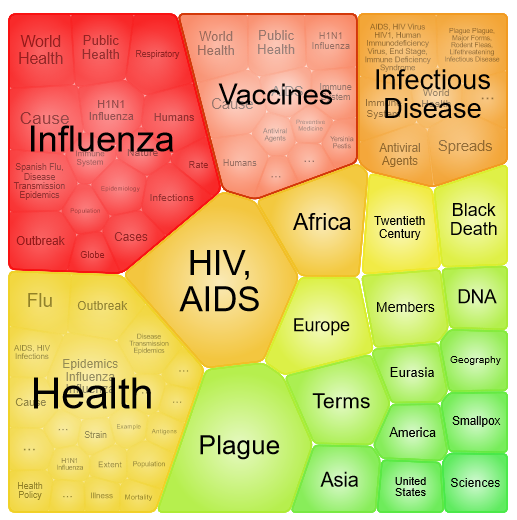
The second most important element is to ascertain whether you can access the sources necessary to answer your research question. Are primary sources available? Do you know—or can you find—some of the secondary resources, that is, the historians who have preceded you and have written about the topic? [See Locating Sources ] You may be particularly interested in ancient or medieval history, or the history of an indigenous people far removed from the United States. Unfortunately, the older the primary source or the further removed from the US experience it is, the less likely it is to be accessible to a public university student. Sometimes you can find a unique digitized or published set of primary sources but counting on such a find is risky. You might, however, be able to find contemporary sources on the representation of your topic—say nineteenth-century “gentlemen archaeologists” who studied those distant peoples, or twentieth-century newspaper or magazine articles that discussed an ancient find—thus allowing you to at least see how others from a more modern era have portrayed those times or individuals that interest you. Remaining flexible and creative when honing your topic is key.
Occasionally, a professor will direct students toward specific topics or otherwise offer parameters. In this instance, make sure you understand the scope, or timeline/focus, of your topic. Is your instructor looking to see if you can analyze change over a broad swath of time—centuries—or (more likely) to explain the motivations of an individual or what happened at a specific point in time? What sort of allowances will your instructor make for your own take on the topic? Does your instructor have in mind a particular sort of primary source analysis, such as considering maps or the artifacts of popular culture? Even with assigned topics, you should be able to find a research question that will interest you and be accessible to you with a bit of creativity.
Narrowing down your Research Question
Once you have chosen your topic or subject, it is time to frame your project by asking the right Historical Questions. Questions form the backbone of historical analysis and direct the historian as they complete the research portion of the assignment. By developing a proper set of questions, historians can set effective and efficient parameters on their research as they begin to study their accumulated evidence. For example: What role did women play in the American Revolution? This question defines both the subject matter of the research (women) and the time period (American Revolution) while also directing our reading of the documents. We are now going to look for women who played active roles during the war, as well as the impact of those actions. But it would be wise to narrow your topic further still if you only have a semester in which to produce your paper. You might do so by place or time. What role did women in Massachusetts play during the opening years of the Revolution? Or what was the contribution of a particular woman—say for example how did Mercy Otis Warren affect the development of Revolutionary politics of Colonial Massachusetts?
You’ll notice by this last question that the historical question you ask should define the scope of your research in such a way that you will be able to isolate your subject quite a bit. Though you started with a broad interest—women in the American Revolution—your research question has allowed you to focus on a person who left sources, and a problem that needs answering—what did Warren do in the context of her own community in the years leading up to the American Revolution? For the most part, undergraduate students of history tend to attempt subjects that are too broad for fear that they will not be able to “fill up ten pages” (or twenty or five) unless they aim broadly. But this assumption sets them up for failure, in that trying to tackle a large question, well-trodden by other historians, they are unable to demonstrate the primary source analysis skills that their professors most want to see. Although you should consult closely with your instructor, the best rule of thumb is to narrow your topic into a question that has specificity by time, place, and primary source collections .
Don’t worry though. Most research topics lend themselves to multiple historical questions, any one of which would make a decent research paper for an undergraduate student. By answering these with proper analysis of evidence historians are capable of crafting well-supported arguments and conclusions.
Recapping: How to make sure you find a topic for your paper that works
1. Be curious about a topic for which there exists primary sources –either in a local archive, in published primary sources, or a digital collection. What would you like to know? Brainstorm with many questions. Perhaps you might start with:
- An event (a strike, an invention, a battle, a treaty, a new law): what was the cause? Who was responsible? Why him/her? Why did it happen when it did? Can I compare it to some similar event, and thereby evaluate what was unique about this cause/outcome?
- An on-going trend (protests, women smoking, anti-tobacco movement): what was it like for people involved in this trend? Why did they make the choices they did? Why not other ones? How did they choose to participate?
- Individual’s or groups’ motivations and responses – what motivated an individual? How did others understand an event or a remarkable individual? What led a group to organize?
2. Choose the best answerable problem from these questions . This involves narrowing the question, so that rather than asking about motivations generally, your research question might be “Why did x act as she did during the debate over the initial passage of this legislation?” OR “What were three major concerns for y when he was involved in that on-going trend?” Some suggestions for narrowing include:
- Considering a specific time period (the background or ten years after a new invention)
- Assessing the impact in a different location, such as a town you know something about, or have access to the newspapers for.
- Focusing on a single individual and tracing their own experience in the context of a an important event or emerging trend.
- Being pragmatic; narrow your question in light of available primary sources to answer your question.
3. Draft an argument or hypothesis based on that question , and make sure it’s grounded in an historical context (that is, not a trans-historical “people are like this” explanation). For example,
- X pursued this legislation because she was inspired and educated by her father, who was also a reformer.
- This enslaved man who corresponded with his master in the 1850s spoke in a sort of code, rarely revealing sincere anger or irritation.
For further help in narrowing down a topic check out Learning to do Historical Research which has additional helpful resources
How History is Made: A Student’s Guide to Reading, Writing, and Thinking in the Discipline Copyright © 2022 by Stephanie Cole; Kimberly Breuer; Scott W. Palmer; and Brandon Blakeslee is licensed under a Creative Commons Attribution-NonCommercial-ShareAlike 4.0 International License , except where otherwise noted.
Share This Book

199+ reMarkable US History Project Ideas For Students
Let’s dive into some awesome US history project ideas! We’re going on a journey through America’s past, where cool stories pop up everywhere. Whether you’re a curious student, a teacher looking to spice up class, or just love history, get ready for a fun ride.
We’ll act out important events and uncover interesting tales. Get set to discover the amazing story of the USA in a way that’s super interesting and exciting!
Table of Contents
US History Project Ideas
Check out US history project ideas:-
Colonial America
- Create a timeline of colonial events.
- Describe daily life in a colonial town.
- Compare Northern and Southern colony economies.
- Analyze the Salem Witch Trials’ impact.
- Map the 13 colonies’ growth.
- Explore colonial religion’s role.
- Study Native American-colonist relations.
- Present a colonial industry’s significance.
- Design a colonial town poster.
- Write a colonial settler’s diary entry.
American Revolution
- Timeline of key events.
- Women’s role in the Revolution.
- Impact of the Declaration of Independence.
- Compare Continental and British armies.
- Map major Revolutionary War battles.
- African Americans’ role in the Revolution.
- Foreign aid’s impact.
- Significance of a battle (e.g., Saratoga).
- Colonial newspaper article.
- Patriot or loyalist speech.
Early Republic
- Constitution’s creation overview.
- Louisiana Purchase impact.
- Compare Federalists and Democratic-Republicans.
- Map westward expansion.
- Native Americans’ role in expansion.
- Impact of the War of 1812.
- Founding father biography.
- Political cartoon on early republic issues.
- Frontier settler’s diary entry.
- Industrial Revolution’s impact analysis.
Civil War and Reconstruction
- Civil War causes timeline.
- Impact of the Emancipation Proclamation.
- Union vs. Confederate armies comparison.
- Map Civil War battles.
- Women’s role in the Civil War.
- Reconstruction Amendments’ impact.
- Civil War figure biography.
- Civil War newspaper article.
- Soldier’s diary entry.
- Reconstruction’s impact on American life.
Westward Expansion
- Lewis and Clark expedition overview.
- Oregon Trail impact.
- Compare migration experiences.
- Map major expansion trails.
- Native American impact.
- Gold Rush impact.
- Western expansion figure biography.
- Westward expansion poster.
- Pioneer’s Oregon Trail diary entry.
- Impact on Native American tribes.
Industrialization and Urbanization
- Industrial growth overview.
- Urbanization’s impact.
- Immigrant experiences comparison.
- Map late 1800s city growth.
- Labor unions’ role.
- Inventions’ impact.
- Industrial Revolution figure biography.
- Political cartoon on industrialization.
- Child laborer’s factory diary entry.
- Environmental impact analysis.
Progressive Era
- Progressive movement goals overview.
- Impact of muckraking journalism.
- Compare Progressive Era presidents.
- Key reforms timeline.
- Women’s role in the era.
- Triangle Shirtwaist Factory fire impact.
- Progressive Era figure biography.
- Poster promoting a reform.
- Child laborer’s Progressive Era diary entry.
- Prohibition’s impact analysis.
World War I
- World War I causes overview.
- Impact of new weapons.
- Soldier experiences comparison.
- Key events timeline.
- Women’s role in the war.
- Treaty of Versailles impact.
- World War I figure biography.
- World War I propaganda poster.
- Soldier’s trench diary entry.
- Impact on America’s global role.
Roaring Twenties
- Cultural changes overview.
- Impact of new technologies.
- Urban vs. rural experiences comparison.
- Women’s role in the 1920s.
- Prohibition’s impact.
- 1920s figure biography.
- 1920s event or product poster.
- Flapper’s diary entry.
- Great Migration impact analysis.
Great Depression and New Deal
- Great Depression causes overview.
- Impact of the 1929 stock market crash.
- Experiences of different groups comparison.
- New Deal programs’ role.
- Dust Bowl impact.
- Great Depression figure biography.
- Political cartoon on the Depression.
- Dust Bowl survivor’s diary entry.
- New Deal’s impact analysis.
World War II
- World War II causes overview.
- Holocaust impact.
- World War II figure biography.
- World War II propaganda poster.
- Soldier’s wartime diary entry.
- Impact on America’s superpower status.
- Cold War origins overview.
- Impact of the Korean War.
- Containment vs. détente comparison.
- Espionage’s role.
- Cuban Missile Crisis impact.
- Cold War figure biography.
- Political cartoon on Cold War issues.
- Cold War citizen’s letter.
- Impact on American foreign policy.
Civil Rights Movement
- Civil Rights Movement overview.
- Impact of nonviolent resistance.
- Civil Rights leaders comparison.
- Women’s role in the movement.
- Civil Rights Act of 1964 impact.
- Civil Rights Movement figure biography.
- Equality and justice poster.
- Civil Rights protest participant’s diary entry.
- Impact on modern American society.
Vietnam War
- Vietnam War causes overview.
- Impact of media coverage.
- Anti-war movements’ role.
- Impact on the Vietnamese people.
- Vietnam War figure biography.
- Vietnam War era propaganda poster.
- Soldier’s Vietnam War diary entry.
Modern America
- Watergate scandal overview.
- Reagan Revolution impact.
- George H.W. Bush vs. Bill Clinton comparison.
- Technology’s role.
- Impact of 9/11.
- Modern American figure biography.
- Political cartoon on modern issues.
- Survivor of a modern event’s letter.
- Impact of social media analysis.
Cultural and Social History
- Cultural movement overview.
- Musical genre impact.
- Immigrant groups’ experiences comparison.
- Minority group timeline.
- Sports’ role.
- Impact of a Supreme Court case.
- Cultural figure biography.
- Cultural group contribution poster.
- Immigrant’s letter.
- Social movement impact analysis.
Economic History
- Economic event overview.
- Impact of economic policy.
- President economic policy comparison.
- Economic events timeline.
- Industry impact.
- Impact of an economic theory.
- Economic figure biography.
- Economic policy or theory poster.
- Economic event survivor’s letter.
- Impact of globalization analysis.
Political History
- Political event overview.
- Impact of political ideology.
- US vs. another country political systems comparison.
- Political events timeline.
- Party impact.
- Political movement impact.
- Political figure biography.
- Political cartoon on an issue.
- Political era citizen’s letter.
- Campaign finance impact analysis.
Environmental History
- Environmental event overview.
- Impact of environmental policy.
- President environmental policy comparison.
- Environmental events timeline.
- Impact of an environmental disaster.
- Environmental figure biography.
- Environmental conservation poster.
- Environmental disaster survivor’s letter.
- Impact of climate change analysis.
Military History
- Battle overview.
- Military technology impact.
- Military events timeline.
- Military branch impact.
- Impact of a war on society.
- Military figure biography.
- War propaganda poster.
- War impact on foreign policy.
These project ideas offer a variety of topics and can be tailored to different grade levels and interests.
What can I do for my history project?
Check out some of the best history project:-
Research and Writing
- Explore a historical event or person.
- Compare two historical times or events.
- Discover a lesser-known historical figure.
- Learn about daily life in history.
Creative Projects
- Make a historical documentary .
- Design a museum exhibit.
- Write a historical fiction story.
- Build a model of a historical landmark.
- Create a historical comic strip.
Interactive Projects
- Develop a historical board game.
- Organize a historical debate.
- Create a historical podcast.
- Host a historical fashion show.
Personal Connections
- Research your family history.
- Investigate local history.
- Choose an inspiring historical figure.
- Pick a project that interests you and fits your class requirements!
How do you write a history project?
Check out the best ways to write a history project:-
Pick a Fun Topic
- Choose something you like.
- Make sure it’s not too big.
- Use different sources.
- Take notes carefully.
- Have a clear main idea.
- Start with a good intro.
- Use paragraphs for your points.
- Finish with a summary.
- Keep it simple and clear.
- Cite your sources.
- Check for mistakes.
- Use pictures or maps.
- Keep your timeline clear.
- Think about your audience.
Following these steps will help you make a great history project!
What are some history project ideas?
Check out some of the best history project ideas:-
- Highlight a lesser-known historical figure.
- Compare two major events.
- Explore daily life of a social group.
- Present different views of a controversial event.
- Design a history-themed escape room.
- Write a historical screenplay.
- Develop a historical video game.
- Compose a historical song.
- Host a historical simulation.
- Create a historical walking tour.
- Organize a living history event.
- Run a historical social media campaign.
- Research a family heirloom.
- Study a local business’s history.
- Interview a witness of a historical event.
Remember, make your project fun and interesting!
How to do a history project?
Check out how to do a history project:-
Choose a Topic
- Pick something you like.
- Check for good sources.
Research and Evidence
- Take notes.
- Find facts that support your topic.
- Explain why it matters.
Structure Your Project
- Start with an interesting intro.
- Use paragraphs for each point.
- Summarize at the end.
Writing Tips
- Keep it clear.
- Use descriptive words.
- Give credit to your sources.
- Use visuals.
- Keep a timeline.
In short, there are lots of fun ways to learn about U.S. history through your projects. You can focus on lesser-known people, compare big events, or explore daily life back then. These projects teach you and spark your curiosity.
By doing them, you not only learn history but also get better at important skills. So, dive into the stories of the past and enjoy your journey through U.S. history!
Frequently Asked Questions
How can i make my project stand out.
Craft a unique narrative, add personal touches, and utilize creative mediums like visual aids or presentations.
Can I focus on a specific era for my project?
Certainly! Feel free to narrow your focus to a particular period or theme that resonates with your interests.
Leave a Comment Cancel Reply
Your email address will not be published. Required fields are marked *
Save my name, email, and website in this browser for the next time I comment.
- Research Paper Guides
- Research Paper Topics
250 Interesting History Research Paper Topics
- Speech Topics
- Basics of Essay Writing
- Essay Topics
- Other Essays
- Main Academic Essays
- Basics of Research Paper Writing
- Miscellaneous
- Chicago/ Turabian
- Data & Statistics
- Methodology
- Admission Writing Tips
- Admission Advice
- Other Guides
- Student Life
- Studying Tips
- Understanding Plagiarism
- Academic Writing Tips
- Basics of Dissertation & Thesis Writing
- Essay Guides
- Formatting Guides
- Basics of Research Process
- Admission Guides
- Dissertation & Thesis Guides

Table of contents
Use our free Readability checker
People often say that time travel is impossible. I beg to differ. Did you know that researching historical events can be regarded as time traveling? Because you will get more information about events as if you were there. Most university and college students in the United States consider writing history papers uninteresting. Some of their negative opinions stem from inability to come up with unique and fascinating historical research topics. If you have a history assignment and are stuck on finding a suitable title that can guarantee you success, you are in the right place. Our research paper writers for hire have compiled various history research paper topics that can inspire your essays. Select from different interesting topics in history to research and write on. Apart from giving you 250 research themes, this article also explains what these topics are, their characteristics, and how to choose them.
What Are History Research Paper Topics?
History research paper topics refer to titles that explore past times, events, and the evolution of cultures and traditions. As a branch of more broad social science research topics , they evaluate social, political, scientific, and economic developments that humans have made since the beginning of time. History research topics majorly focus on recorded and unrecorded past events and times. The theme you choose for your research paper or thesis will guide your overall content. You may be provided with history paper topics by lecturers or professors in your school or required to come up with one of your own. In this case, we have got a huge list for your selection.
Characteristics of Good History Research Topics
Before writing any history paper, you should come up with or select a suitable title. Choosing good history topics to research is a challenging task. As a scholar, you may falter at this stage and pick a topic that is unsuitable for your paper, which eventually affects your grade. Since we want to make it easy for you, we will provide a checklist of characteristics to look out for when selecting titles for your essay. Good topics for a history research paper should be:
- Meaningful.
- Unambiguous.
- Attractive.
- Expressive.
- Well-defined.
How to Choose a History Research Topic?
Unless you are provided with a title to write on, most times, you will be required to come up with your research topics in history. Generally, this is a broad subject covering different areas. As a result, it may be a tedious task for you to try and select a suitable research topic for history paper. However, do not worry because we will present a series of steps to guide you in choosing a title for your essay. Follow this procedure when you want to pick historical topics to write about:
- Brainstorm ideas and determine the best one.
- Evaluate all background information that has been provided.
- Focus on issues that are interesting to you.
- Create a keyword list or an outline for your topic.
- Be flexible in your research.
- Ensure all titles meet assignment requirements.
List of History Topics to Research
To succeed in your essays, it is vital to come up with good research topics for history. Therefore, you should select unique and interesting historical topics to research. Below are examples of best history research paper topics:
- What were major impacts of slave trade in Europe?
- Historical development of the industrial revolution.
- Factors that promoted construction of pyramids in Egypt.
- Negative consequences of World Wars on the global economy.
- Effects of the American Civil War on people’s ways of life.
- Historical origin of the American Revolution.
- Impacts of European scramble for and partition of Africa.
- Factors that led to the US-Mexico war in 1846.
- Major reasons why the Soviet Union collapsed.
- Expressionist movement and its impacts on modern art.
The following list offers everyone what they need. If not, ask our experts for a piece of advice or generate a title to your liking with our Topic Generator .
Interesting History Topics to Research
There are many interesting history research paper topics that you can write on. However, we strive to provide you with the best. We have compiled a list of most interesting history topics for you to pick:
- What processes were taken in abolishing slave trade?
- Queen Elizabeth: A historical background of how she came to power.
- Factors that led to Americans going into Civil War.
- Main uses of money in ancient Greece.
- Science that led to discovery of polio vaccines.
- Key facts about the American Revolution.
- Assassination attempts on US Presidents in the last 70 years.
- Effects of child labor during the Puritan era.
- Major roles played by America during World War I.
- What factors made the Titanic sink?
- Environmental impacts of industrial revolution.
- What economic role did women play during the Great Depression?
- How did the Germantown Battle start?
- What influenced the Spanish-American War ?
- Roles played by religious leaders during the Aztec era.
Good History Research Paper Topics
Apart from interesting titles, there are also good topics for history research paper that can guarantee you high grades in your paper. Below is a list of good history paper topics:
- Historical origin of the Roman Empire.
- What tactics were used by Greeks in their win against Persians?
- Famous war strategies employed by Alexander the Great in his conquest of Egypt.
- What lesson can we learn from construction and implementation of the Great Wall of China?
- Most successful attacks by Julius Caesar on Great Britain.
- Hun's first invasion of Europe: An analysis of its success.
- Challenges faced by Mohammed in his journey from Mecca to Medina.
- Impacts of Aristotle’s philosophical ideas in today’s world.
- First Greek Olympiad and its legacy.
- Famous African American soldiers during the Civil War.
- Achievements of Genghis Khan in Asia.
- Russia-Ukraine war: Origin of this conflict.
- Challenges faced by the American army in Vietnam.
- Economic implications of Versailles Treaty on European nations.
- Major causes of World War II.
Unique Historical Research Topics
To stand out from other scholars, you ought to have unique history research topics. To get you there, we have provided history topics to write about:
- Historiography of reasons that led to World War I.
- Adoption of Rococo artistic style in architecture.
- Major environmental impacts of late Warthe retreat in central Europe.
- What political impacts did cartoons and propaganda experts have during World War II?
- What vital religious roles did sculptures play in ancient Greece?
- History of famous Christian symbols and their significance.
- Psychological significance of Kazimir Malevich's artworks.
- Origin and political importance of Dalits in India.
- How did Julius Caesar and Cleopatra’s relationship affect his leadership?
- Famous medics who played a crucial role during World War II.
- What key implications did Balkan Wars have on the European map?
- Achievements of Queen Victoria’s first year in office.
- Discovery of X-Rays: How and by who?
- Spanish Civil War: An analysis of first 100 days during the war.
- Key events that followed after Pearl Harbor was attacked.
Before you start writing a History research paper, go deep into the area you are studying and don't skip important dates. Get proficient paper help 24/7 if that sounds like a waste of time for you.
Popular History Research Topics
Your selection of research topics on history may also be driven by popularity. If that is the case, we have a list of history research paper topics for you below:
- What factors triggered the Great Depression?
- History of the Cold War.
- Black Death: Separating facts from myths.
- Greatest scientific inventions that have shaped how we communicate.
- Islamic Empire: Its origin and positive impacts.
- Hundred Year War: Economic impacts on French and English kingdoms.
- What key weapons were used during medieval warfare?
- What was life like during the Dark Ages?
- Significant events that took place during the Crusades.
- What caused the American Revolution?
- Similarities between the current economic recession and the Great Depression.
- Significance of French Revolution.
- Factors that led to slavery abolition in America.
- Roles played by women during the Civil War.
- Consequences of the Cold War in the Soviet Union.
Easy History Topics to Write About
Sometimes you are striving to beat deadlines for submitting your paper. Such times call for easy history topics to research. When you find yourself in such a situation, look at these easy historical events to write about for your inspiration:
- Major impacts of World War I.
- Key achievements of the Women's Rights Movement in the past century.
- Economic impacts of the biggest earthquake in America.
- Salem Witch Trials: Causes and impacts.
- How did the European invasion of Africa affect levels of education on the continent?
- Achievements of the Ottoman Empire.
- Apartheid in South Africa: Its social and political impacts.
- Causes of rise and fall of Roman Empire.
- Significant inventions during the Middle Ages.
- How Native Americans reacted to European invasions of their lands.
- Strategies used by the American government to overcome the Great Depression.
- How important was Pearl Harbor during World War II?
- Consequences brought by nuclear weapons in Europe.
- Common effects of Greek culture in Europe.
- Major roles played by Shogun in Japanese history.
History Research Paper Topics for Students
Most students always encounter challenges when it comes to selecting historical topics to research. Choosing the right title can make a difference between success and failure in your paper. This is why you need to have various history research questions to help you in selecting your focus area. It does not matter whether you are in middle school, high school, or college because we have a list of topics that will help you get good grades .
History Research Topics for Middle School
There are times when middle school students are required to select historical events to write about. If you find yourself in this situation, we have interesting topics in history suggested for you:
- European Middle Ages: Major challenges that were witnessed during that era.
- Gender bias roles and how they have changed over time in Britain.
- How many soldiers did America lose during World War I?
- In what ways have nuclear weapons changed the military?
- What measures were taken to abolish slavery in America?
- History of the United Kingdom monarch.
- How were enslaved people transported to America?
- Impacts of the Cold War on the European economy.
- Who were the first settlers in America?
- Agrarian revolution: Origin and impact in Europe.
- Evolution of man according to Darwin.
- Positive impacts brought by the Ottoman Empire .
- Significance of Shakespearean plays to modern theaters.
- Factors that facilitated the growth of the industrial revolution.
- How the motor industry developed in America.
History Research Topics for High School
If you are a high school student looking for research topics in history, you have arrived at the right place. Below we have compiled history project topics for you to choose from:
- Factors that promoted growth of the Byzantine Empire.
- Repercussions brought by World War II to Britain.
- History and growth of Civil Rights Movement in America.
- How did World War I cripple Germany's military power?
- Major factors that made it easy for colonies to win the American Revolution.
- Challenges faced by China in its space exploration attempts.
- Why was America reluctant to participate in World War II?
- Key benefits of the Cold War to Russia.
- Factors that led to eradicating most Native Americans’ cultural practices.
- American Wild West: Analysis of myths as portrayed by popular culture.
- History of the American constitution.
- Fight against terrorism: Its origin and development.
- Berlin Wall: Its social impacts on the people of Germany.
- Major social revolutions in Britain.
- Revolution of the internet.
History Research Paper Topics for College Students
There is a wide range of history research topics for college students. However, to achieve the highest grade, you must find the best history thesis topics for your term paper. The following is a list of the most popular American history research paper topics for college students:
- A comparison between Crusaders and Jihadists.
- Most effective farming tools that were used in Mesopotamia.
- In what ways has Japanese art influenced European cultures?
- Impacts of racial segregation on development of music industry in America.
- Major racial events that have plagued American society in the past 50 years.
- Key constitutional amendments that have taken place in the US over the last 100 years.
- How did Europeans use religion to conquer countries?
- Origin and benefits of vaccines to people.
- Significance of Marie Antoinette during the American Revolution.
- In what ways did the Medici family influence the Renaissance?
- How did communist manifesto influence European countries?
- Controversial issues surrounding Pope Alexander VI.
- Roles played by women during the Vietnam War.
- Manson family: Truths and myths surrounding them.
- Historical account of first space exploration by America.
Historical Events to Write About
Writing a history paper should be a fun affair. To make your experience worthwhile, we have different cool history topics for research papers. Selecting a theme from these classifications will make it easy for you to write a unique and interesting essay for your research. Go through these topics for history project and use any of them as sources of inspiration for your paper. When you decide on the idea, make sure to check how to write a research paper properly.
World History Research Paper Topics
One of the most fun titles to write on is interesting world history topics. Although this category is broad, you should not be confused about what to research and write because we have got you covered. Below are world history topics for research paper that you can choose:
- Significant environmental consequences of Persian Gulf War.
- Factors that contributed greatly to the fall of Aztec Civilization.
- What were the economic impacts brought by the rise of the Qing Dynasty?
- Key chain of events that led to the Russian Revolution and rise of communism.
- How did the Samurai culture greatly impact nations around Japan?
- Life and achievements of Nelson Mandela and his struggle to liberate South Africa from colonial rule.
- Major reasons why the Great Wall of China was constructed.
- Factors that contributed to Babylon collapsing.
- Economic significance of Constantinople in the Byzantine Empire.
- Mughal architectural influences in constructing Taj Mahal.
US History Research Paper Topics
There are a lot of American history research paper topics that you can select. However, to guarantee your success in this process, we have provided the best US history topics for research paper below:
- Ways in which early settlers in America learned to coexist together.
- Major factors that contributed to Witch Trials in Salem.
- What laws were put in place to control enslaved people in America?
- Key reasons why Boston Massacres occurred.
- What factors led to the American Revolution?
- Reasons why George Washington is regarded as one of the greatest leaders in American history.
- New roles for women after the American Revolution.
- Key events that took place in creating the American Constitution.
- Conflicts between British and Native Americans in the 19th century.
- Modern activism groups. Their origin and development in the USA.
Looking for anyone to work on your History paper? Stop googling ‘ pay someone to write my research paper ’, just contact Studycrumb and get proficient writing help.
European History Research Topics
Finding the best European history research paper topics may be difficult because of European countries' different historical and cultural backgrounds. Nevertheless, below we have created interesting European history topics that will make it easy for you:
- Niccolo Machiavelli's philosophy and its impacts.
- Most renowned artist of the Renaissance period.
- Maximillian Robespierre: Impacts brought by his reign of terror during the French Revolution.
- Factors that led to creation of Austria-Hungary.
- Rise and fall of the Viking era.
- Characteristics that are associated with Gothic art.
- Origin and impacts of Romanticism.
- A comparison of great works by Mozart and Bach in the 18th century.
- How Cubism revolutionized the art movement in Europe.
- Military role played by British women in World War II.
European history has various events described in literature. If you want to focus on how any event is depicted in literary works, don't hesitate to browse for literature research paper topics.
French Revolution Research Topics for History
The French Revolution is a significant historical period. If you are searching for the best historical topics to research about this period, look no further. Below are best history topics ideas for you to start with:
- Achievements of King Louis IV.
- Factors that contributed to Napoleon losing the Waterloo battle.
- Major causes of the French Revolution.
- How has the French Revolution affected modern France?
- Major roles played by the French Revolution in Europe.
- What was the significance of Robespierre during the French Revolution?
- How did the French Revolution influence music and French operas?
- How was Napoleon’s conquest affected by the French Revolution?
- Key societal transformation after the French Revolution.
- Causes and impacts brought by Champ De Mars Massacre.
American Revolution History Research Paper Topics
Another popular category to write on is American history research topics. When asked to write about the American Revolution, do not be confused. The following are interesting American history research paper topics for your ideas:
- Social consequences caused by the American Revolution.
- What role did women play during the revolution?
- How did the American Revolution impact Europe?
- How did typical Americans live during this revolution?
- Famous female writers during the American Revolution.
- Negative social impacts of the American Revolution.
- Similarities between the Trenton and Princeton Battles.
- Significant achievements of Alexander Hamilton during the American Revolution.
- How did the revolution change the perception of America by British?
- How did George Washington affect the outcome of the American Revolution?
History Research Paper Topics on US Civil War
When looking for popular US history topics to write about, you should consider the Civil War. If that is the case, we have good US history research topics about the Civil War for your inspiration:
- What factors led to the American Civil War?
- How is the American Civil War represented in popular culture?
- What were the roles played by African Americans during this period?
- Impact of Civil War on American society.
- Effects brought by the Civil War on ending slavery in America.
- Key roles played by Abraham Lincoln during the Civil War.
- Major roles played by women during the Civil War.
- Major course of American Civil War.
- What are the key advantages of the American Civil War?
- How did the Civil War impact distribution of wealth in America?
Cold War History Research Topics
The Cold War has some of the most interesting history topics to research. If you want to be inspired by the Cold War historical investigation topics, we have a list for you below:
- What key roles did America play during the Cold War?
- What interventions were made by the UN during the Cold War?
- How were popular cultures affected by the Cold War?
- Why is the Cold War described as an era characterized by fear?
- Key events that led to discussions to end the Cold War.
- What impacts did the Cold War have on European economic development?
- Key events that led to the Cold War.
- What major countries were involved in the Cold War?
- What was the aftermath of the Cold War?
- Cultural shifts during the Cold War.
20th Century Research Paper Topics
Are you searching for 20th-century history paper ideas? Look no further. Below are interesting research topics about history and development witnessed in the 20th century:
- Successful tactics used by Gandhi to revolt against British oppression.
- Reasons why the assassination of King Carlos of Portugal failed to provoke a revolution.
- How the Marne Battle made it easy to stop advancement of German forces.
- Factors that facilitated the Troubles in Northern Ireland.
- How did the attack on Pearl Harbor change the course of the war?
- Methods used to spread and promote Communism ideologies in Europe.
- How did the relationship between the Soviet Union and America change over time after 1945?
- Factors that led to the Chernobyl nuclear disaster.
- Friendship treaties signed between Fidel Castro and the USSR.
- Cuban missile crisis: Origin and consequences.
Modern History Research Paper Topics
You may be asked to write a paper on modern history topics. When you find yourself in this situation, go through the following history topics for research paper to get your inspiration:
- Columbian Exchange: Its origin and consequences.
- Foods taken by people during the Industrial Revolution.
- How was it living in the Wild West?
- Aftermath of the Great Famine in Ireland and how people coped.
- Negative impacts brought by David Livingstone's exploration in Africa.
- Russia's expansion of its territories and how they annexed Siberia.
- Characteristics associated with the Commercial Revolution and its impact on world finances.
- Positive consequences brought by spice trade in shaping the modern world.
- Key inventions that facilitated the Age of Exploration.
- Why was Alexander II assassinated?
Extra History Research Paper Topics
You can never fully exhaust historical titles because history is constantly changing and being written. But, by now, we hope you have a clear picture of interesting history research paper topics you can write on. But if you still need more inspiration for your essay, we will provide you with extra history research paper topic ideas classified in the following different categories.
History Research Paper Topics for Exam
Do you wish to study for your history exam and are looking for US history research topics to get you going? Not only do we have various topics on American history to aid you, but we also have interesting world history research topics. Below is a list that can jump-start your revision:
- Gender roles in 19th century England.
- Economic repercussions brought by World War II in France.
- Major people who fought for abolition of apartheid rule in South Africa.
- How Roosevelt contributed to ending World War II.
- How Alabama's claim impacted America.
- Factors that contributed to the rise of communism in China.
- Origin and development of the Syrian crisis.
- University education in Europe: Its origin and development.
- How colonization of America impacted the Natives.
- History and development of Veteran’s Day.
>> Read more: How to Write a DBQ
History Research Paper Topics for Academics
There are many interesting things to learn about in history. All you have to do is seek a fascinating historical topic to investigate and learn about. To start you off, we have topics you can look at below:
- Similarities between European and American industrial revolutions.
- Negative effects brought by the industrial revolution on the working class.
- Reasons why Black Death spread rapidly in Europe.
- Origin and development of poetry.
- Islamic architecture’s influence on modern structures.
- Negative environmental effects brought by World War II.
- Importance of Mathematics in ancient Egypt.
- Major roles played by women during the Great Depression.
- Why was iron important during the industrial revolution?
History Research Paper Topics for Experts
Scholars should not be the only ones looking for stimulating ancient history research paper topics. Experts can also find inspiration in various US history paper topics that we have provided for you below:
- Origin of the conflict between Israel and Palestine.
- Gulf War: Its causes and social effects on the people.
- Social impacts of conflicts witnessed in Syria.
- Most respected general during the Roman Empire's rule.
- Negative consequences of the Cold War on global politics and direction.
- Social and political impacts brought by racism in America.
- History of education development in Europe.
- What causes the Mexican-American wars?
- Factors that facilitated the rise of the Dutch Republic?
- Controversial issues surrounding the American Civil War.
Need more ideas? We have a full assortment of titles in different fields. From education research topics or philosophy paper topics to business research topics , you are sure to choose the one you need.
Bottom Line on History Research Topics
As a history scholar, choosing a title for your essay can seem both daunting and exciting. There are many interesting topics of history you can select to write on. However, picking the right one can be challenging. This article has provided various ideas on the US and world history topics to research and write argumentative essays on. We hope that the above list makes it easy for you to choose a title or inspire you to come up with your own. There are many good historical events to write about. All you need is to go through the list we have provided and make your choice.
Contact our writing website for help with relevant topics! We will be glad to provide students with interesting solutions and unique ideas. If you don't have time or desire to write a research paper, we can do it for you! Check out our website for more details!

Joe Eckel is an expert on Dissertations writing. He makes sure that each student gets precious insights on composing A-grade academic writing.
You may also like

200 Interesting Historical Events to Write About [New Tips]
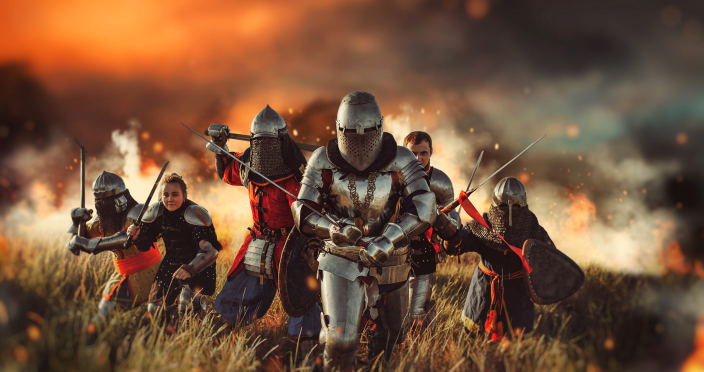
Have you ever wondered how multifaceted and diverse history is? It impresses us with a wide variety of interesting historical events. The mysteriousness and unpredictability make studying them even more exciting.
Nevertheless, writing a speech or an essay on history can be quite challenging for students. Since there are thousands of incidents to write about, choosing a good topic becomes incredibly difficult. Unprepared for an impressive diversity of major events in world history, you can get discouraged. Even delivering insightful information may start to seem stressful.
Fortunately, you have landed on our page! Our writing team has prepared a list of interesting events in history.
Are you looking for topics for a research project? Or maybe for a speech on National History Day? Or are you just searching for historical presentation tips? We can help you with everything! Just go to the corresponding section of the article and find useful information for you.
- Interesting Events
- National History Day
- Black History Month
- More Project Ideas
- Project Tips
- PowerPoint Ideas
- Speech Topics
- Presentation Tips
- History Questions
- 30 More Things
🔥 10 Interesting Historical Events
- The Chernobyl Disaster – 1986.
- Cold War – 1947-1991.
- The Black Plague – 1347-1348.
- The French Revolution – 1789-1799.
- DNA Discovery – 1869.
- Revolution in America – 1775-1783.
- The First Flight – 1903.
- The Vietnam War – 1955-1975.
- Salem Witch Trials – 1692-1693.
- Wall Street Market Crash – 1929.
🤗 Interesting History Project Ideas
An assignment of preparing a history project can provoke diverse emotions. One student can be extremely enthusiastic about the task. For another person, the history project can become a real trial.
The project preparation includes an impressive number of challenges. However, the main requirement for an outstanding history project is a fascinating topic.
Our team developed a list of interesting topics for a history project. So, do not waste your time on the topic search. Take a look at our ideas and chose the one you find the most insightful. If this information isn’t enough, you’re always welcome to check out a free essay database and get even more topics to discuss.
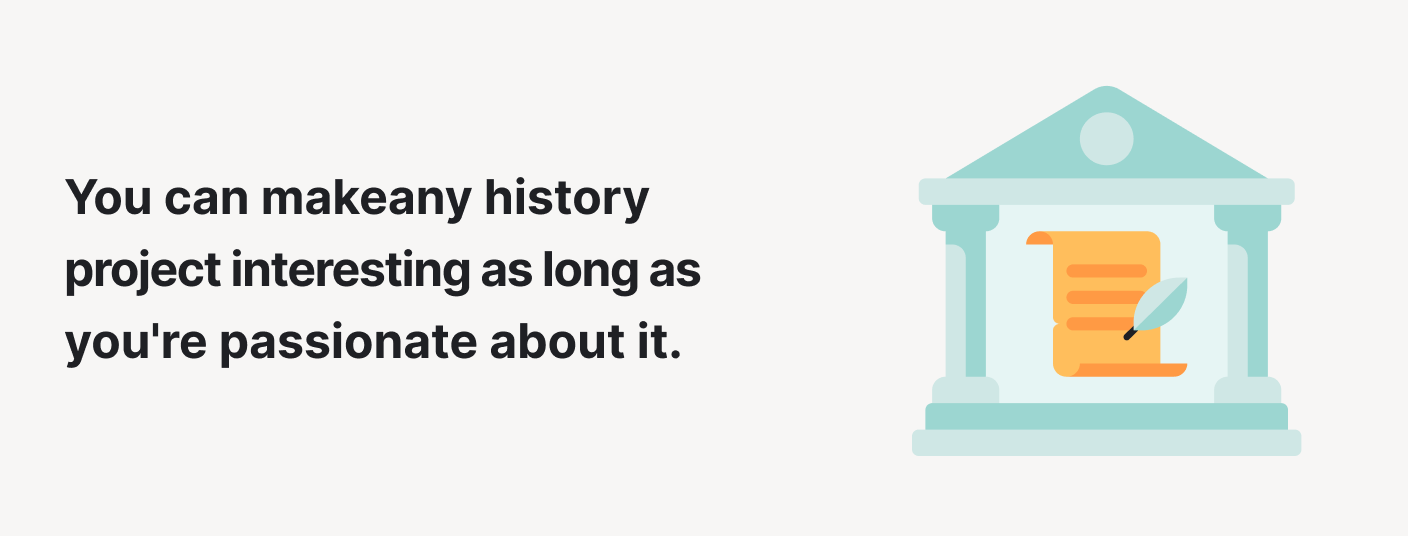
📅 Topics for National History Day
- American Revolutionary War.
- Great awakening’ history.
- History of Soviet Union.
- The Canadian Indians History: the White Paper 1969 .
- The development of women’s rights.
- Southeast Asia history: Chinese imperial expansion.
- Belize and Mexico history: people and civilizations.
- Liberty! The American Revolution.
- Christianity and Asceticism in the history of religion.
- Women’s status after the American Revolution.
- The consequences of interaction in cultures and civilizations.
- Abraham Lincoln’s thoughts in American history.
- The British mandates history: Jewish and Palestinian relations.
- Role of the civilian population in World War I.
- The Industrial Revolution and beyond: culture, work, and social change.

- World history: Enlightenment in society
- Concept of imperial powers in history.
- The major causes of the Cold War between the Soviet Union and the United States.
- History of Hitler’s Nazi propaganda.
- History of Russian Revolution in 1917.
- The Dark Ages as the Golden Ages of European history.
- Picasso and his paintings in modern world history.
- A social and political history of the United States.
- European colonization impacts on the native American population.
- Principles of liberalism and its connection to Enlightenment and conservatism.
- Japanese occupation in Philipines. Analyze the background of this event. How did World War II affect the occupation? Indicate the leaders of both parties. Analyze the consequences of Japanese occupation in Philipines for both countries.
- Pythagoras and his theorem in math.
- Mendeleev and his periodic table in chemistry.
- Einstein and his theories in physics.
- Martin Luther King as the most outstanding historical figure of USA history. Briefly introduce his biography. Why his speech I Have a Dream is so widely-discussed up till nowadays? Comment on Martin Luther King’s impact on the USA development.
- World War I and World War II. Compare and contrast the two world wars. What were the outcomes of both conflicts? In your opinion, during which war the military development was more effective?
- The mysterious origins of the USA flag. Did Americans have their flag during the American Revolution of 1775? Elaborate on that do the colors and the figures on the flag mean. When did the flag become an official symbol of America?
🖤 Topics for Black History Month
- Racism and segregation in American history.
- Reconsidering the history: Holocaust denial. The XXI century prospects.
- How useful is the term ‘fascism’ when applied generically to describe the far-right in interwar Europe?
- Rosa Parks: biography and influences.
- Blacks’ role in abolishing slavery.
- The Holocaust and Nazi Germany.
- Genocide in Rwanda: insiders and outsiders.
- Role African American women in the civil right movement.
- The propaganda of Adolf Hitler and Jim Jones .
- The rise of fascism.
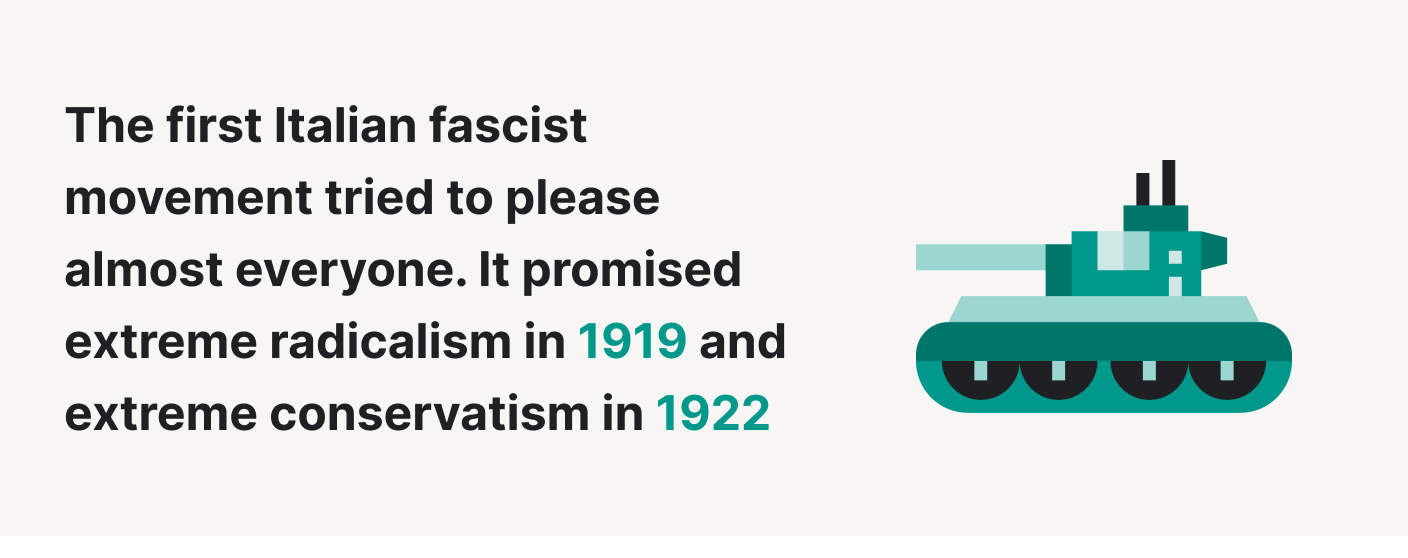
- Warfare and violence in ancient times .
- Suffering in the ancient Roman and Greek periods.
- Why did Europe undergo such a bloody and destructive period from 1914-1945?
- Holocaust history, its definition, and causes .
- German concentration camps and Japanese-American internment camps. Compare and contrast the conditions and distinctive features of German concentration camps and Japanese-American internment camps.
- Tortures in the ancient world. What were the forms of torture?Analyze the tortures in different parts of the world. Give your own opinion: are there any positive sides of tortures implementation?
- The Armenian genocide of 1915. Elaborate on the sequence of the events. What were the reasons for the genocide? Comment on the outcomes of this dark event.
- The dark side of World War II. Comment on the human losses during World War II. Elaborate on the horror of being in captivity.
- The horror of concentration camps . Analyze psychology as the tool of people’s extirpation. How did the torment was killing people? What was the reason for creating concentration camps?
- Terror during the Soviet Union’s existence. Are there any social studies that examine this issue? Comment on the ways terror was implemented. What were the reasons for terroristic actions? Analyze the opposition of terror. Elaborate on the outcomes.
📝 Other Historical Project Ideas
- Greek city-states – ancient civilizations.
- Islam and Christianity impacts on the medieval word.
- Comparisons of early Greek and early Roman cultures.
- Arts of China: tomb of Liu Sheng and Dou Wan Jade suits.
- The collapse of the greatest ancient civilizations: the Maya, the Aztec, and the Inca civilizations.
- Art history: female figures in Ancient Greek sculpture.
- Historical and theological context of Byzantine Iconoclasm.
- The history of Egypt and the Fertile Crescent.
- Concepts of the rise and fall of the Babylonian and Egyptian empires.
- Ancient civilizations: the Maya Empire.
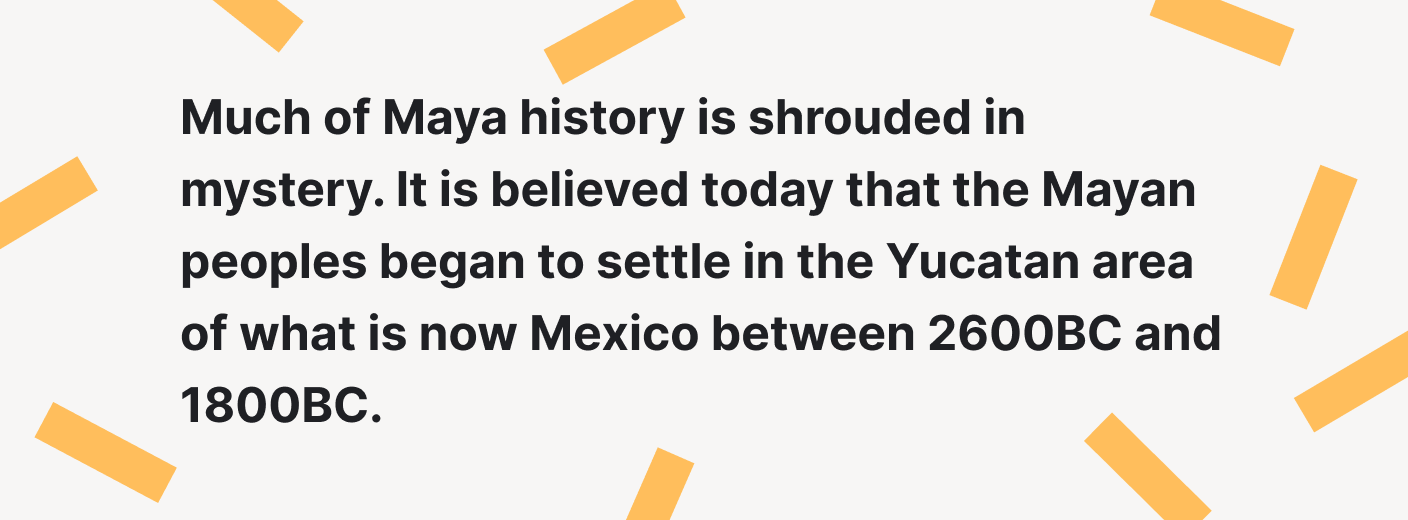
- Weapon development in early European civilizations.
- History of Celtic Christianity.
- Greek and Roman art on the campus.
- The first civilizations of North America.
- The Western Roman Empire: the significance of its collapse.
- The Agricultural Revolution: from the Neolithic Age to a New Era of agricultural growth.
- Rome in the Middle Ages and cultural transformation.
- The Stone Age period and its evolution.
- Civil Rights History .
- History of empires in the past and modern world.
- The comparison of Roman and Mongol empires.
- Military equipment and the technology of China in the Early Modern world.
- Ancient history: the Great Pyramid of Giza.
- Religion in Ancient Rome, the Byzantine Empire and the Holy Roman Empire.
- The Mongol Empire . Analyze the effects of the Mongol Empire’s expansion in China, Korea, and Japan.
- Ptolemy Family as one of the most powerful families in world history. Briefly describe the family history. How did this family impact ancient Egypt? While analyzing, focus your attention on the last queen of this line—Cleopatra VII. How did Cleopatra contribute to the prosperity of ancient Egypt?
- Cultural progress as one of the most interesting topics of history. Comment on the development of culture in various parts of the world. Were there any periods when it was regressing, not progressing? Compare the distinctive features of culture in Europe, Asia, and America.
- Adolf Hitler’s art. Briefly introduce Hitler’s biography. How did his lifespan affect his development as an artist? Comment on the topics reflected in Hitler’s artworks.
- The role of the church in the life of the middle ages in Europe. Analyze the connection between the church and the governmental sector in medieval times. What was the impact of the church on education and the economy in Europe? Comment on the problems of the medieval church.
- Waitangi Treaty history. Examine the intentions, expectations, and results of signing the Treaty of Waitangi.
🥇 History Project Tips
History project development is hardly ever uncomplicated. Sometimes, the process of preparation can result in a massive discouragement for students.
But wait, let us tell you something.
Our team of experts gathered the most useful tips in one place. Use them and make your project development process more pleasurable!
- Search for an appropriate topic. There are plenty of fascinating historical facts to talk about. The choice of the most relevant one will make your project indeed successful. Choose wisely. The project about the cultural regression of Europe on the European cultural day is a horrible idea. Unless you want to fail. Pick the topic that will be interesting for the audience and relevant to the event.
- Become a real expert in your field. To achieve the highest results, conduct the background and primary source research. You need to be ready to spend a lot of time investigating the topic on a deep level. It will help you to create a well-developed history project.
- Keep your materials in order. The development of historical projects requires a wide variety of materials. Prevent a mess! Sort out all the sources you are using and keep track of the additional materials. A wise arrangement will make the research process more smooth. This way, you will get the desired final product.
- Plan your time wisely. Even a dedicated history fan can develop a sophisticated history project in a short time. Therefore, don’t follow the popular student’s rule “I’m doing everything the night before the due date.” Divide your work into small chunks and create a project gradually. Also, review what you have done from time to time. It will help you to arrange your working plan to achieve a great result. Be flexible and create a worthy project.
- Create a unique final product. Your project has to be special and memorable. Provide some bright examples, introduce fascinating historical facts. Use additional aids (slides, posters, etc.) to impress your audience. Nobody is intrigued by common historical knowledge. Use a narrative writing style to deliver information effectively.
- Back-up everything! Do you think that the highest level of pain is then you break your leg? You are mistaken. Nothing can cause more pain then accidentally deleted documents or the missing piece of vital information. You might be asking yourself how to avoid this pain. In this case, here is the answer. Make a copy of your work and upload the document on a cloud. You will have easy access to it without risks of losing data.

😍 Interesting History Topics for Presentation
Are you stressing out about the upcoming history presentation? Are you lost in the topics to present? Are you not sure if you need any visual aid for your performance or not?
We have good news for you!
Our team collected the most interesting topics for a presentation. Below, you’ll find two sections. The first one offers topics for presentation with visual aids. The second one provides a wide variety of expressive informative speech topics. Picking one of them, you can deliver your information without any additional effects.
Scroll down and choose something useful for you
📽 Ideas for PowerPoint Presentations
- Rococo and neoclassical art.
- Historical art periods: a critical evaluation of Baroque and Rococo artistic styles.
- Collective invention during the Industrial Revolution.
- Renaissance versus Baroque.
- The ancient civilization of Maya.
- Ash Kyrie art: looking into the eyes of war.
- Western world history presentation.
- Imagination, values, and emotions in different historical art periods.
- The historical development of fine arts in Korea from 1950 to the present.
- Harlem Renaissance: historical and social background.
- Cultural exchanges in the Medieval Period.
- World War II innovations.
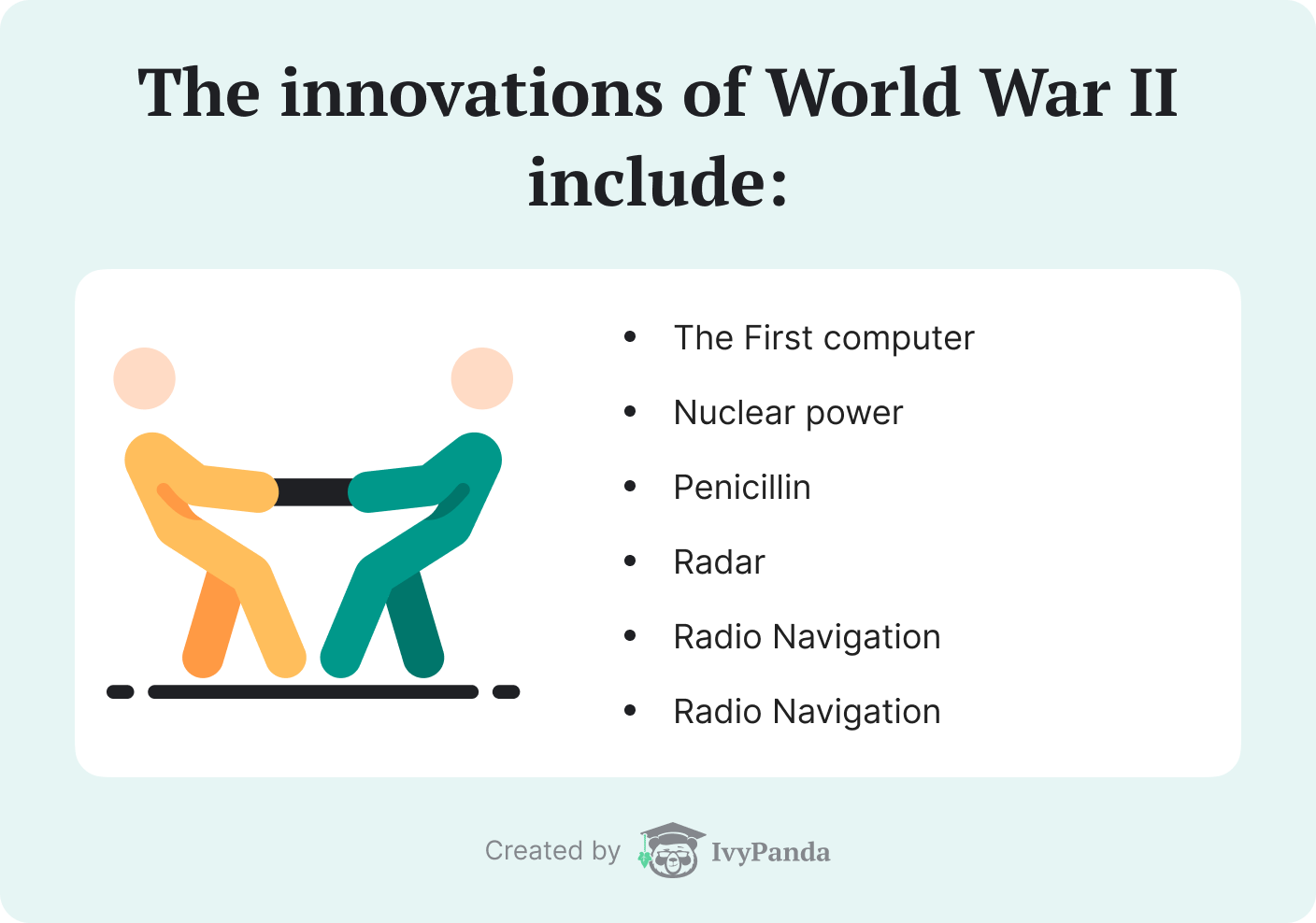
- A history of modern Europe: from the Renaissance to the present.
- Examining an archeological site: the pyramids of Egypt. There are plenty of interesting historical facts to choose from. Additionally, include some bright images if Egyptian pyramids in your PowerPoint presentation. Imagine how impressed your audience will be!
- Mayan calendar system. Show the main figures and tables. It will be beneficial for your audience’s understanding of the material.
- The four voyages by Christopher Columbus . Use maps as visual aids to illustrate the directions of Columbus’s voyages.
- From World War One to globalization. Conduct a historical investigation on the period between WWI and the globalization era. Use charts and graphs to smooth the digestion of information.
- The Kings of Ancient Egypt. Impress your audience with interesting facts about Egyptian kings. Appropriate images will help you to deliver information effectively.
- Scientific Revolution. Comment on the development of psychology, philosophy, physics, chemistry, and medicine. Illustrate the key figures of the scientific revolution in a PowerPoint presentation.
- World War II: consequences for the world. Even an impromptu speech will be successful if you use this topic. But if you add effective visual aids, your presentation will become even more memorable.
🎙 Historical Speech Topics
- Progressive Era in the United States.
- American Revolution and the crisis of the Constitution of the USA.
- Welcome to Ancient Egypt. When legends were born.
- Declaration of independence in American history.
- Concepts of feminism as one of the most controversial topics.
- Slavery and the Civil War relationship.
- The civil rights movement: oppressing the black population.
- The American War of Independence.
- The kings of ancient Egypt.
- Mongol conquest’ causes, battles, and results.
- Abraham Lincoln against slavery as one of the most interesting history informative speech topics.
- History’s definition and concept.
- The Great War’s history.
- Pearl Harbor history .
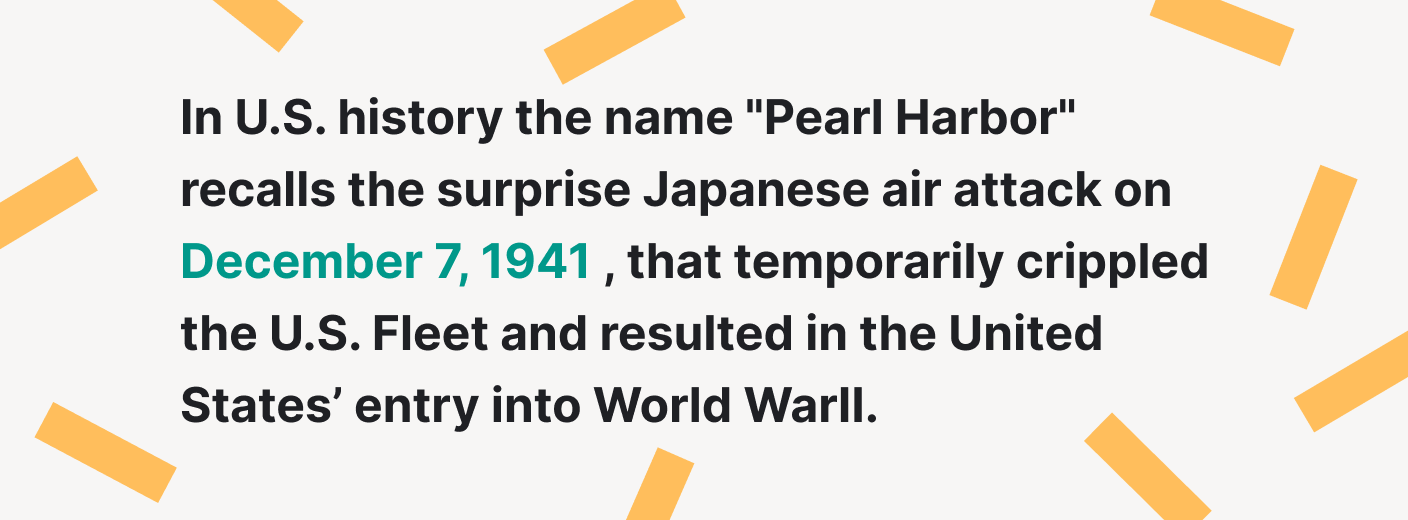
- French revolution and the Napoleonic era.
- Enlightenment in society – a topic for a successful public speaking performance.
- The significance of Martin Luther and the protestant reformation in the history of western civilization.
- Roman Lifestyles’ influence on civilization.
- History of Christianity contributions to the Western World.
- The Christian Crusades.
- African-Americans social reform.
- The war finance feature in promoting military success.
- European Christianity and its decline from the XVI century. Think of possible reasons for Christianity’s decline. Introduce them in your speech and elaborate.
- The Black Saturday Bushfires – a tragedy of 2009. As the event is relatively recent, try to search for information on social media. Social networking can assist in finding and processing the data.
- World War II as the most devastating war in world history. Introduce your own opinion regarding the losses of World War II. Provide a critical analysis of WWII’s impact on the modern world development.
- The heritage of the Soviet Union. Comment on of the Eastern, Central, and Western Europe unification. Compare and contrast social and cultural progress among countries of the Soviet Union.
- The history of the Berlin Wall. It’s one of the most insightful ideas for public speaking. Analyze the lifespan of the wall from its construction till the falling. What was the impact of the Berlin Wall on the country?
- The Sumerian
- The Akkadians
- The Amorites
- The Assyrians
- The Chaldeans
- Golden Pectoral—a famous cultural artifact. Where was Golden Pectoral found? Analyze the historical background. Where is it kept now?
- The European Union creation. Analyze the historical background of EU creation. What is the specific purpose of the EU? Briefly introduce the timeline of the process of EU creation. How does it operate now?

🗨 History Presentation Tips
Do you want to prepare an outstanding history presentation, but not sure where to start? Not a problem! Our team created a list of useful history presentation tips. Examine and implement them in your preparation process to ensure high-quality results.
- Create a strong introduction. The main purpose of the introduction put the listeners into the picture of the topic. That’s why, initially, you have to spark the interest of the audience. For that, include an attention-getter at the beginning of your presentation. Moreover, make sure your thesis statement is clear, and you previewed all the essential points. This will help your audience to follow up with your ideas.
- Develop an effective conclusion .To finish your speech successfully, spend time working on your conclusion. It has to summarize your arguments and provide a clear picture of the discussion. A small tip from us: An inspirational thought at the end will make your presentation more memorable.
- Work on the organization and development of the presentation. A clear and easy-to-follow structure is a formula for success. Thus, make sure you have strong transitions between the points. Pay attention to the accuracy of the information you present. Include proper citations of the sources and an annotated bibliography, if necessary. It will make your work informative and prevent a lot of misunderstandings.
- Make the delivery of your presentation effective. A natural posture, appropriate body language, well-established eye contact are underrated. They are critical for good delivery! The wise use of your voice’s capabilities will put you one level above the other performers. Practice a lot before delivering your speech to astonish the audience.
- Your visual aids have to be professional and clearly readable.
- Always refer to the visual aid while presenting the information (for instance, “Take a look at the graph”).
- Your PowerPoint slides will be useful only if you put the key ideas on it, but not the entire text.
- Before giving the speech, make sure all the technologies are working properly. Ensure that no pitfalls are waiting for you.

💯 Interesting Historical Questions
Our team’s aim is to help you succeed in history studying. Therefore, we decided that a list of basic historical questions will be useful for you. Look through it and ask yourself what is most appropriate for you.
- What is the connection between the Enlightenment and romantic age?
- What are the effects of the Industrial Revolution in relation to WW 1?
- What is the history of the imperialism era from 1848 to 1914?
- What are the parallels between the Revolutions of 1848 and Arab revolutions?
- What is the timeline of the Mexican war?
- Should the United States have annexed the Philippines?
- What is the role of airplanes during WW I (1914-1918)?
- What are the cultural relations between white and black people?
- What is the national and factual identity of Britons?
- What is the history of Athens?
- What is the impact of Julius Cesar on Rome’s development?
- What are the major aspects and historical events of the Cold War?
- What are the three Rs of the new deal in United States history?
- What was the role of the gardens in Great Depression?
- What was the Mesopotamian influence on the Oman Peninsula?
- What is the importance of US Foreign Policy between 1890-1991?
- What are the features of the Russian working-class movement?
- What is the role of America in World War 1?
- What are the causes of depression in the 1890s?

- Why the Scientific Revolution did not take place in China – or did it?
- What were the Great Britain Empire’s Alliances?
- What is the US Role in the Egypt-Israel war?
- Who are the legendary warriors of Old Japan?
- What are the similarities and differences between Malcolm X and Martin Luther King?
- What is the importance of the unification of GDR and FRG in the history of Germany?
- What effect did Industrialisation have on the levels of water pollution? Elaborate on the link between the lack of drinkable water and the Industrial Revolution.
- How did the development of psychology during the Scientific Revolution impact the world’s perception?
- What is the history of astronomy development and steroids studying during the Scientific Revolution?
- What are the most fun facts about the history of the world?
- What are some concepts of civilization development that are significant for the world’s history holistic picture?
👌 30 More Interesting Things in History to Write about
You have probably noticed already that there is plenty of interesting topics of history to write about. The essay writing process can become more pleasurable if you know what to analyze. When the students have a clear view of the time frame and territory they need to explore, they struggle less with a paper.
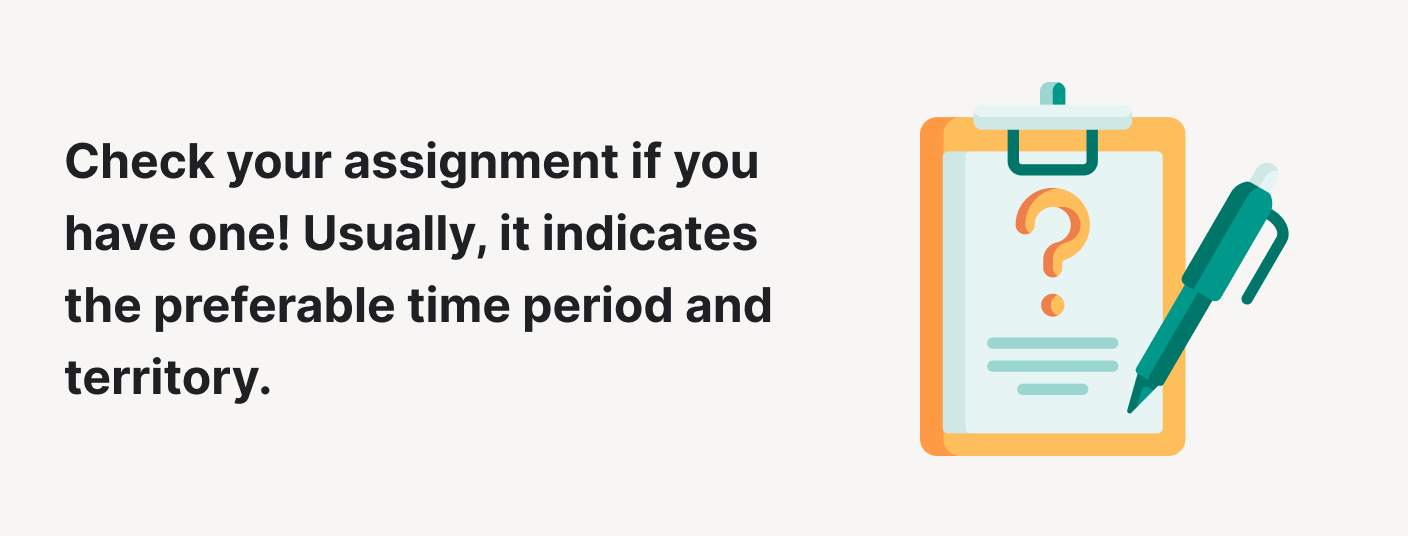
In case you’re asking yourself how to make the search for fascinating ideas easier, we have an answer. We prepared a pleasant bonus for you—a collection of interesting topics about history.
Five interesting things to write about in world history:
- World War I .
- World War II .
- Role of democracy in the world .
- Revolutions’ history and definition .
Five interesting things to write about in European history:
- The Roman Empire .
- The Thirty Years War .
- Protestant Reformation .
- Enlightenment and revolution .
- European Union .
Five interesting things to write about in US history:
- The Civil War .
- Progressive Era.
- Race relations and women’s status .
- Native American culture and American Indians .
- The Compromise of 1850 .
Five interesting things to write about in ancient history :
- The Stone Age period.
- Greek city-states.
- Ancient Egypt history .
- Mesopotamian civilization.
- Maya, Aztec, and Inca collapse .
Five interesting things to write about in modern history :
- Total War in modern world history .
- Industrial Revolution .
- Scientific Revolution .
- Renaissance period .
- Great Awakening’s history.
Five interesting biographies to write about:
- Alexander the Great .
- Karl Marx .
- Napoleon Bonaparte .
- Abraham Lincoln .
- Adolf Hitler .
Thank you for reading our article! We hope you found some useful tips and chose an interesting topic for your assignment. Do not forget to leave your comment and share our page with your friends!
🔗References
- The 25 Moments From American History That Matter Right Now: Time
- 5 (Recent) Historical Events You Should Discuss with Your Students: Josh Work, Edutopia
- Ideas, National History Day: Indiana Historical Society
- 3 Ways to Make a Good Presentation Great: Geoffrey James, Inc.com
- How to Convert Your Paper into a Presentation: Writing Studio, Thompson Writing Program, Duke University
- Oral Presentation and Powerpoint: The John A. Dutton e-Education Institute, the College of Earth and Mineral Sciences at The Pennsylvania State University
- Stages of a Historical Research Project: DoHistory
- Project Categories: National History Day, NHD
- 150+ Presentation Topic Ideas for Students [Plus Templates]: Orana Velarde, Visual Learning Center by Visme
- History: The Writing Center, University of North Carolina at Chapel Hill
- Writing a Thesis and Making an Argument: College of Liberal Arts and Sciences, The University of Iowa
- African American History Month: The Library of Congress
- Writing with Writers, Speech Writing, Tips from the Pros: Teacher’s Activity Guide, Scholastic
- 20 Public Speaking Tips for Students: Arlin Cuncic, Verywell Mind
- Share via Facebook
- Share via Twitter
- Share via LinkedIn
- Share via email
very brief and quick information

Introducing PolyPilot:
Our AI-Powered Mentorship Program
History Research for High School Students
Historians piece together narratives from fragmented evidence to reconstruct past events. From Herodotus, the "Father of History," to Doris Kearns Goodwin, combining history and leadership insights, historians preserve and interpret the past, shedding light on the complexities of human experience. Recently, history increasingly emphasizes diverse and inclusive narratives, exploring perspectives from marginalized groups, highlighting previously overlooked voices and stories. History is critical to understanding the present moment and making decisions that will lead us to a better future.

History Research Guide
History Articles
History Projects
History Mentors
History Scholars
Types of History Research and Careers
Historical research includes archival research, oral history, and quantitative analysis. Archival research involves examining primary source documents, while oral history captures personal narratives through live interviews. Quantitative history employs statistical methods to analyze historical data.
Beyond traditional roles in academia, careers for historical researchers include museum curators, who manage and interpret historical collections, and archivists, responsible for preserving and organizing historical documents. Historical consultants can work with businesses, government agencies, or film directors to provide historical context for projects. Some authors—Hilary Mantel, Umberto Eco, and Ken Follett, for example—write historical fiction, where they blend research with storytelling. Another career option is forensic history, in which historians collaborate with law enforcement to investigate historical mysteries or cultural property theft. Digital historians leverage technology to create interactive exhibits or contribute to digital humanities projects. Genealogists use historical records to trace family histories.
Such diverse career options allow individuals to apply historical research skills in innovative and impactful ways.
How to Get into History
Start by choosing a specific era or topic that captivates you. Dive into reputable books, documentaries, and online resources to build a foundational understanding. Seek guidance from teachers or local historians, and consider participating in history-related clubs or activities. Be sure to question your sources, especially digital sources. If possible, explore physical primary sources in local archives or museums. Attend history lectures or events to broaden your perspective. Here are some more resources.
1. Take a Class in High School
If you're interested in becoming a historian, it's important to build a well-rounded foundation in various subjects that will enhance your analytical, research, and communication skills. Here are some standard and less obvious high school classes that can contribute to your preparation for a career in history:
World History - Provides a broad understanding of major events and developments globally.
U.S. History - Focuses on the history of the United States, a fundamental subject for many historians.
Advanced Placement (AP) English - Develops critical reading and writing skills, crucial for historical analysis and research papers. Advanced Composition or research writing also enhances your ability to articulate historical findings clearly.
Geography - Understanding the geographical context of historical events can provide valuable insights.
Economics/Government - Helps in understanding the socio-political and economic aspects of historical events.
Latin or Classical Languages - Useful for understanding ancient texts and civilizations.
Modern Languages - Depending on your historical focus, knowledge of languages like French, Spanish, German, or others may be beneficial.
Statistics - Essential for analyzing and interpreting historical data.
Archaeology or Anthropology - Provides insight into human societies and cultures through the study of artifacts and physical remains.
Computer Science or Digital Media - Familiarity with digital tools and research methods is increasingly important in modern historical research.
Art History or Music History - Understanding the cultural and historical context of art and music can enrich your understanding of a specific time period.
Philosophy - Develops critical thinking skills and an understanding of different worldviews that can be valuable in historical analysis.
Public Speaking - Enhances your ability to present historical findings effectively, a crucial skill for historians.
Psychology or Sociology - Provides insights into human behavior, which can be valuable when analyzing historical events and figures.
Internships or Independent Study - Seek opportunities for internships or independent study projects with local historical societies, museums, or archives to gain practical experience.
Remember that the specific classes available may vary by school, so it's essential to take advantage of any unique opportunities or specialized courses that align with your historical interests. Additionally, consider participating in extracurricular activities like history clubs, academic competitions, or research projects to further develop your passion for history.
2. Read a Book
Here are some foundational books we chose based on their historical significance, influence on the field of history, and their enduring relevance. They often mark key moments in the development of historical thought or provide key insights into significant periods and cultures. We also include some newer works that challenge traditional perspectives and contribute to the evolution of historical discourse. These books provide a mix of foundational knowledge and more contemporary perspectives, encouraging a well-rounded understanding of historical scholarship. Keep in mind that interpretations in history can vary, and engaging with a variety of perspectives is key to developing a nuanced understanding of the past.
Foundational Readings:
The Histories by Herodotus (c. 440 BCE) - Often considered one of the earliest works of history, this ancient Greek text covers the Greco-Persian Wars and offers insights into various cultures.
The Peloponnesian War by Thucydides (c. 431 BCE) - Thucydides provides a detailed account of the conflict between Athens and Sparta, emphasizing the importance of political and social factors.
The Prince by Niccolò Machiavelli (1532) - Though more political philosophy than history, this work explores the nature of power and leadership, influencing historical thought.
The Rise and Fall of the Roman Empire by Edward Gibbon (1776) - A comprehensive analysis of the Roman Empire's history, widely regarded as a foundational work in the field of history.
The Communist Manifesto by Karl Marx and Friedrich Engels (1848) - While primarily a political and economic treatise, understanding Marx's ideas is crucial for interpreting many aspects of modern history.
The History of the Decline and Fall of the Ottoman Empire by Mustafa Ali (1731-1754) - This Ottoman historian's work offers insights into the decline of the Ottoman Empire from an insider's perspective.
Newer Thought-Provoking Works:
Guns, Germs, and Steel by Jared Diamond (1997) - Explores the impact of geography and environment on the course of human history, challenging traditional Eurocentric perspectives.
A People's History of the United States by Howard Zinn (1980) - Offers an alternative narrative of U.S. history from the perspective of marginalized groups, challenging mainstream historical interpretations.
Sapiens: A Brief History of Humankind by Yuval Noah Harari (2014) - A provocative exploration of the history of Homo sapiens, covering the cognitive, agricultural, and scientific revolutions.
The Silk Roads: A New History of the World by Peter Frankopan (2015) - Challenges Eurocentrism by examining the historical significance of the Silk Roads and the interconnectedness of civilizations.
The Swerve: How the World Became Modern by Stephen Greenblatt (2011) - Explores the impact of the rediscovery of Lucretius' poem on the Renaissance and the shaping of modern thought.
1491: New Revelations of the Americas Before Columbus by Charles C. Mann (2005) - Challenges traditional views of pre-Columbian America, presenting new perspectives on the advanced civilizations that existed before European contact.
The Better Angels of Our Nature: Why Violence Has Declined by Steven Pinker (2011) - Argues that violence has decreased over human history, challenging perceptions of historical periods as more violent.
3. Extracurricular Study
Here are some activities you can do outside of classroom time to practice your skills in researching, presenting, and sharing historical knowledge.
History Club - Join or establish a history club at your school. This provides a platform to discuss historical topics, organize events, and interact with like-minded peers.
Model United Nations (MUN) - Participate in MUN conferences to improve research, negotiation, and diplomacy skills. MUN often involves addressing historical and contemporary global issues.
Debate Team and/or History Bowl - Participate in academic competitions such as Debate Team, History Bowl, History Bee, or Quiz Bowl. These events challenge your historical knowledge and critical thinking abilities. They can also build your public speaking and argumentation skills.
Internships at Museums or Archives - Seek internships or volunteer opportunities at local museums, historical societies, or archives. This hands-on experience provides insight into archival work, curation, and preservation.
Writing for School Publications - Contribute articles on historical topics to your school newspaper or literary magazine to develop your writing skills and share your passion with a wider audience.
Community Service Projects - Engage in historical community service projects, such as documenting local history, conducting oral history interviews, or assisting with historical preservation efforts.
Language Clubs - Join language clubs related to historical languages (e.g., Latin, Ancient Greek, or others) to enhance your linguistic skills and deepen your understanding of historical texts.
History Research Opportunities
Once you have some ideas about what time period you’d like to research, you could pursue your vision at a pre-college program, a local community college, a competition, an internship, or a virtual program. If you want to be free to conduct your own project, we still advise that you give yourself a deadline and have a mentor who you can consult.
Find research programs close to home
We’ll go into summer history programs in more depth in the next section, but if you want to find all types of established research opportunities close to home, our High School Student Research Opportunities Database is an excellent resource. Click on your state, then search based on your location, institution, event type (in-person or virtual), and tuition (paid or free).
Join Online History Communities
Participate in online history forums, discussions, and social media groups to connect with a broader community of historians and history enthusiasts. JSTOR Daily has a community section where you can find articles, discussions, and updates related to historical and political topics. Goodreads also has various groups dedicated to history and politics. Joining these groups allows you to participate in book discussions, recommendations, and more. You can also visit subreddits like r/history, r/AskHistorians, r/Ask_Politics, and others for a wide range of historical and political discussions. Always check the rules and guidelines for each subreddit.
Work with a professor
If you have a clear idea of your passions, you can reach out to professors in your field to see if they are open to collaborating with you. Refer to our Guide to Cold-Emailing Professors (written by Polygence literature research mentor Daniel Hazard , a Ph.D. candidate at Princeton University).
Engage in your own research project
Students with initiative and focus can opt to tackle research independently. Carly Taylor , a Stanford University senior who has completed several research projects this way, outlined a guide about how to write a self-guided research paper . By reading it, you’ll get a better understanding of what to expect when taking on this type of project.
Summer Programs in History
Here are some top picks for summer history research programs. We chose them based on a combination of their affordability, name recognition, social opportunities, and academic rigor.
Stanford Summer Humanities Institute
Hosting Institution: Stanford University
Cost: $8,250 USD for 2023
Format: In person (Stanford, CA)
Application deadline: February
Here’s an opportunity to study at Stanford University. Coursework includes Ancient Rome, The Greeks, Revolutions, The American Enlightenment among others. Students explore the humanities at a college level, investigate philosophical questions, and pursue exciting research topics that are chosen by each participant. Check the site for the most current application information.
1. Pre-College Program in American History
Hosting Institution: Wiliam & Mary and National Institute of American History & Democracy (NIAHD)
Cost: $2,500 - $5,000 USD
Format: Online and in-person (Williamsburg, VA)
Application deadline: Late May
These three-week sessions are a rigorous prep for college. Students participate in class discussions with a maximum of 12 students; are expected to read 30-60 pages of college-level articles and primary source documents each night; and will submit written work each week. Course work includes “Artifacts of American History,” “The Road to the American Revolution,” and “The Road to the United States Civil War.” Check the site for the most current application information.
2. Ancient Civilizations, History, & Myth
Hosting Institution: Smithsonian Institute
Cost: $8,290 USD + airfare
Format: In person (Europe - various cities)
Application deadline: Mid-March 15
Traveling to Greece and Italy, students dive into the history and traditions of these countries on this high school summer program in the Mediterranean. Participants explore the legacy of the Greek and Roman empires as they travel through the countries where the history was made. Athens, Crete, Santorini, Naples, and Rome among others. Students learn, see, feel how history and the present coexist in Rome, where Renaissance architecture and Roman ruins are integrated in a dynamic modern city. Check the site for the most current application information.
For more picks, check out our Top 10 History Research Summer Programs .
If you’re searching for a virtual history research opportunity, consider doing a project through Polygence with one of our History mentors .
History Internships for High School Students
A few of the summer programs we found were either paid or unpaid internships. You can also check for internship opportunities with your local community college, university, museum, or historical society. Other good places to check out are rare book libraries, government offices, national park services, or community restoration projects.
1. Student Historian Internship Program
Hosting institution: New-York Historical
Compensation: Unpaid volunteer
Format: In-person (New York, NY)
Application deadline: Mid-Feb
High school students participating in the Student Historian internship utilize New-York Historical resources to conduct research and create digital projects. They learn about careers in museums, libraries, and history fields, collaborate with peers to improve public speaking and leadership skills, and engage in hands-on work to enhance their knowledge of American history. The internship's focus is on Our Composite Nation: Frederick Douglass’ America. Although this internship is unfortunately unpaid, there is an option to receive community service hours or school credit. Check the site for the most current application information.
2. Met High School Internships
Hosting institution: The Metropolitan Museum of Art
Compensation: ≈ $1125
Application deadline: Early March
Rising juniors and seniors from New York, New Jersey, and Connecticut can connect with professionals in the fields of art, museum, and creativity at one of the world’s finest museums—The Metropolitan Museum of Art—with this awesome paid internship. This internship isn't just for students interested in art - This opportunity enables you to connect with Museum professionals individually or in small groups, in various fields such as editorial, marketing, social media, education, scientific research, conservation, and others. Check the site for the most current application information.
3. Library of Congress
Hosting institution: Office of the Librarian
Format: Online and in-person (Washington, DC)
Application deadline: Late April
If you're interested in public programming, historical research and writing, exhibition development, and outreach, this four-week internship offers a unique experience. Your research will help develop content to support the new participatory learning space for youth and families in the Library of Congress. Check the site for the most current application information.
Polygence Scholars Are Also Passionate About
History project ideas and how to brainstorm your own.
A history project gives you the chance to delve into the past, exploring events, individuals, and societal changes that fascinate you. While you can always go the route of the traditional research paper, you can also consider a vast array of creative alternatives. Consider crafting a compelling documentary or putting on a play, where visuals and narration bring history to life. Or try serial podcasting, using the power of audio and the flexibility of the short form. Embracing diverse formats not only showcases versatility but also enriches the learning experience, making history accessible and engaging.
1. Nature's Past: Let's Do Environmental History!
When you think of “history” you might think of politics and battles but it is so much more than that! Instead of writing a paper on a specific event, try focusing on the environment and the material world. How much better was the environment when everyone rode horses instead of driving cars? What environmental problems did society face in the past and how do those compare or differ from today?
Idea by history research mentor Gustave
2. History Podcast
Choose a recent event that revolves around race and capitalism within the U.S. Pull together articles, news stories, and social media posts to view the different reactions to this event that occurred. Compare this current event to a similar past event and create a podcast or video of your findings.
Idea by history research mentor Samantha
3. Family History
Gain a better understanding of your family’s past and the historical events your ancestors may have lived through. Start by interviewing your relatives and listening to their stories in order to collect as much information as possible. Ask questions about your ancestors, places where they’ve lived, collect documents, record oral histories, etc. By using the information given, you can do a deeper dive into your family's past. Write your own family’s history or create a podcast!
Idea by history research mentor Luther
Check out even more project ideas on the 10 History Passion Project Ideas for High School Students post.
You can also brainstorm your own project ideas . If you want support, the Pathfinders program gives you the chance to meet with three different mentors who specialize in your field of interest. You can discuss your project ideas with them, and they can help you grow your idea, discover new research techniques, and point the way to great resources and alternative options.
History Projects from Polygence Scholars
To get you inspired with the variety of forms your history research project could take, here are a few projects by some of our Polygence Scholars.
1. A Board Game All About the American Revolution
Michael's game focuses on American history, specifically the colonial era and the American revolution. Players roll dice to determine how far they will move each round, and the goal is to reach the end while witnessing as many historical events as possible. There are also different tiles that represent different events, each spot meant to educate the player on that aspect of history.
2. Learning from the Master: A Conceptual Drawing
Israel's project focused on Leonardo da Vinci as a scientist, inventor, and artist. He studied da Vinci's legacy and interrogated the perspectives da Vinci represents today. Like da Vinci's, he kept a notebook/sketchbook to think through the ideas that were presented in his research and his project culminated in a finished drawing.
3. Transracial East Asian Adoptees: Navigating Identity as Cultural Frankensteins
Julia ’s curiosity about her own experience led her to write this research project on transracial adoptions and its impacts on identity formation. She examined the theme of “cultural Frankensteins” in the two films Abandoned Adopted Here and Approved for Adoption , which center around the lived experiences of East Asian transracial adoptees. She also explored the potential struggles many transracial adoptees may face in everyday life. She presented her paper at the Spring 2023 Symposium.
Writing a History Research Paper
The secret to writing a great history research paper is to choose a time period and subject matter that truly excites you. You will be spending a lot of time researching it so the more curious you are about the subject, the easier it is to motivate yourself to work on it. For pro tips and in-depth instructions, be sure to read our How to Write a Research Paper as a High School Student post. For now, let’s go over several key steps and components of writing a strong research paper:
Select a Relevant and Intriguing Topic: Choose a topic that is meaningful to you. Maybe it has something to do with your own family’s history or someone you admire.Make sure your topic is specific and come up with some clear research questions.
Conduct Thorough Research - Gather information from reputable sources, including academic journals, books, and online databases. Cite sources properly.
Formulate a Research Question - Define a clear and concise research question that your paper will address. This question guides your investigation.
Develop a Strong Thesis - Craft a well-defined thesis statement that conveys the main argument or purpose of your paper. This may change as you unearth new information.
Create an Outline - Organize your paper's structure with an introduction, topic ideas, transitions, and a conclusion. The more preliminary work you can do before you get started on the actual writing of your paper, the easier it will be later.
Writing Process - Be sure to set some time aside to work on it every day. Better to just do a little over a longer period of time than to try to cram everything in at the last minute. Create a schedule for yourself working backwards from your deadline. Be sure to add extra time for editing and reviewing with a mentor or teacher.
Citations and References - Ensure proper citation of sources using a recognized style guide (e.g., APA, MLA).
Proofread and Edit - Carefully review your paper for grammar, spelling, and clarity issues.
An excellent history research paper distinguishes itself through thorough research using credible sources, a well-defined thesis, clear and concise writing, and meaningful analysis. It offers a fresh perspective, contributes to the existing body of knowledge, and provides fresh insights. Seek feedback from teachers or mentors to refine your work and elevate it to a higher standard.
Finally, if you have some ideas and want to conduct history research with the guidance of a mentor, apply to be a part of our flagship mentorship program .
Showcasing History Projects
If you do decide to write a research paper for publication, you might want to take a look at potential journals before you even start your research. Browsing through previous articles will give you a sense of the length, tone, format, and other specifications you would need to fulfill in order to publish your findings . Here are some publications you could look into.
1. Concord Review
The Concord Review is a quarterly journal that publishes exceptional essays written by high school students on historical topics. That said, if your business research has a historical bent to it, it might be eligible for submission. The journal has been around since 1987 and has a great reputation, with many student winners going to great universities. If your paper is published, your essays will also be sent to subscribers and teachers all around the world, which is an incredible achievement.
Papers submitted tend to be around 8,000 words, so there is definitely a lot of writing involved, and the Concord Review themselves say that they are very selective, publishing only about 5% of the essays they receive. We’ve posted our complete guide on publishing in the Concord Review here.
Cost: $70 to Submit and $200 Publication Cost (if accepted)
Deadline: Fixed Deadlines in Feb 1 (Summer Issue), May 1 (Fall), August 1 (Winter), and November 1 (Spring)
Type of research: History / Social Sciences
2. John Locke Essay Competition
This contest gives you the chance to refine your skills in argumentation (e.g,, independent insights, depth of knowledge, clear reasoning, critical analysis, and rhetoric) and have your work assessed by experts. You can choose from 1 of 3 challenging questions posed in 7 different categories (Philosophy, Politics, Economics, History, Psychology, Theology, and Law) in the form of a 2,000-word (max) essay. There’s also a junior category for students who are under age 15 (i.e., 14 or younger). Your entry will be judged by a panel of Oxford and Princeton faculty. Winning essays are posted on the John Locke Institute website , and you can check out the fascinating archive. Check out our post Everything You Should Know about the John Locke Institute (JLI) Essay Competition for more info.
Hosting institution: John Locke Institute
Awards: Awards: $2,000 scholarship (for 1st in each of the 8 categories)
Application deadline: Late May
Submission deadline: Late June
3. The Schola
The Schola is a peer-reviewed quarterly journal that showcases essays on various humanities and social sciences topics authored by high school students worldwide. They feature a diverse range of subjects such as philosophy, history, art history, English, economics, public policy, and sociology.
Editors at Schola are academics who teach and do research in the humanities and social sciences
Cost: $180 submission fee
Deadline: Rolling
Subject area: Humanities
Type of research: Essay submission
4. Research Archive of Rising Scholars (RARS)
Research Archive of Rising Scholars is Polygence’s own preprint server! We were inspired by arXiv so we created a repository for articles and other creative submissions in STEM and the Humanities.
We launched RARS in 2022 and we’re excited to offer a space for budding scholars as they look to publish their work in journals. To get a sense of business research papers we have published in the past, check out the results of a “history” search .
Cost : Free
Subject area: STEM and Humanities
Type of research: Original research, review articles
Check out the Publishing Your Research as a High Schooler: 20 Journals and Conferences to Consider post for more options.
- Our Mission
A Crafting Project to Boost Engagement in History
Having middle or high school students do historical research and show their learning on a 3D representation can spark deep interest.

As a high school history teacher, I often had difficulty getting my students immersed in and excited about our topics of study, but over time I developed a hands-on activity in which students created a learning product that they could keep and display. This was a simple yet powerful learning tool that my students loved working on.
Lecturing was not working well for me or my students—they needed to be more engaged in their learning. One day, as I was looking at the state social studies standards for World War II and wondering what I could do differently. I noticed that there were 12 topics or ideas listed. My first thought was to have my students make a hanging mobile using a hanger, yarn, and note cards, but when I had tried this before students just threw them in the trash as they left the room—they liked doing something different but didn’t care for mobiles. Then I thought of trying a 3D geometric display to capture each of the 12 topics in the standards.
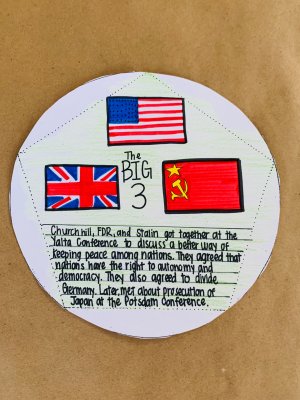
A dodecahedron has 12 sides, so I had my students cut out and build dodecahedrons. If you’re doing a short unit or if 12 topics aren’t needed, you can do this with pyramids or cubes using triangles or squares. For this exercise, each student will need 12 of these template sheets . Plain copy paper will work, but cardstock will make the dodecahedron sturdier and longer lasting. Additionally, students will need crayons and or markers, scissors, and tape or a stapler.
Beginning the Dodecahedron Project
Since I started this strategy decades ago, state standards have slightly changed and indicators are more detailed, so now, instead of assigning the 12 topics, I allow my students to choose 12 topics from an extensive list we develop as a class. When I taught high school, after I introduced a unit such as World War II, I would have students brainstorm related topics, ideas, and events. With my guidance, they might list topics such as the bombing of Pearl Harbor, the Axis and Allied powers, totalitarianism, isolationism, Japanese internment, battles, the Holocaust, victory gardens, etc., and I would write them on the board.
At the end of the brainstorming session, we might have up to 20 topics, ideas, or events listed. We would discuss them, and I would add any topics of importance in the state standards that we hadn’t listed. Each student was then allowed to pick 12 topics they wanted to learn more about.
Depending on the amount of time you have for a unit, students can do the work in class or at home. My history units generally took one to two weeks, and for the most part my students would work on this project in class. Once they had their topics, I would give them each 12 template sheets, one for each topic.
With template sheets in hand, students would start researching their topics. To prepare for the research, I would ask the media specialist to pull World War II content books, materials, and encyclopedias and put them on a cart for a rolling library; you can also have students do research online, to help them learn how to vet materials.
To help students stay on track during independent research, I had them complete one information sheet for each topic . I didn’t give a grade for completing this page, but I could walk around the room and quickly see what students were finding and learning. During this research time, students could sit on the floor, use a standing desk, or work at the classroom tables. Small freedoms like this, combined with the chance to make choices about their topics of study, helped make this experience enjoyable.
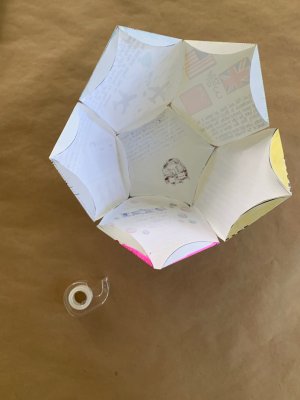
Once students had finished researching a topic and filling in the research information, they would get a template sheet and write a summary and illustrate the topic with a drawing. Because the writing space was limited, they weren’t overwhelmed as they sometimes were when writing a long paper. Their summaries had to be concise but still include details and examples to demonstrate their comprehension of the topic. I emphasized writing with purpose and clarity.
After my students had completed all 12 sheets, it was time to assemble their dodecahedrons. First they cut out the circle of each template and then folded along the dotted lines and used tape or a stapler to attach each side. When each dodecahedron was assembled, it looked a bit like a soccer ball.
Presenting the Dodecahedrons
Next, I had students present their dodecahedrons to the class. I gave each student four minutes to explain and show four or five sides of their dodecahedron. After each presentation, the class had two minutes to ask questions for clarity. My grading was based on quality of summaries, artistic expression of topic through illustration, efficient use of research time, and clear communication during the presentation.
Following the presentations, I hung the dodecahedrons from the classroom ceiling for all to enjoy for a few weeks. After that, students took them home—and most of them told me that they hung them in their bedrooms.
If your students needed extra motivation or if you have classes that are highly competitive, you could make the project into a competition by asking faculty members to judge the dodecahedrons and presentations, and award a first, second, and third place for each class.
News Center
- Browse Archive
- Browse By Administrative Unit
- Browse By College/School
- Accomplishments
- Class Notes
- Experts Directory
- UNLV In The News
- UNLV Today Announcements
- UNLV Magazine
- Share a Story Idea
- Submit Class Note
- Submit a UNLV Today Accomplishment or Announcement
- Become a Speaker/Expert
- Directories
Quick Links
- Directories Home
- Colleges, Schools, and Departments
- Administrative Units
- Research Centers and Institutes
- Resources and Services
- Employee Directory
- Contact UNLV
- Social Media Directory
- UNLV Mobile Apps

It’s 'Game On!' for the UNLV Oral History Research Center
The center's newest project will chronicle the extensive and rich history of sports in Las Vegas.
A billboard advertising the Vegas Golden Knights Hockey team looms over the Allegiant Stadium construction site on May 29, 2019. (Aaron Mayes, Special Collections & Archives)
- Business and Community
- April 10, 2024
- By Sean Kennedy
- Sean Kennedy (UNLV Libraries): [email protected]
In just the past year, Las Vegas has seen the Las Vegas Aces claim a second consecutive WNBA title, the Vegas Golden Knights win the Stanley Cup, a Super Bowl at Allegiant Stadium, and the Formula 1 Las Vegas Grand Prix race down the Strip. Professional athletics are having a moment in the Entertainment Capital of the World, and UNLV’s Oral History Research Center (OHRC) wants to capture the story of how we got here.
Under the direction of Claytee White and project manager Stefani Evans, the OHRC is launching a new two-year project, Game On! The Oral History of Las Vegas Sports.
“The national spotlight is shining on Las Vegas, but it’s important to remember that sports didn’t start here with the construction of Allegiant Stadium,” said White, who is the founding director of the OHRC, which is part of Special Collections & Archives in the University Libraries. “We have a long history of athletes and sports teams – professional, college, high school, amateur and everything in between. This is the perfect time to document these stories for future generations.”
Game On! will collect oral histories from the people who shaped sports in Las Vegas, from the earliest teams and dreamers to the champion teams and the proliferation of professional sports teams in the city.
“Our goal is to collect around 140 oral histories over the course of the project,” said Sarah Quigley, director of UNLV Special Collections & Archives. “These first-hand accounts will enhance our extensive oral history collection, which includes nearly 5,000 interviews with individuals who have called Las Vegas and Southern Nevada home.”
The center plans to conduct interviews covering hockey, football, baseball, softball, mixed martial arts, motorsports, tennis, basketball, rugby, soccer, lacrosse, swimming, poker, boxing, rodeo, golf, running, rodeo, esports, and more.
“The Gorgeous Ladies of Wrestling, the American Gladiators, American Ninja Warrior, and so many more sports entertainment franchises have competed in Las Vegas,” said Evans. “Collectively they are part of our city’s history and this project will ensure these stories that show off the different parts of our culture are preserved in Special Collections & Archives.”
Game On! oral histories will be transcribed, digitized and made available to researchers and interested parties around the world through the UNLV Special Collections & Archives Portal. Any additional donated documents, manuscript collections, or photographs will also be made available to the public through Special Collections and Archives in UNLV's Lied Library.
The project is launching with an initial $30,000 gift from a private donor. The Center is seeking additional funding to support the project over the next two years. Gifts to the project will be used to hire additional staff to support logistics and editing, transcribe and print copies of the oral histories, and process and make the interviews available and findable online.
Those interested in making a tax deductible donation to support the Game On! project are asked to visit the UNLV Foundation website and direct their gift to the Oral History Research Center. Questions regarding the process of making donations can be directed to Michael Beiler, director of development for UNLV Libraries, at [email protected] or 702-895-2239.
White and Evans have begun scheduling interviews, but are seeking suggestions on individuals to interview. Do you know someone whose story should be included in the project? Nominate them using our online form or contact the Oral History Research Center at 702-895-2222.
If you’re interested in learning more about the project, or follow updates on the work, visit the Game On! webpage.

Campus Units:
Related experts:, you might also like.

UNLV Health is Academic Health
Dedicated to helping underserved communities in Nevada, UNLV Health is leading transformative health care while educating and training Nevada’s future health care practitioners.

New UNLV Paid Internship Program Connects Students with Local Startups
With funding from governor's office, StepUp & StartUp program has matched 50 UNLV students with local tech companies.
UNLV, UNR Extension Collaborate to Tackle Community Challenges in Clark County
Partnership invests more than $1.7 million in strategic partnership to address pressing local issues.

IMAGES
VIDEO
COMMENTS
Dive into the world of historical scholarship with our comprehensive guide to the best history research paper topics.Primarily designed for students tasked with writing history research papers, this guide presents a curated list of 100 exceptional topics, divided into 10 distinct categories, each with a unique historical focus.
10 Good History Research Topics that are Easy to Adapt. Conditions for Slaves During the Building of the Great Pyramid. Three Events from the First Greek Olympiad. How, Where, and When Rome was Founded. The Battle of Marathon: How the Greeks Defeated Persia.
Renaissance Topics. Great Depression Research Topics. World War I. World War II. Cold War. United States History. American Revolution Battles & Key Events. Industrial Revolution Paper Topics. Most college and university students across the United States find history assignments way too challenging or even uninteresting.
The 10 Most Important Moments and Events in History: Rebecca Graf for Owlcation. Psychology Research Paper Topics, 50+ Great Ideas: Kendra Cherry for Verywell Mind. Historical Topics: In-Depth Articles from HistoryExtra. History Topics: National Women's History Museum.
Culture: traditions, clothing, appearance, festivals, food, language, sports, education, architecture. You can write any one of those preceding aspects, or a combination of two or three aspects in relation to each historical event. We've compiled and categorized topics to guide you in your historical research paper writing process.
History Research Paper Topics for University Students. The Development of Papermaking in Ancient China and its Spread to the West. Analyzing the Ecological Impact of British Colonialism in India. Re-Analyzing the Fall of the Roman Empire Using Digital Tools. Environmental Consequences of the Industrial Revolution.
Students should structure their work with a clear introduction, body, and conclusion to make it easy for others to follow. 4. Visuals and Creativity. Visual elements and creativity enhance a history project. Using images, charts, and creative presentation methods can make the project more engaging and informative. 5.
Top 10 History Research Paper Topics. 1. Religion in Ancient Greece. Any list of history topics about ancient Greek religion is bound to contain some gems. By digging into cultural patterns, you can explore how religion affected the social, political, religious, military, and economic development of Greece. You could even venture outside the ...
A study of early music history and the evolution of musical instruments. History papers carry a lot of weight, allowing college students to learn the culture, traditions, and past of other nations. With our vast range of ideas, you should have a smooth time selecting an ideal topic. Remember, you can always find research paper writing help online.
Develop research and critical thinking skills. Gain perspective on how past events shape the present. Make history come alive through creativity and engagement. Learn to evaluate and analyze historical sources. Practice presentation and communication abilities. Promote an appreciation for the study of history.
The work difficulty on a historical essay or research project may lie in the lack of exciting topics in history and the feeling that all ones have already been written. The work should bring enjoyment, so we provide cool historical events to write about. ... Top 10 Global History Project Ideas ...
American History Research Paper Topics. American History Research Paper Topics are as follows: The Salem witch trials: religious hysteria and persecution. The California Gold Rush: immigration and economic boom. The Harlem Renaissance: cultural movements and African American creativity. The Stonewall riots: LGBTQ+ rights and activism.
Creative Ideas for History Projects. 1. Comparative Research Studies: History vs Present Times. Comparing history and present times through research could be a great history research project idea for high school students. This study offers a valuable opportunity to delve into the complexities of historical events and societies.
Narrowing down your Research Question. Once you have chosen your topic or subject, it is time to frame your project by asking the right Historical Questions. Questions form the backbone of historical analysis and direct the historian as they complete the research portion of the assignment. By developing a proper set of questions, historians can ...
Make a new list of steps that apply to you. Keep reading and you will find a discussion of each of these steps below. Decide what you want to know. Find out what has been done already. Envision the overall research project. Consider possible end products. Make a list of necessary equipment, people, and materials.
Unearth the past with our diverse and engaging US History Project Ideas! From the Civil Rights Movement to the Roaring Twenties, embark on a historical ... It's like zooming in on a captivating snapshot that reveals a larger-than-life historical tale. Research Bonanza. Dive deep into a treasure trove of resources. Mix it up with primary and ...
Interesting History Project Ideas to Research and Explore 1) History Research Paper About Your Favorite Event. Jump in and get your hands dirty by exploring your favorite historical event! Once you choose your theme, identify your primary questions, find primary sources, and study up on your topic, draft your findings into a history research paper.
If you are a high school student looking for research topics in history, you have arrived at the right place. Below we have compiled history project topics for you to choose from: Factors that promoted growth of the Byzantine Empire. Repercussions brought by World War II to Britain. History and growth of Civil Rights Movement in America.
🤗 Interesting History Project Ideas. An assignment of preparing a history project can provoke diverse emotions. One student can be extremely enthusiastic about the task. For another person, the history project can become a real trial. ... Stages of a Historical Research Project: DoHistory; Project Categories: National History Day, NHD;
Check out even more project ideas on the 10 History Passion Project Ideas for High School Students post. You can also brainstorm your own project ideas. If you want support, the Pathfinders program gives you the chance to meet with three different mentors who specialize in your field of interest. You can discuss your project ideas with them ...
A Crafting Project to Boost Engagement in History. Having middle or high school students do historical research and show their learning on a 3D representation can spark deep interest. As a high school history teacher, I often had difficulty getting my students immersed in and excited about our topics of study, but over time I developed a hands ...
During their senior year, History majors write a senior thesis, the length of which is typically 75-100 pages. As History majors begin their independent work in the Department, they receive special instruction in the practices, norms, and conduct of historical research. This begins with the fall-term Junior Seminar, History 400.
Those interested in making a tax deductible donation to support the Game On! project are asked to visit the UNLV Foundation website and direct their gift to the Oral History Research Center. Questions regarding the process of making donations can be directed to Michael Beiler, director of development for UNLV Libraries, at michael.beiler@unlv ...